
Member Spotlight
Each month, we will feature a member of the Academy and share a glimpse into their professional and personal lives.
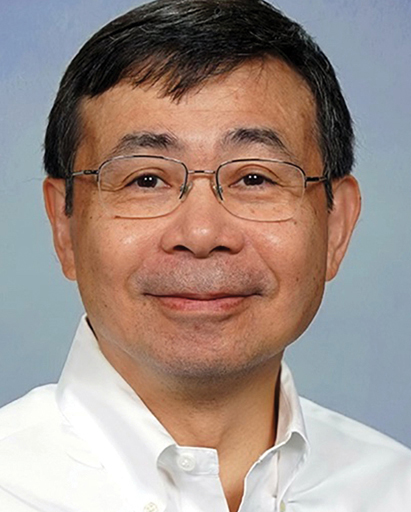
Jon Wu
Give More, Receive More
Jon Wu’s actuarial career has spanned continents, practice areas, and disciplines-from life insurance to enterprise risk management to mergers and acquisitions. Wu, MAAA, FSA, CERA, who worked with the Connecticut Retirement Security Authority, has been an Academy member since 1992.In this Q&A, he shares insights from his global experience, the lessons he’s learned along the way, and the value he finds in staying connected to the profession through Academy membership and volunteer work.

WHAT IS YOUR PRACTICE AREA AND/OR AREA OF EXPERTISE?
I began my career as a life actuary, gaining experience in pricing, valuation, underwriting, and investments. I later transitioned into a mergers and acquisitions (M&A) role, supporting the company’s expansion into the U.S. market. Over time, my responsibilities grew to include leading the company’s global initiatives in Canada, Latin America, and the Asia-Pacific regions. Through these opportunities and by collaborating with joint venture partners, I broadened my expertise to encompass finance, health, property and casualty (P&C), and enterprise risk management (ERM). During my international assignments as an expatriate, I also performed HR functions, recruiting, training, and retaining local actuarial talent.
WHAT LED YOU TO BECOME AN ACTUARY, AND WHAT ATTRACTED YOU TO THE PROFESSION?
I graduated from business school with a major in finance and public accounting. Through conversations and interviews with professionals across various fields, I discovered that actuarial student programs at large corporations-with their rotational opportunities across departments and strong prospects for career growth-were an ideal fit for my aspirations. I was particularly drawn to the idea of excelling in my daily work while dedicating my evenings to further developing my actuarial expertise.
DESCRIBE A TIME WHEN YOUR PROFESSIONALISM TRAINING HELPED YOU IN YOUR CAREER.
As a senior actuarial student, I was assigned with recommending a dividend scale to the board. To support my recommendations, I presented them to the deputy chief actuary, meticulously referencing ASOP [Actuarial Standard of Practice] No. 15, line by line. This experience was truly eye-opening, illustrating the vital role that actuarial standards of practice play in our profession. Since then, I have consistently consulted ASOPs for guidance, alongside my company’s own standard operating procedures (SOPs). This reliance proved especially valuable during my overseas assignments, where I collaborated closely with local colleagues and engaged with regional regulators.
TELL US ABOUT A TIME WHEN YOUR ACTUARIAL EXPERTISE INFLUENCED AN IMPORTANT DECISION IN YOUR WORKPLACE.
With training in asset share analysis and APL programming, I was able to support my company in evaluating the value of various books of business involving long-duration contracts. This expertise enabled me to transition quickly into the M&A field. The actuarial rotation program further deepened my understanding of IBNR’s [Incurred But Not Reported] significance in short-duration lines such as health and P&C, as well as key concepts in insurance accounting and capital requirements. As a result, I became the lead actuary for M&A, advising on valuation, contract terms, and conditions, and even instructing investment banking advisors on specialized methods for assessing insurance portfolios. In one M&A transaction, I helped the company identify a substantial IBNR shortfall before finalizing the joint venture agreement.
Leveraging my enterprise risk management expertise, I assisted the company in implementing a robust ERM framework across all subsidiaries, fostering a comprehensive approach to balance sheet management. This included routinely considering the impacts on Value at Risk, Earnings at Risk, and Capital at Risk before making critical decisions, as well as developing the initial iteration of our ORSA [Own Risk and Solvency Assessment] report before the ORSA was required by the regulators.
WHAT’S ONE OF THE BIGGEST LESSONS YOU’VE LEARNED IN YOUR CAREER?
Technical skills have helped me advance in the workplace, but it is the soft skills that have allowed me to go even further. This has been especially true in M&A situations, particularly in joint venture deals. The real challenge begins the day after the transaction is complete, when the new company must start delivering results. Placing the right talent in the right roles and bringing together individuals with diverse abilities to form a high-performing team are both essential to success. Additionally, I have found that utilizing SOPs and risk dashboards to monitor the performance of each subsidiary has been invaluable.
WHAT ADVICE DO YOU WISH YOU WERE GIVEN AT THE BEGINNING OF YOUR CAREER?
Artificial intelligence (AI) and predictive analytics have been at the forefront of industry discussions in recent years. Early in your career, I encourage you to learn as much as possible and focus on acquiring skills that will enhance your understanding of actuarial assignments and their applications. At the same time, consider how climate change could impact your line of business-both now and in the future. Take time to identify your niche and reflect on what you are passionate about pursuing over the next three to five years and seek out mentors who can help you achieve your goals.
WHAT DO YOU VALUE MOST ABOUT YOUR ACADEMY MEMBERSHIP OR ACADEMY VOLUNTEER WORK?
Academy membership provides me with access to a wealth of information and a wide array of topics relevant to my work. Through volunteering, I can share my expertise with the volunteer groups while also building connections with actuarial professionals beyond my organization. This experience has broadened my actuarial perspective. As a life and health actuary, I greatly appreciate the opportunity to learn from property and casualty actuaries-especially for my international assignments involving P&C businesses. I have also gained valuable insights by collaborating with other volunteers on the development of practice notes.
WHAT IS THE VALUE OF YOUR MAAA DESIGNATION?
As an MAAA, I have the privilege of signing financial statements, which underscores my professional credibility. Additionally, my designation often serves as a valuable conversation starter when meeting with regulators and trade associations abroad, providing opportunities to discuss the role and impact of the Academy. These interactions frequently open doors to further meaningful dialogue in the countries where we operate.
WOULD YOU LIKE TO SHARE ANYTHING ELSE WITH ASPIRING OR NEW ACTUARIES, OR THOSE INTERESTED IN VOLUNTEERING FOR THE ACADEMY?
I have always believed in the principle that the more you give, the more you receive-a sentiment that has proven true throughout my career. Whenever I was interested in volunteering, I simply followed the [Academy Connect] link of the Call for Volunteers email to explore available opportunities, selecting topics I both knew well and wanted to learn more about, while keeping in mind the expected time commitment. I chose to focus on one or two areas that resonated with me, ensuring I could dedicate quality time to collaborating with others. I encourage you not to hesitate in reaching out to the chair or vice chair if you need further information; sometimes, making that initial connection is as simple as clicking a link or sending an email. For me, volunteering has been more than worthwhile-I have had the privilege of connecting with actuaries across a variety of practice areas, greatly enriching my professional journey.
BEYOND WORK-WHAT ARE YOUR HOBBIES OR PERSONAL INTERESTS?
I enjoy playing pickleball for its simplicity and accessibility. I also hope to visit all the national parks and travel more extensively, as I am eager to learn how things work in different cultures.
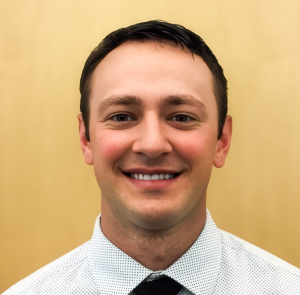
Joe Dorocak

WHAT LED YOU TO BECOME AN ACTUARY? AND WHAT ATTRACTED YOU TO THE PROFESSION?
When I was growing up and into my high school years, it was very apparent that I gravitated towards numbers and analytics. I played baseball through college, and Moneyball was becoming mainstream at that point-what a dream combination: advanced analytics and baseball! I knew I was going to pursue some kind of career with mathematics and statistics. Actuarial science introduced a great blend of business acumen and communication, areas in which I thought I was inherently strong. I was very fortunate to get my start as an intern through a friendship my statistics professor at the University of Dayton had with the first actuary on staff at the Cleveland Clinic. That summer convinced me this was the career path for me.
DESCRIBE A TIME WHEN YOUR PROFESSIONALISM TRAINING HAS HEALPED YOU IN YOUR CAREER.
I’ve spent a considerable amount of my career working with machine-learning models, and over the past couple of years, large language models and Generative AI have become hot topics. We’re all eager to adopt and apply these new technologies, but part of our Professional Code of Conduct asks us to truly understand the underlying algorithms, data, and assumptions for these models. I find myself regularly reminding my team to take the time and apply the due diligence to study the technologies they’re eager to apply before going wild.
TELL US ABOUT A TIME WHEN YOUR ACTUARIAL EXPERTISE INFLUENCED AN IMPORTANT DECISION IN YOUR WORKPLACE.
First, a lot of people are still surprised when they hear about actuaries working on the provider side of health, but it’s becoming an increasingly common fit when health systems are committed to value-based contracting and value-based care. To support those programs, provider-side actuaries are often assessing various contract options to recommend selections which set the organization up for financial success and patients for high-quality health outcomes using quantitative methods. A few years ago, my team worked on the development of simulation modeling to help our organization make a critical decision on which pathway we would pursue within CMS’s [the Centers for Medicare & Medicaid Services] Shared Savings Program. Our recommendation has led to highly successful outcomes so far.
WHAT’S ONE OF THE BIGGEST LESSONS YOU’VE LEARNED IN YOUR CAREER?
Patience, prayer, and practice! These three words were the subject of a speech I heard years ago when starting my professional life and they’ve been great to reflect on whenever I get into a difficult time. They remind me to 1.) take the time to study and diagnose the issue or question at hand; 2.) reflect on my principles, values, and things that are most important to me; and 3.) continuously work on the things I do daily to get incrementally better.
WHAT ADVICE DO YOU WISH WERE GIVEN AT THE BEGINNING OF YOUR CAREER?
Be eager to learn! The space we work in, particularly if you’re a healthcare actuary, is continuously evolving. The people I’ve seen become successful-and those colleagues I really respect-have been proactive in learning new concepts, methods, and techniques to apply to their everyday work.
WHAT DO YOU VALUE MOST ABOUT YOUR ACADEMY MEMBERSHIP OR ACADEMY VOLUNTEER WORK?
It’s just an incredible community of very thoughtful, intelligent people. This past year, I started participating in the Health Equity Committee for the first time, and it’s been so enjoyable hearing the dialogue and ideas that have flowed from the group. I feel like I’ve learned so much that I can apply to my own job and contribute to a better health care environment.
WOULD YOU LIKE TO SHARE ANYTHING ELSE WITH ASPIRING OR NEW ACTUARIES, OR THOSE INTERESTED IN VOLUNTEERING FOR THE ACADEMY?
For aspiring or new actuaries or those interested in volunteering for the Academy, partnership, collaboration, and listening have immeasurable impacts. Reflecting on some of the most successful projects I’ve been a part of in my career, I can honestly say that they’ve had multidisciplinary teams that really functioned well together. You’ll benefit from being open-minded to new, different ideas and developing your style to make your case for or against approaches in a healthy, productive fashion.
BEYOND WORK-WHAT ARE SOME OF YOUR HOBBIES OR OTHER PERSONAL INTERESTS?
With two kids under 4 years old, my free time is committed to them and my family. While my 3-year-old son is starting to learn to ice skate, my 1-year-old daughter is taking her first steps. They keep my wife and me busy, but when I do get some free time to myself, I’m a big sports fan. I like to play golf (a work in progress) and like watching all Cleveland sports (Browns, Cavaliers, and Guardians)-even though the painful losses are inevitable.
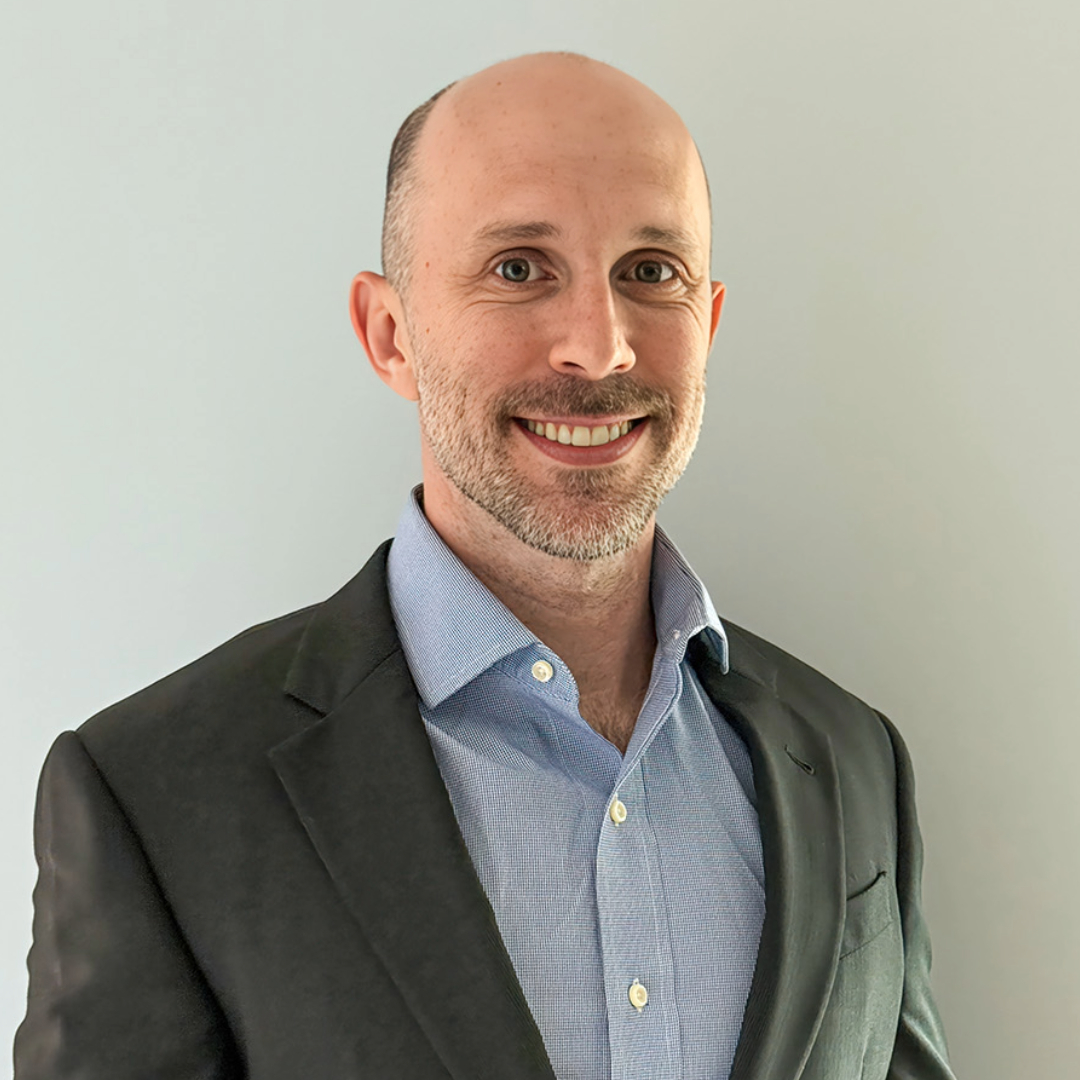
Spencer Sadkin

What is your practice area and/or area of expertise?
My career has been a mix of both property and casualty lines of business. I began in traditional pricing and ratemaking for personal lines but I have since found myself focusing on data science and analytics giving me the opportunity to work across many lines of business for both pricing and claims.
What led you to become an actuary? And what attracted you to the profession?
“An actuary, what’s that?” These are words I once asked a college hockey teammate as we were suiting up for practice. He was studying actuarial science while I was on my way to a chemistry degree. Over the next few weeks, I did some research and concluded that it seemed like a better way for me to apply my interest in math and logic.
Describe a time when your professionalism training has helped you in your career.
I currently work for a software company that builds claims and policy administration systems for insurance carriers as well as models and tools to inform their business. Many of my colleagues are developers rather than insurance professionals so I get to use my actuarial background to share knowledge of how what we build will impact the end users’ daily work. By doing this it helps deliver products and models that are suitable for the intended purpose and our customers can quickly use in operation.
Tell us about a time where your actuarial expertise influenced an important decision in your workplace.
Building predictive models with limited data can be tough. Building predictive models when you are not intimately knowledgeable with the limited data you have is significantly more difficult. Using precepts and ASOPs [actuarial standards of practice] as a framework for what level of familiarity needs to be built, and what can be relied upon by other parties for expertise has been invaluable.
What’s one of the biggest lessons you’ve learned in your career?
Sometimes it’s politics, but sometimes it’s not. In a world where we are increasingly working remotely there are often misperceptions simply due to a lack of communication. It may be better to pick up a phone than write an email.
What advice do you wish you were given at the beginning of your career?
Network! Passing exams and being smart will only get you so far. Making great connections with people across the entire career spectrum will help round you out and guide you in where to take your career.
Academy membership and volunteering have been a great way to meet actuaries across many different specialties, especially those from life and health where there would be no other natural way to interact. This reinforces the importance of understanding different viewpoints to help round you out.
Would you like to share anything else with aspiring or new actuaries, or those interested in volunteering for the Academy?
We are lucky to work in a profession that is self-regulated. By volunteering we all get to contribute our voice, learn from others, and continue to advance our profession. Building strong connections and friendships along the way is a cherry on top.
Beyond work-what are your hobbies or personal interests?
Outside of work my soon to be 3-year-old daughter keeps me on my toes with new activities almost daily. Most of my remaining free time-perhaps too much, according to my wife-is spent at the gym as I enjoy lifting weights. If any time is left over, I can usually be found at Home Depot or on rare occasion a Florida Panthers hockey game where my family has had season tickets since the team’s first season back in 1993. Still alive in the playoffs!

Silver Zhou

What is your practice area and/or area of expertise?
Life and annuities
What led you to become an actuary? And what attracted you to the profession?
It was pure serendipity that introduced me to the actuarial field. I was deep into my applied math major when a friend pulled me into the Actuarial Club during my junior year in college. That’s when I discovered how my math skills could be put to work in the business world by quantifying insurance risks and predicting liabilities to make a financial impact. And yes, I have a bit of a nerdy side! I liked the challenge of passing exams, which I perceived as a measurable way to track my progression in the early stage of the actuarial career.
Describe a time when your professionalism training has helped you in your career.
I’ve come to realize that professionalism isn’t just about following a set of codified rules. It encompasses the demeanor and ethics necessary for building trust with people around you. Early in my career, I found that just handling everyday tasks with integrity and care could go a long way. That commitment to being accountable and responsible helped build my reputation and opened many doors for me.
Tell us about a time where your actuarial expertise influenced an important decision in your workplace.
I had an opportunity to use my actuarial expertise in an unexpected way outside the normal scope of business. While advising our company’s actuarial student program, I was tasked with reviewing the exam and credential benefits we offered. I decided to go one step further by gathering data from peer companies through my network, restructuring the data for better comparisons, and developing assumptions about exam performance and salary progression for entry-level actuaries. This allowed me to predict the level of total compensation, including bonus, that could be achieved by attaining actuarial credential within different company’s programs. My analysis made a compelling case for increasing the exam-passing compensation raise. When I pitched the proposal to HR and senior management, they approved it because they saw the benefit of boosting employee satisfaction and helping us retain top actuarial talent. It’s a good reminder of just how broadly our actuarial expertise can be applied.
What’s one of the biggest lessons you’ve learned in your career?
I learned to leave my ego at the door in a hard way. Early in my career, I thought being a math/technical expert meant I had to solve every challenging problem on my own, even if it meant burning the midnight oil or working on weekends. I was so worried about looking dumb that I hesitated to ask for help, which only led to inefficiency and unnecessary stress. Once I started embracing vulnerability and reached out to colleagues and managers for guidance and resources, I built stronger relationships and trust in the workplace. I truly believe that shift in mindset turned my career around.
What advice do you wish you were given at the beginning of your career?
I wish someone had told me early on to be intentional about building a broad network. I recently heard an interesting perspective from an actuarial leader that really stuck with me. Elite athletes rarely have just one coach or trainer, because each trainer brings unique expertise that helps shape their overall development. The same goes for our actuarial careers. Good mentors can truly inspire and boost our growth in many ways, but it takes time to learn from different career stories and reflect on our own goals.
What I value most is the opportunity to expand my network and connect with actuaries from different fields. It really reinforces what I mentioned earlier about the importance of building a broad network. Through the Academy community and my volunteer work, I’ve met actuaries I now consider mentors who have truly enriched both my career and personal growth.
Would you like to share anything else with aspiring or new actuaries, or those interested in volunteering for the Academy?
If you’re thinking about volunteering, just go for it. You’ll be amazed by the breadth and diversity of experiences within the community. Enjoy the journey!
Beyond work-what are your hobbies or personal interests?
My wife would probably say I have too many hobbies taking over our garage! I’ve been a big sports fan my whole life, with basketball being my favorite. I’ve been playing basketball since elementary school, and as a UNC [University of North Carolina] graduate, it’s no surprise that I’m a die-hard Tar Heels fan. I fell in love with football after moving to the U.S. for college. After moving to Philadelphia post-college, I became an avid Eagles fan. Seeing them win the Super Bowl this year (and get their redemption from two years ago) means a lot to us fans. Fly Eagles Fly! I also picked up skiing and surfing in my adulthood, and I absolutely love them… and can’t help but think I learned them about 20 years too late!

Isabelle McCullough

What is your practice area and/or area of expertise?
Cyber Reinsurance Pricing
What led you to become an actuary? And what attracted you to the profession?
I majored in mathematics and economics in college with the intent of pursuing a Ph.D. in either field. I quickly figured out that the graduate school route was not for me and was encouraged by family and friends to take a few actuarial exams. After passing P [Probability] and FM [Financial Mathematics], I landed an entry-level analyst position in property and casualty consulting. I was interested in the profession because it is a unique blend of analytical skills and business sense. It really tapped into a real-world application of my math and economics training.
Describe a time when your professionalism training has helped you in your career.
I have relied heavily on my professionalism training throughout my career, but most notably over the past 5-plus years working in cyber insurance and cyber reinsurance. Throughout this time, I have worked as a member of a global team, collaborating frequently with actuaries outside of the US. At some points, I have been the only US-based actuary on my direct team. In these situations especially, it is important to have a thorough understanding of the applicable actuarial standards of practice (ASOPs) to ensure that our team’s work is in accordance with professional standards.
Tell us about a time where your actuarial expertise influenced an important decision in your workplace.
I can think of many examples, but a recurring one in my pricing career is that my work consistently influences strategy decisions regarding growth, target mix of business, market cycle management and more. The cyber market has seen fast-changing market conditions during my time, which have highlighted the need for underwriters and actuaries to work together to closely monitor their portfolios and adapt quickly to changing market conditions. I’m privileged to have worked closely with talented underwriters who value my opinions and seek my advice on strategy.
What’s one of the biggest lessons you’ve learned in your career?
Trust your gut and ask questions! If you thoroughly understand the question that you are trying to answer with your analysis, the rest will follow. With enough experience, you can develop a good internal radar for when results don’t make sense-or for when the wrong question is being asked.
What advice do you wish you were given at the beginning of your career?
Challenge the status-quo! Understand why work is done in the current way and then figure out how to improve it. This can apply to anything from a one-off analysis for a client to workflow management to improving underwriting systems.
I have had a great experience volunteering with the Committee on Cyber Risk. I love working with other like-minded actuaries, especially those who are as interested in cyber as I am. I learn a lot through conversation with the group that I might otherwise miss in my day to day. Volunteering for the Academy has also given me the opportunity to meet and learn from public stakeholders and other actuaries outside of property and casualty. A highlight was getting to discuss cyber risk with representatives from the Federal Insurance Office at the 2024 Academy Hill visits.
Would you like to share anything else with aspiring or new actuaries, or those interested in volunteering for the Academy?
The Academy provides a framework for maintaining self-regulation of the actuarial profession in the United States and serves the public through volunteer and staff contributions. Volunteers are essential to the Academy and its mission. To maintain and advance the Academy’s impact, it is critical that a variety of volunteers bring fresh ideas and perspectives to the table. You do not need to have a certain number of years of experience to be a valuable member of a committee!
Beyond work-what are your hobbies or personal interests?
I currently spend most of my out of work hours training and riding my three horses: Leia, Jagger, and Truly. I am hoping to compete in endurance horseback riding-competitions on trails of 25, 50, or 100 miles in one day! I love being outside and traveling.

Tina Kang

What is your practice area and/or area of expertise?
Group Insurance Disability Pricing and Assumptions
What led you to become an actuary? And what attracted you to the profession?
I’ve always had a passion for math, and when I learned about the actuarial profession, I was intrigued by how it combines mathematics with economics and finance. Additionally, coming from a family of doctors and engineers, I wanted to pursue a career that was unique yet equally challenging.
Describe a time when your professionalism training has helped you in your career.
My professionalism training has been invaluable in breaking down complex topics for diverse audiences both in and out of the workplace. For instance, during a student outreach event I explained what an actuary does by playing a game where students considered whether to spend money on cellphone insurance. They learned to consider the different factors (assumptions) involved in insurance. This approach received positive feedback and greatly improved their understanding of insurance and the actuarial profession. I’m always looking for new ways to explain the profession to younger audiences. My latest recommendation has been the Academy’s “Magic School Bus” book! [The Magic School Bus Takes a Risk: A Book About Probability.]
What’s one of the biggest lessons you’ve learned in your career?
One of the biggest lessons I’ve learned in my career is the power of networking. It plays a crucial role in all phases of your professional journey. Whether you’re looking for a job, seeking exam advice, exploring job mobility opportunities, or pursuing volunteer and leadership roles, a strong network can make all the difference. I’ve personally leveraged my network in all these instances, and found that it is much harder to stand out and access these opportunities without these connections.
What advice do you wish were given at the beginning of your career?
You’ve probably heard that it’s okay to ask questions, but I wish someone had emphasized that it’s also okay to ask the same questions multiple times, even to the same person. If you don’t understand something, it might mean that the explanation given wasn’t clear enough for you. Additionally, it’s beneficial to ask multiple people the same question. Hearing different perspectives and explanations can help you find the one that resonates with you and enhances your understanding.
What do you value most about your academy membership or academy volunteer work?
I value the Academy’s growing commitment to DEI [diversity, equity & inclusion]. The Academy’s partnership with SANA [the South Asian Network of Actuaries], including sponsorship and hosting webinars for our members, has been invaluable. These efforts help reach more members, grow the field, and add diverse perspectives, which are crucial for the profession’s future.
Would you like to share anything else with aspiring or new actuaries, or those interested in volunteering for the academy?
If you’re an aspiring or new actuary looking for advice, consider joining one of the many affinity organizations that cater to a wide audience. These organizations are always looking for volunteers, regardless of how much time you can commit. Volunteering is a great way to connect with experienced actuaries and gain valuable insights. Even if you don’t feel like you perfectly fit into one of the groups, you can still be an ally and provide your support. Your involvement can make a significant difference and help foster a more inclusive community.
Beyond work-what are some of your hobbies or other personal interests?
I love traveling, baking, and playing board games. My current favorite is Catan, specifically the Seafarers expansion edition. The regular version is also a classic! My family started playing it during COVID and it has been a favorite ever since. I try to cram in as much travel as I can between exam sittings. I’m very much looking forward to being done with exams so that I can have more free time to fully enjoy my hobbies.
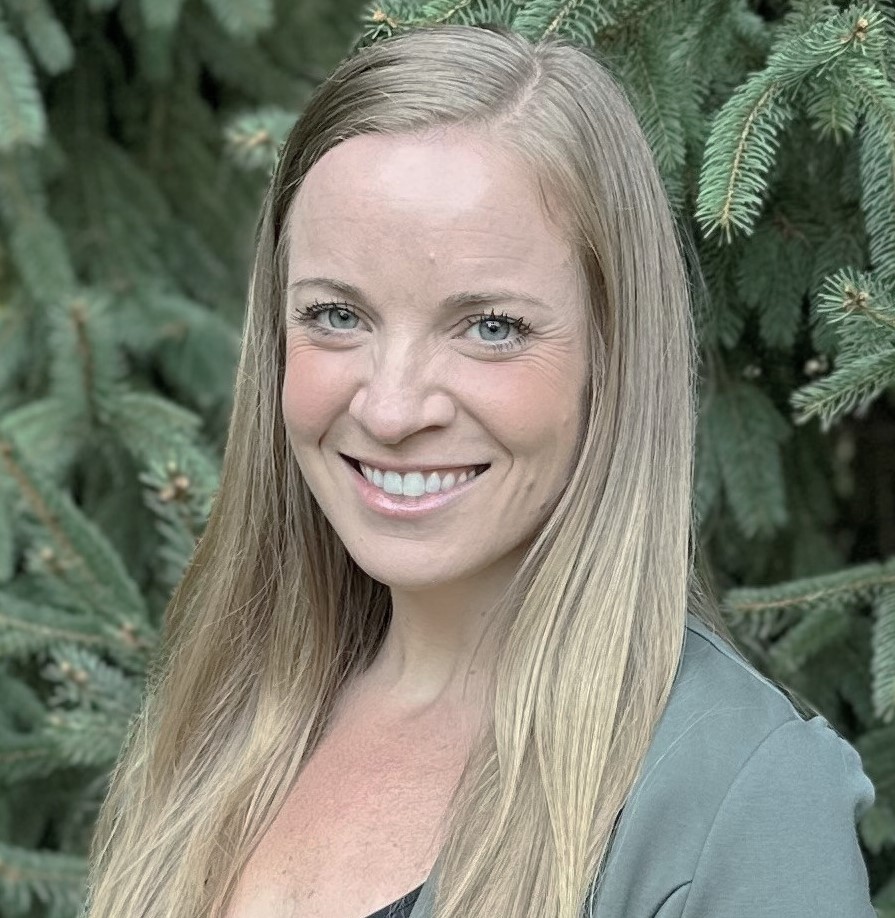
Margo MacKenzie

What is your practice area and/or area of expertise?
Property & Casualty Loss Reserving
What led you to become an actuary? And what attracted you to the profession?
I’ve always liked math and science, but never really had any idea what I wanted to do with that in terms of a career. I started off as a pre-med major in college, but quickly realized I didn’t have a genuine interest in the field and that I was more interested in math than science. After three to four more major changes, I finally landed on Applied Mathematics and pursued both bachelor’s and master’s degrees in the field. When I was getting close to graduation and still didn’t know what I wanted to do with my degree, a professor suggested actuarial science because of my interest in statistics, and the rest is history!
Describe a time when your professionalism training has helped you in your career.
My professionalism training has helped me in my day-to-day work more times than I can count. Particularly, I find myself referencing the ASOPs [actuarial standards of practice] all the time, whether it’s in writing a report, communicating a difficult message or result to a client, or trying to come up with the assumptions for the latest reserve analysis.
What’s one of the biggest lessons you’ve learned in your career?
Give yourself grace and believe that you can do it! It’s easy to get discouraged early in your career when you’re surrounded by experienced actuaries who seem like they’re so much smarter than you, and of course during the exam process when a few (or more) failures are almost inevitable. The journey isn’t always the easiest, but it’s worth it, and there are so many wonderful people who were one day in your shoes and who will help you along the way.
What advice do you wish were given at the beginning of your career?
It’s probably not fair to say it’s advice I wish I were given-because I know I was given this advice many times-so instead I’ll say it’s advice I wish I had listened to at the beginning of my career: Don’t be afraid to ask questions … lots and LOTS of questions! There is so much you can learn from your colleagues, so don’t be afraid to take advantage of it. From my perspective now, I think showing curiosity and asking a lot of questions is a really great character trait and something that is very rarely (if ever) seen as a negative.
What do you value most about your academy membership or academy volunteer work?
While I’ve been a member of the Academy for several years now and have really benefitted from all of the great learning opportunities they offer, I have just recently started to volunteer with the Academy and am already seeing the benefits of that. I’ve been lucky enough during my career with EY to engage with and learn from so many knowledgeable colleagues and clients, but having another set of resources through the Academy committees is such an amazing opportunity.
Would you like to share anything else with aspiring or new actuaries, or those interested in volunteering for the academy?
Don’t give up on yourself or your goal of becoming an actuary! It can be really hard to see the light at the end of the tunnel when you’re just starting your career looking at a mountain of exams you have to tackle, but remember that every successful, credentialed actuary that you see has been in your shoes and has made it through the journey. I can’t say it enough, but never be afraid to lean on your colleagues and mentors for help and guidance-from my own personal experience, they would probably be thrilled to pay it forward and help you out.
Beyond work-what are some of your hobbies or other personal interests?
Outside of work, I enjoy working out, shopping, and spending time with my husband, daughter, and our dog. I’m not really much of a cook, but I love to bake, especially around the holidays.

Chris Lombardi

WHAT LED YOU TO BECOME AN ACTUARY? AND WHAT ATTRACTED YOU TO THE PROFESSION?
As a directionless business major, it was in a statistics class my freshman year. My grades were bad throughout the year, but in studying for the final exam, something clicked. I started to translate what previously felt like a completely foreign language. I was on track for a B in the class, and told my professor asking for extra credit opportunities that I wanted to change my major to statistics-but my parents wouldn’t let me unless I got an A in the class. He said “No” pretty early, but he got excited that I might have caught the mathematical bug and spoke to me for an hour about all the professions I could pursue with a statistics degree. That was the first time I heard the word “actuary.” He was convincing (though he thought I was already convinced), and I found myself intrigued that statistics clicked for me-and became fun-while all my classmates seemed to have disdain for the subject. I changed my major the next semester, took Exam P the next year, and followed my nose from there.
DESCRIBE A TIME WHEN YOUR PROFESSIONALISM TRAINING HAS HEALPED YOU IN YOUR CAREER.
Some of the best relationships I have made throughout my career have been from instances where I knew I was in over my head and reached out to another actuary for guidance. Creditable coverage and the IRA is an example that comes to mind. There was a lot of confusion when the legislation first came out with very vague guidance from CMS [the Centers for Medicare & Medicaid Services]. There was a bit of panic among our clients that their plans may fail this testing, leaving their employees who were over 65 vulnerable to lifelong penalties when they eventually enroll in Medicare. I was being pushed for answers in an area I was unfamiliar with. The foundation of professionalism instilled in me from my actuarial credentials allowed me to confidently and calmly stand my ground and seek guidance from those more knowledgeable-and finally communicate there was simply not enough information available yet to make a determination. That guidance I sought came from fellow Academy member Rob Schlau who has become a great mentor and friend of mine. CMS eventually released clarification reports, but I was not pressured to state a strong opinion when the information available was insufficient.
TELL US ABOUT A TIME WHEN YOUR ACTUARIAL EXPERTISE INFLUENCED AN IMPORTANT DECISION IN YOUR WORKPLACE.
The idea of having to have entry-level experience to be considered qualified for an entry-level role never sat well with me. As I grew through the early years of my career, I noticed the competition for actuarial roles had escalated to a new level. College students applying for our internship program had passed multiple exams and at least one internship experience under their belt-I felt for those, like me, who only had one exam and no internships coming out of college. I created our company’s first “Externship” which offered college students an opportunity to gain actuarial experience and allow them to put a relevant role on their résumé. I worked with a few colleagues to put together a curriculum, putting together hypothetical case studies using the very real tools that we used every day on the job. Before starting my career, it was always a mystery what a typical day in the life of an actuary was-with this externship, we were able to give a few students a taste of that and hopefully add some credibility to their résumé to get their foot in the door and start their careers.
WHAT’S ONE OF THE BIGGEST LESSONS YOU’VE LEARNED IN YOUR CAREER?
If I have a question in my head, there’s a good chance someone else has the same question and just doesn’t want to speak up. Our work is complicated, and things can move really fast without pausing to make sure everyone is on the same page. Even later on in my career I’ve found things I previously took for granted and just assumed were right, but when being pushed for clarification by a junior colleague, the issues were much more ambiguous. It’s important for us to remain aware of our own biases and limitations to accept that we rarely fully understand something, and that there’s always something further to explore. The responsibility is on all of us to speak up when we feel the pull and to remain open-minded to explore different perspectives.
WHAT ADVICE DO YOU WISH WERE GIVEN AT THE BEGINNING OF YOUR CAREER?
It’s OK to be confused-in fact, it’s expected!. This job is hard, and I’m consistently humbled by how knowledgeable more seasoned actuaries are. I felt that college didn’t exactly prepare me with the information directly relevant to the work and it took time to get up to speed. I put a lot of pressure on myself up a lot early on to be great at something I was brand new at. I almost wish I could just give my younger self a hug and say, “It’s OK-this stuff is hard, you’re supposed to struggle with it, and you’ll be fine.”
WHAT DO YOU VALUE MOST ABOUT YOUR ACADEMY MEMBERSHIP OR ACADEMY VOLUNTEER WORK?
The ability to collaborate with the smartest people I’ve ever met. Volunteering and attending conferences are among my favorite things to do in all of life. Sound nerdy? Well I’m a nerd and proud of it! Meetings and conferences give me an opportunity to let go of deadlines, to-do lists, billing time, and all the other regular workplace stressors and focus on learning and exploring. The health insurance industry is constantly changing, and the Academy provides me with opportunities to slow down to ingest at least some of it. The nuances need time to sink in, they need to be looked at from different perspectives to fully understand. There’s little room for that when paying clients are waiting for their quarterly IBNR [Incurred But Not Reported] reports and claim trackers. Volunteer groups and conferences are definitely times where my imposter syndrome can hit its hardest, but that’s an indicator that I’m in the right place. I love it when I’m nowhere close to the smartest person in the room. My deepest learning and growth has come from being a member of the Academy.
WOULD YOU LIKE TO SHARE ANYTHING ELSE WITH ASPIRING OR NEW ACTUARIES, OR THOSE INTERESTED IN VOLUNTEERING FOR THE ACADEMY?
Actively volunteer, and start now! It’s more beneficial than I could have ever imagined. It took me a while to work up the courage to join a group, then even more time to participate-I was very intimidated being so visible in a small group of such smart people, but the discussions I’ve been able to be a part of have expanded my mind more than technical work and reading articles ever have. The workplace tends to be very practical in nature-do what we need to do to get the project done. The volunteer groups allow us to slow down, look at something from many different perspectives and take the time to think through all the downstream implications that are not immediately obvious.
BEYOND WORK-WHAT ARE SOME OF YOUR HOBBIES OR OTHER PERSONAL INTERESTS?
I’m a Brazilian Jiu Jitsu brown belt and compete a few times a year. I coach a local wrestling team and run a leadership development program for captains. I play guitar (rock/blues/classical), and am forever not as good as I would like to be. I’m halfway through attaining my Certified Professional Coach designation to be a life coach. And, I love to cook, read, and smoosh my face into my dog Ella’s face.
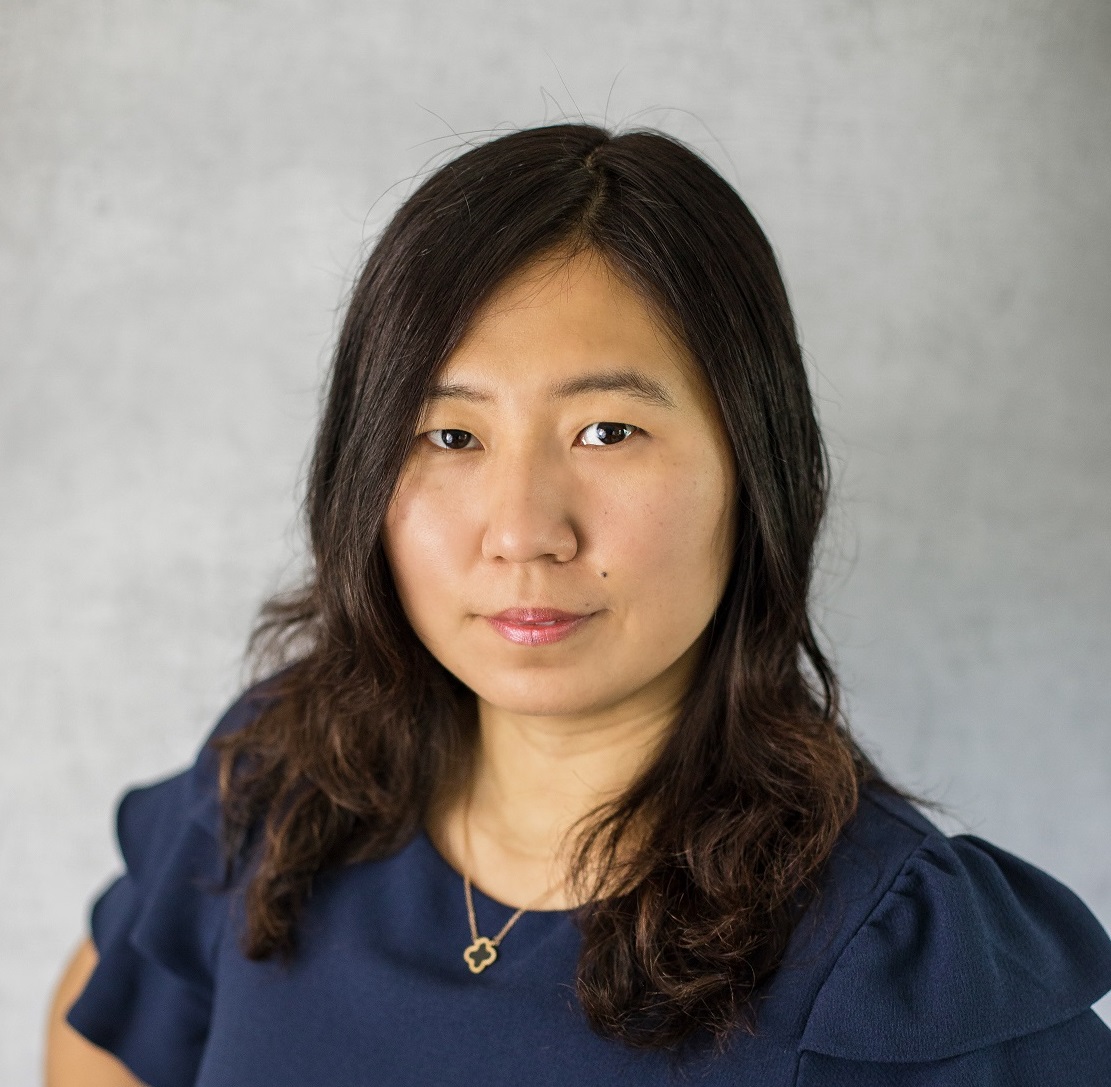
April Shen
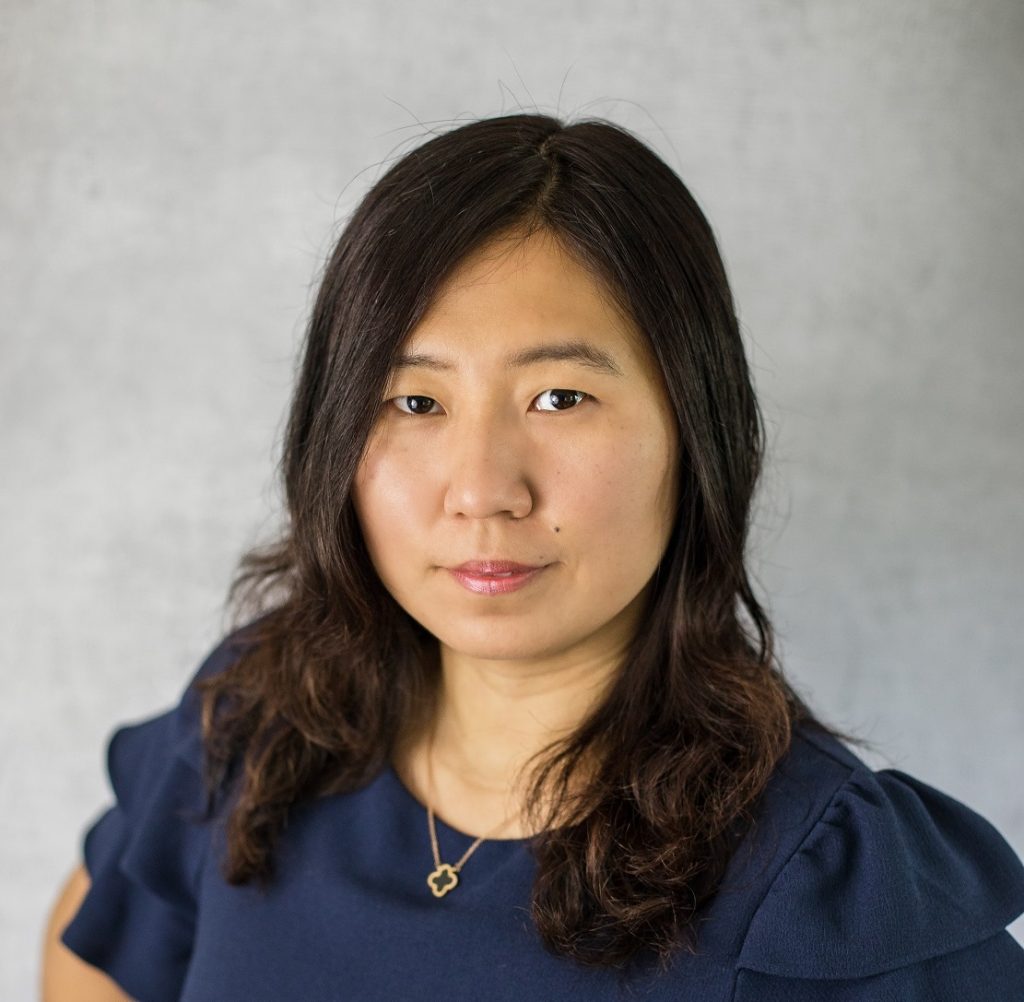
What is your practice area and/or area of expertise?
Life and Annuities
What led you to become an actuary? And what attracted you to the profession?
I got into actuarial work because I was good at math and didn’t mind tackling exams. As I graduated with a business degree during the financial crisis, a friend referred me an actuarial entry-level job, and it just clicked. I liked how the role combines problem-solving with real-world impact. Plus, it’s a career where I keep learning about new things.
Describe a time when your professionalism training has helped you in your career.
In my role, professionalism is key-especially as auditors always have to keep an eye out for the best interest of the public, which includes policyholders, investors and many others in society. It’s a big part of why I feel proud of the work I do.
Tell us about a time when your actuarial expertise influenced an important decision in your workplace.
I’ve used my actuarial skills to automate manual processes, which not only saves time but also uncovers valuable insights. This approach has helped the team make better decisions and shows how combining actuarial expertise with a technology mindset can improve efficiency and outcomes.
What’s one of the biggest lessons you’ve learned in your career?
One of the biggest lessons I’ve learned is to always keep the “big picture” in mind. Actuarial work can get pretty technical and it’s very important to explain those ideas in a way that makes sense to everyone quickly.
What advice do you wish were given at the beginning of your career?
I wish I had been told to always keep the big picture in mind! It’s easy to get lost in the details, but understanding how everything connects helps you make better decisions and be more effective overall.
What do you value most about your academy membership or academy volunteer work?
What I value most about my Academy membership and volunteer work is learning from other actuaries. Connecting with peers and volunteering has given me great insights and helped me grow in ways I wouldn’t have on my own. Kudos to all the PBR Implementation Subcommittee members and Chairperson Linda Lankowski!
Would you like to share anything else with aspiring or new actuaries, or those interested in volunteering for the academy?
For new actuaries or those interested in volunteering, remember the power of teamwork. You learn so much from working with others, and it leads to better technical acumen and great connections that help you grow.
Beyond work-what are some of your hobbies or other personal interests?
I’ve recently picked up golf, and I’m a total beginner. It’s been a fun challenge learning the ropes, and it’s definitely testing my patience! I love getting out on the course, improving bit by bit, and just enjoying some time outside.
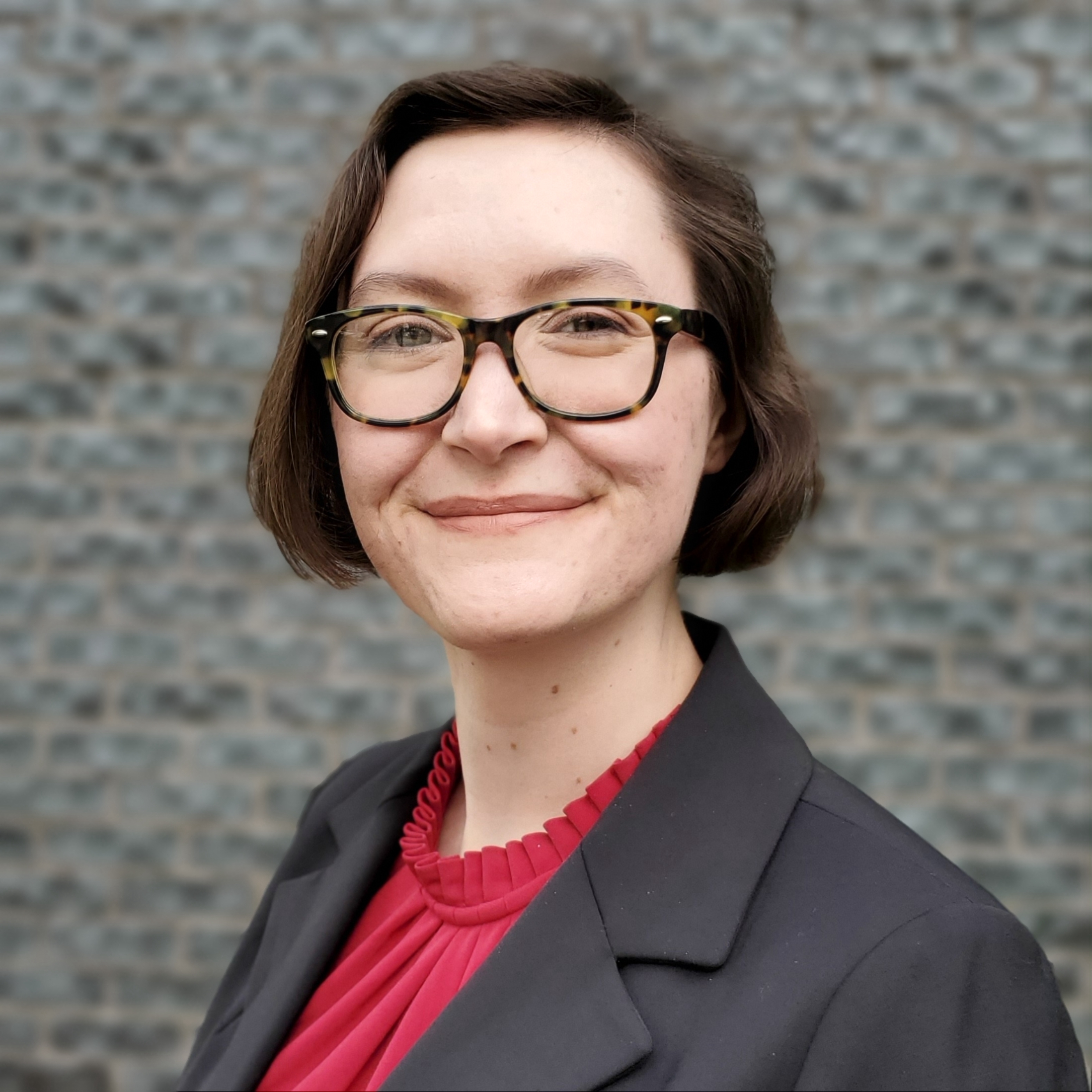
Emma Casehart
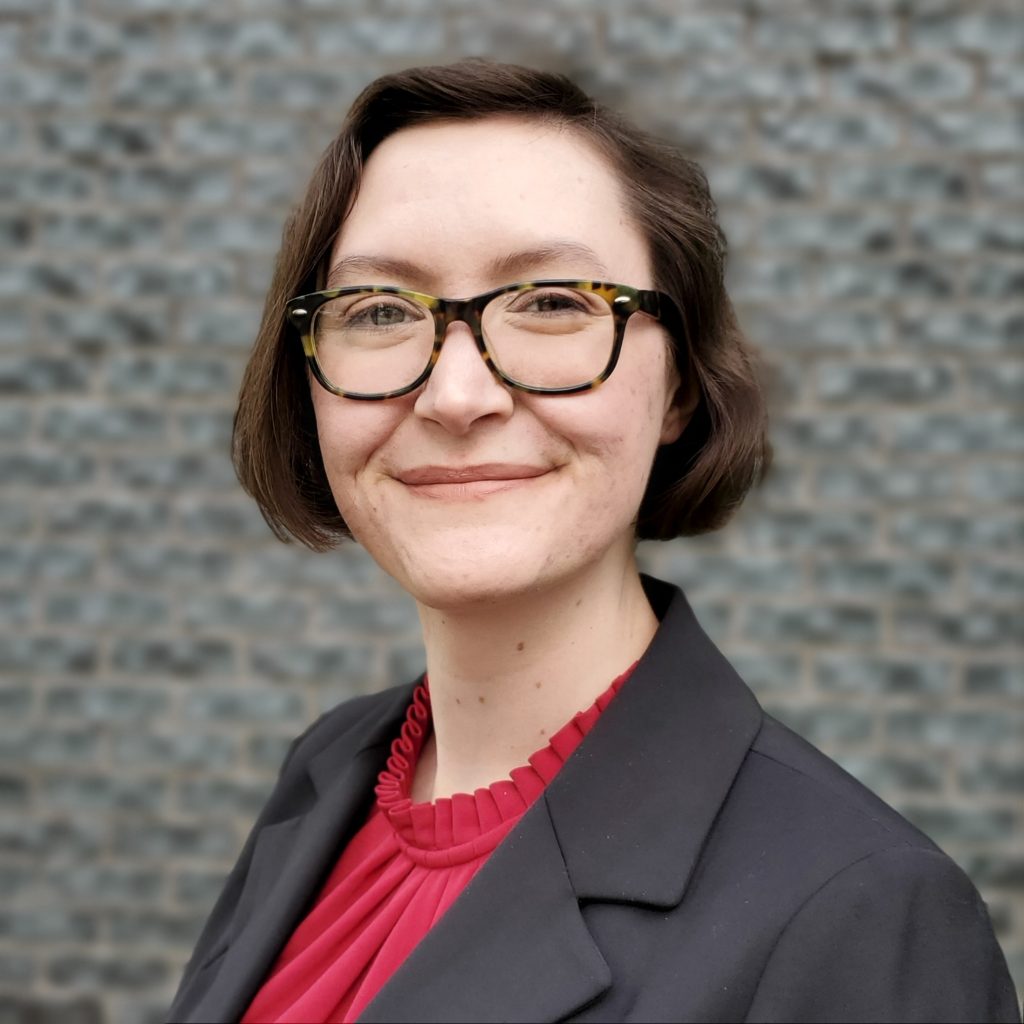
What is your practice area and/or area of expertise?
I am a property and casualty actuary, specializing in ratemaking for personal lines insurance. My main focus is homeowners insurance, but I’ve previously worked on other personal lines, including automobile. As an Academy volunteer, I am the vice chairperson of the Homeowners Insurance Task Force and a member of the P/C Extreme Events Committee.
What led you to become an actuary? and what attracted you to the profession?
Originally, I wanted to be a neuroscientist! I was interested in scientific thinking and the brain, so it seemed like an interesting career. When I was in high school, I had the opportunity to intern in a neuroscience lab. I was so excited to be the best intern they had ever had and to improve my résumé. Instead, I found out that I was too extroverted for laboratory work. I wanted the excitement of working alongside other scientists, but most of them were perfectly content to run their experiments with little day-to-day interaction.
I went back to the drawing board at the end of the internship. I was in economics class in my senior year of high school, and the lesson that day was about the value of installing a traffic light or a stop sign at a tricky intersection-a difference with a hefty price tag. The teacher explained that the government used the “statistical value” of human injury prevented to decide between the two interventions. I raised my hand and asked, “How do they determine the statistical value of an average person?” Apparently, that was not what was on everyone else’s mind! My teacher said that if I thought like that, I should be an actuary.
I looked up this new-to-me profession and realized it might be exactly what I wanted-a blend of statistics, math, and business sense. Even better, no one worked alone in a lab!
Describe a time when your professionalism training has helped you in your career.
I was on my first-ever call with representatives of an insurance department, and was nervous. Before I met with them, I reviewed the actuarial standards of practice [ASOPs] to make sure I would communicate all the relevant, required, and recommended information. The representatives were kind and professional, and the call went well. Reviewing the standards
reminded me that I had done all my work in accordance with our professional requirements. It gave me additional confidence to speak to my work with the knowledge that I had made decisions that were not just reasonable, but in accordance with actuarial professional standards.
In the years since I have presented my work to many stakeholders inside and outside my workplace. Accuracy and professionalism are paramount in those situations-and I still take the time to review ASOPs when I need a confidence boost!
Tell us about a time when your actuarial expertise influenced an important decision in your workplace.
Actuaries have a unique mindset to approaching problems. That viewpoint focuses on the importance of quality data, well-reasoned assumptions and analysis, and the big picture outside the actuarial bubble. Actuaries can be successful in so many roles because of our skillset that we apply to every problem we encounter.
Often, that combination of detail-oriented and long-range thinking can be missing in a discussion based on the people and roles represented. I always try to bring whatever is “missing” in the room to the discussion. If everyone is discussing the expansive strategic view we can project from some data, I try to ask questions or probe the data directly to add context. When we’re focused on the minutiae of a problem, I inject the high-level questions we are trying to answer. Actuaries, by virtue of being able to think in both modes, are important to have in the room for such decisions.
What’s one of the biggest lessons you’ve learned in your career?
It’s about the numbers, but it’s also not about the numbers. Working at a large company has given me a great view into how actuaries wield enormous decision-making influence, and how we are just one part of a larger strategic puzzle.
People don’t make decisions based on just numbers, because numbers are all about how you interpret them and the context around them. Growth is great-unless it’s in the wrong place! It’s easy to think that because an interpretation is evident to you from the data, it’s evident to everyone. As actuaries, we need to wear the hats of all our colleagues so we can uncover their perspective and give them the context they need. We have a consistent vision, underpinned by our professionalism, that we need to share with others.
Our ability to use emotional intelligence skills to understand our audience, communicate with them effectively, and support our point of view with data are the critical actuarial skills we all
need. Everyone said this was a data-driven profession, but I think it’s really a communication-based one!
What advice do you wish were given at the beginning of your career?
The most important thing you can do is meet people and connect with them. No one is an island. Working relationships enrich your professional network and your impact. Being an actuary can sometimes feel isolating. No one at parties knows what I do, and when I say I work in insurance … the conversation usually turns to ask the next person in the group what they do! Having strong working relationships with people who understand what I do is valuable. I have found ways to make a social impact through both the Casualty Actuarial Society [CAS] and the Academy in volunteering on issues I care about, like climate change and public policy, which combine my professional skills and personal passions. None of that would be possible without the colleagues and friends I’ve made as part of the journey.
What do you value most about your academy membership or academy volunteer work?
Actuaries join our profession for many reasons. Some people love examining data or creating new methodologies. Others want to dig into the financial impacts of actuarial decisions, or catastrophe modeling or business decisions. I like that too, and I’m also passionate about making a difference in the world. Actuaries who work on lines like homeowners have seen the effects of a changing climate and patterns of human development on billion-dollar disasters in the United States, but actuaries aren’t the only ones who have taken notice. We have a unique set of skills and business knowledge that give us influence and credibility. I want to use our reputation for professionalism, thoughtfulness, and candor to raise awareness around key issues in our society, like climate change, and help policymakers make the right decisions.
Volunteering with the Academy has already let me use that influence, whether it’s through visits to Washington, D.C., to provide public policy stakeholders information on flood and wildfire risk, or through connections to other actuaries interested in those issues through committee work.
Would you like to share anything else with aspiring or new actuaries, or those interested in volunteering for the academy?
Volunteering with actuaries is a joy! It’s fun to meet other people and collaborate on a project-it’s what group work in school should have been like. Often, actuaries practicing in the U.S. are more connected to the CAS or the Society of Actuaries as the organization where they earned their credentials, rather than a cross-functional organization like the Academy. The Academy is focused on issues that extend beyond our professional bubble into the realm of public policy issues that affect us all. I’m grateful that I have been able to volunteer with the
Academy. The Homeowners’ Task Force works on the kinds of issues that interested me in volunteering in the first place-I will add that the task force is always looking for new members!
Beyond work-what are some of your hobbies or other personal interests?
I love to run and hike in the extensive county park system near my house, bake cookies and cakes, and host parties. When I’m not outdoors, I like to work on embroidery or knitting pieces and listen to pop culture criticism and science podcasts.
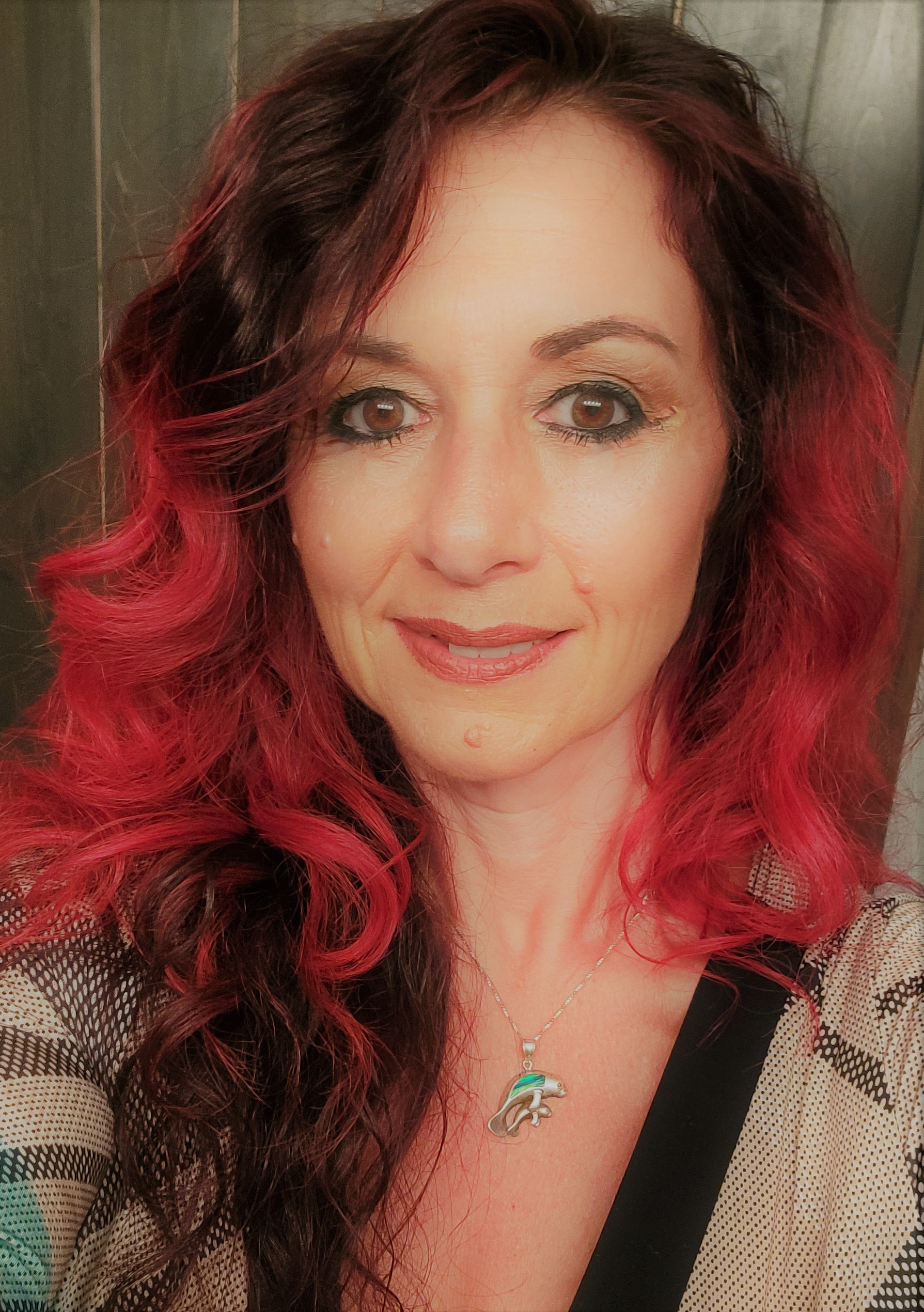
Maggie Ruzicka

What is your practice area and/or area of expertise?
I am a health actuary focused on cost-effectiveness, health quality, and health equity.
What led you to become an actuary? and what attracted you to the profession?
I had worked as a bookkeeper throughout high school and college and intended to pursue an accounting degree. One day my college calculus professor told me about the actuarial science program at my university (Central Washington University in Ellensburg, Wash.) and explained how it incorporated my love of math with my love of business. I checked out the program and as they say, the rest was history.
Describe a time when your professionalism training has helped you in your career.
I think it would be more difficult to describe a time when professionalism has not helped my career! A cornerstone of being an actuary is professionalism. I can describe a recent interaction while working with an insurer looking to become a new provider in one of the states my company supports. As part of the readiness review process, we require the company to submit various financial documents. The provider was reluctant to submit some of the requested documentation. By utilizing the professionalism and ASOP (actuarial standard of practice) requirements, I was able to navigate a difficult conversation and provide our state partners with the information they required to make an informed decision on whether to allow the insurer to support their population.
Tell us about a time when your actuarial expertise influenced an important decision in your workplace.
Due to changes in public policy, a new insurance product became available to members in my market. Using my skills, I was able to effectively project the cost of the proposed benefits for the new product, develop pricing that was advantageous to the consumer as well as the insurer, and broaden the footprint of the company in a particular market segment.
What’s one of the biggest lessons you’ve learned in your career?
I think one of the most important lessons I have learned is to not get lost in the weeds. As actuaries, we tend to focus on the details. While this is important, we must also understand and keep the bigger picture in mind.
What advice do you wish were given at the beginning of your career?
To focus on maintaining balance between work and exams. As a new actuary, remember that a large portion of your job is to focus on working toward your credentials.
What do you value most about your academy membership or academy volunteer work?
I love the ability to work with so many people with diverse backgrounds! We are all actuaries, but how we got to this point is unique and different. I greatly enjoy the opportunity to learn from, and network with, other committee members.
Would you like to share anything else with aspiring or new actuaries, or those interested in volunteering for the academy?
If you can, do! There are so many ways to learn and help develop the actuarial field of the future. Volunteering for a committee is a phenomenal way to see how the world is changing from the actuarial perspective and allows you to be a voice in the change!
Beyond work-what are some of your hobbies or other personal interests?
I love golfing, reading, and traveling. I am also an avid music fan and enjoy attending rock and metal concerts and festivals. I like the metal band Disturbed, and am also a big Cincinnati Bengals fan. This could be their year-Who Dey!
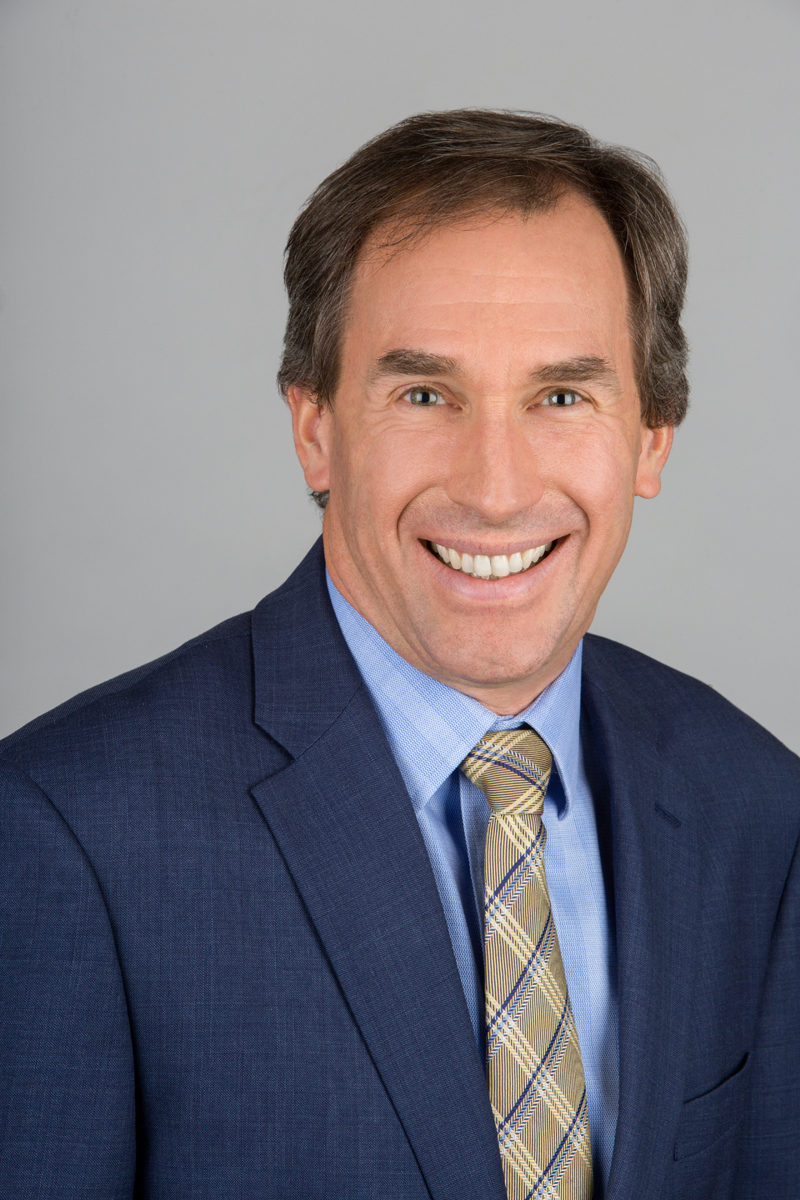
Tim Geddes

What is your practice area and/or area of expertise?
Retirement Consulting
What led you to become an actuary? and what attracted you to the profession?
Throughout my schooling, I appreciated the apparent certainty and objectivity of math. I was always keenly interested in business as well. When I learned of the actuarial profession, it seemed the perfect blend of mathematics and business. Of course, as I progressed in my career, I realized that the certainty found in the textbooks is never present in the real world-and that real-world environment makes our professionalism so essential and well-executed work so fulfilling.
Describe a time when your professionalism training has helped you in your career.
Professionalism training helps every practicing actuary every day-even if we don’t recognize it as often as we should. There are specific moments when we are faced with a clear ethical or professionalism-centric decision, but professionalism is truly omnipresent in the background with the way actuaries approach our daily work, and apply the skills and experience we have gained.
Tell us about a time when your actuarial expertise influenced an important decision in your workplace.
Much like with professionalism, most (if not all) actuaries approach many problems with a differentiated perspective due to our background and education. While maybe not a specific example, I believe a strong understanding of probability and recognizing observed outcomes from small samples as less-than-certain creates a more patient perspective as results emerge. Such patience can often prevent a lot of gyrations responding to tail events that are quite possibly going to correct themselves over time without any intervention at all. At the same time, understanding when data clearly shows a pattern that is likely signal rather than just noise makes me more assertive to address those particular problems.
What’s one of the biggest lessons you’ve learned in your career?
Throughout my career, I have always tried to avoid doing the same thing repetitively. I seek new opportunities or new approaches to existing opportunities. I really believe that “never stop learning” is a maxim that should guide everyone’s career.
What advice do you wish were given at the beginning of your career?
Early in my career, I focused a lot on honing specific technical skills required to perform actuarial services. I don’t believe I realized as soon as I should have how important non-technical capabilities are in effectively delivering those services with skill and care. Our principals need not only accurate, complete, and well-thought-out work, they also require well-structured communication of that work product and actuaries who are willing to invest the time to bring the principal along for the learning journey to make most effective use of the information the actuary is providing.
What do you value most about your academy membership or academy volunteer work?
I value my Academy membership because I am proud of the work the American Academy of Actuaries does to advance professionalism across all actuaries (members or not) and to inform policymakers on important actuarial issues in an effective and objective manner. I recognize my volunteering opportunities as a simultaneous way both to learn from many of the best actuaries in the business and also to make a personal contribution to the profession at the same time. I view volunteering as a way to maximize the value of membership for myself and to optimize my employer’s dues investment.
Would you like to share anything else with aspiring or new actuaries, or those interested in volunteering for the academy?
For those just looking into volunteering, at the risk of a copyright violation, “just do it.” Volunteering has tremendously helped my career. Volunteering doesn’t need to start big; it could be a micro-volunteering opportunity to gain visibility and experience, which could then grow and grow. To those who are already volunteering, please think of how you can involve more junior members of your network. I started volunteering because a couple of experienced volunteers encouraged me to do so; we all need to pay forward that experience.
Beyond work-what are some of your hobbies or other personal interests?
I really enjoy college football-particularly last year, when my alma mater the University of Michigan (which two of my children attend now) won the national championship! I also look forward to weekends by the lake with my family.
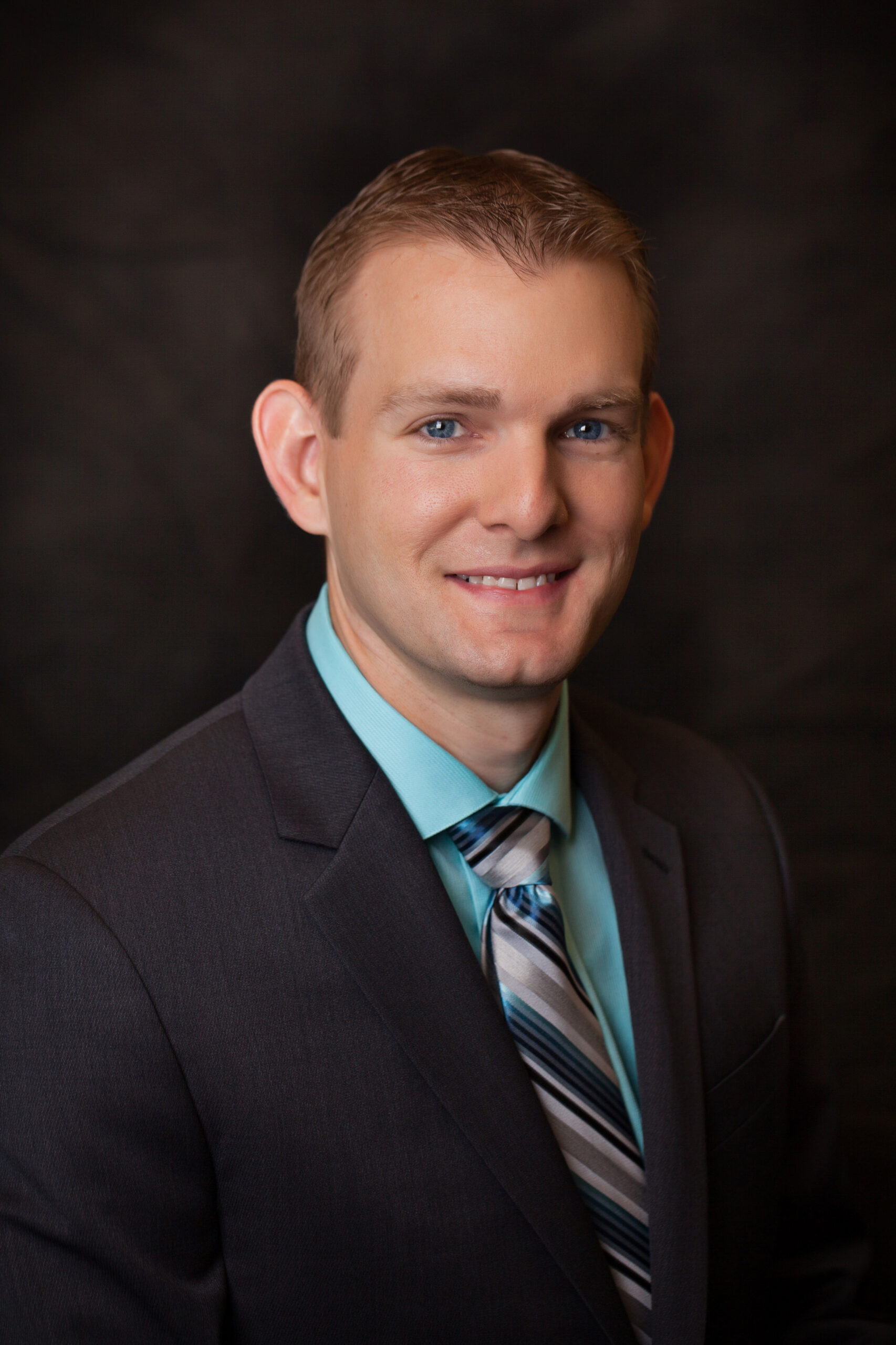
Ron Ogborne

What is your practice area and/or area of expertise?
Health/Medicaid
What led you to become an actuary? and what attracted you to the profession?
Discovering the actuarial profession was a happy accident in my case. I was freshman in college, double-majoring in journalism and political science, and decided to take calculus because I enjoyed math. As luck would have it, that class was taught by a professor in Ball State University’s Actuarial Science Program. Over the course of that year, I realized that actuarial science was a way for me to make a career out of something I was both good at and passionate about.
A chance encounter with the Mercer representative at a career fair I attended just prior to the start of what would have been my fourth semester as a Ph.D. mathematics candidate resulted in me landing a job as an entry-level actuarial analyst. Over the course of the ensuing 19 years, I’ve worked in just about every role in the actuarial arm of Mercer’s Medicaid consulting practice.
I discovered very quickly that the actuarial project work that exists in health care consulting is very dynamic and that I would have opportunities to move across a wide variety of roles on the project teams I was assigned to, which was very appealing to me as an aspiring actuary. They have also been significant factors in my desire to stay at Mercer over the long term.
Describe a time when your professionalism training has helped you in your career.
I have found my professionalism training to be most useful when I need to have a difficult conversation with a client or third-party stakeholder. Having a firm grasp on what my professional responsibilities require of me in these situations and what the consequences for failing to adhere to those requirements guides me when I’m formulating a strategy for these conversations. Likewise, ensuring that I have a robust understanding where flexibility does or does not exist helps me navigate many of the questions that come up throughout the conversation itself.
While I still don’t enjoy having difficult conversations with clients or third-party stakeholders when the need arises, I have developed this into a strength over the course of my career. I owe a large amount of the credit for this to the professionalism trainings I’ve attended over the years, as well as the discussions I’ve had with many of my more experienced colleagues about issues related to the Code of Professional Conduct and actuarial standards of practice.
Tell us about a time when your actuarial expertise influenced an important decision in your workplace.
Although none of my formal actuarial training was designed to prepare me for the various roles I have taken on in managing large, complex engagements, I have repeatedly found that my actuarial problem-solving and critical-thinking skills are just as applicable to a host of the non-actuarial challenges I’ve been tasked with tackling. From building and managing budgets and timelines, to forecasting revenue and expenses, to devising a strategy for responding to requests for proposals, the skills and knowledge I’ve acquired through my actuarial training and work experience have proved to be sufficiently versatile that I have been able to rely on them to solve these business problems and more. Once I recognized and embraced the idea that my actuarial expertise could be adapted to this new role, it gave me the confidence that I needed to make the jump from primarily actuarial roles into a role as an engagement manager. This decision unlocked a new set of opportunities for professional growth and development and was a critical step in helping me realize my full potential as an actuarial consultant.
What’s one of the biggest lessons you’ve learned in your career?
As Ted Lasso famously said, “be curious, not judgmental.” Asking questions is, in my opinion, the best way to accelerate your understanding of a topic and grow as a professional. You may need to be thoughtful and strategic about who you’re asking your questions to or when you’re asking them, but making sure that you actually do ask questions when you have them is an incredibly effective way to acquire institutional knowledge about a client or project from more experienced team members. By increasing your understanding of the context within which the projects you’re assigned to exist, you will inevitably find yourself better positioned to be able to add value to your project teams on a consistent basis. Additionally, you can turbocharge this growth and development by attaching yourself to projects, teams, or organizations where you are surrounded by as many intelligent people as possible.
What advice do you wish were given at the beginning of your career?
Having a plan for your career is important, but it’s at least as important to have flexibility in your plan. Over the course of my career, the best and most interesting opportunities have tended to be ones that popped up unexpectedly, as opposed to those that I could see coming ahead of time. It took me longer than I would have liked to realize that the keys to being able to take advantage of such opportunities without overcommitting (and ultimately overworking) myself are: 1.) to always be mindful about training and developing others on my team to be able to take on additional responsibilities when called upon; and 2.) being disciplined about delegating or handing off some of my existing responsibilities when I volunteer to jump into something new, different, and exciting. These skills take time and practice to master, but they are worthwhile investments in your long-term success and happiness in the actuarial profession.
What do you value most about your Academy membership or Academy volunteer work?
The opportunities created by my volunteer work with the Academy are easily what I value most about my membership. Volunteering provides me with an opportunity to hear new and different viewpoints on issues I’m already familiar with as well as gain a better understanding of how issues in other market segments relate issues that I’m focused on day-to-day. Over time, this has definitely made me a better actuary and consultant.
Would you like to share anything else with aspiring or new actuaries, or those interested in volunteering for the Academy?
Volunteering with the Academy is probably going to be outside of your comfort zone initially-and that’s totally fine! I would encourage you to start with small steps. Raise your hand for a committee that you already know something about, that aligns with your interests, or that someone you know is already a part of. Make a commitment to simply attend committee meetings for your first year. Eventually, you’ll get to know many of the regular attendees and acclimate to the meeting flow and expectations. Before you know it, you’ll find that you have a viewpoint to offer on a topic that is being discussed, and you’ll find it becomes progressively easier to contribute to the group over time. I trust that you will find volunteering for the Academy is both a rewarding experience and a great way to increase your value in the marketplace.
Beyond work-what are some of your hobbies or other personal interests?
As a father of two very energetic children ages 6 and 4, my wife and I spend the majority of our free time dividing and conquering activities including baseball, gymnastics, swimming, and Lego building. I am also a dyed-in-the-wool Buffalo Bills fan and I have been an avid CrossFitter for the past 10 years. I recently became a CrossFit Level 2 Trainer, because a commitment to lifetime learning means more than completing my 30 hours of actuarial continuing education every year.
My wife and I also love to travel, and we are looking forward to the opportunity to add more stamps to our passports in the near future as our kids become old enough that international travel feels manageable again.
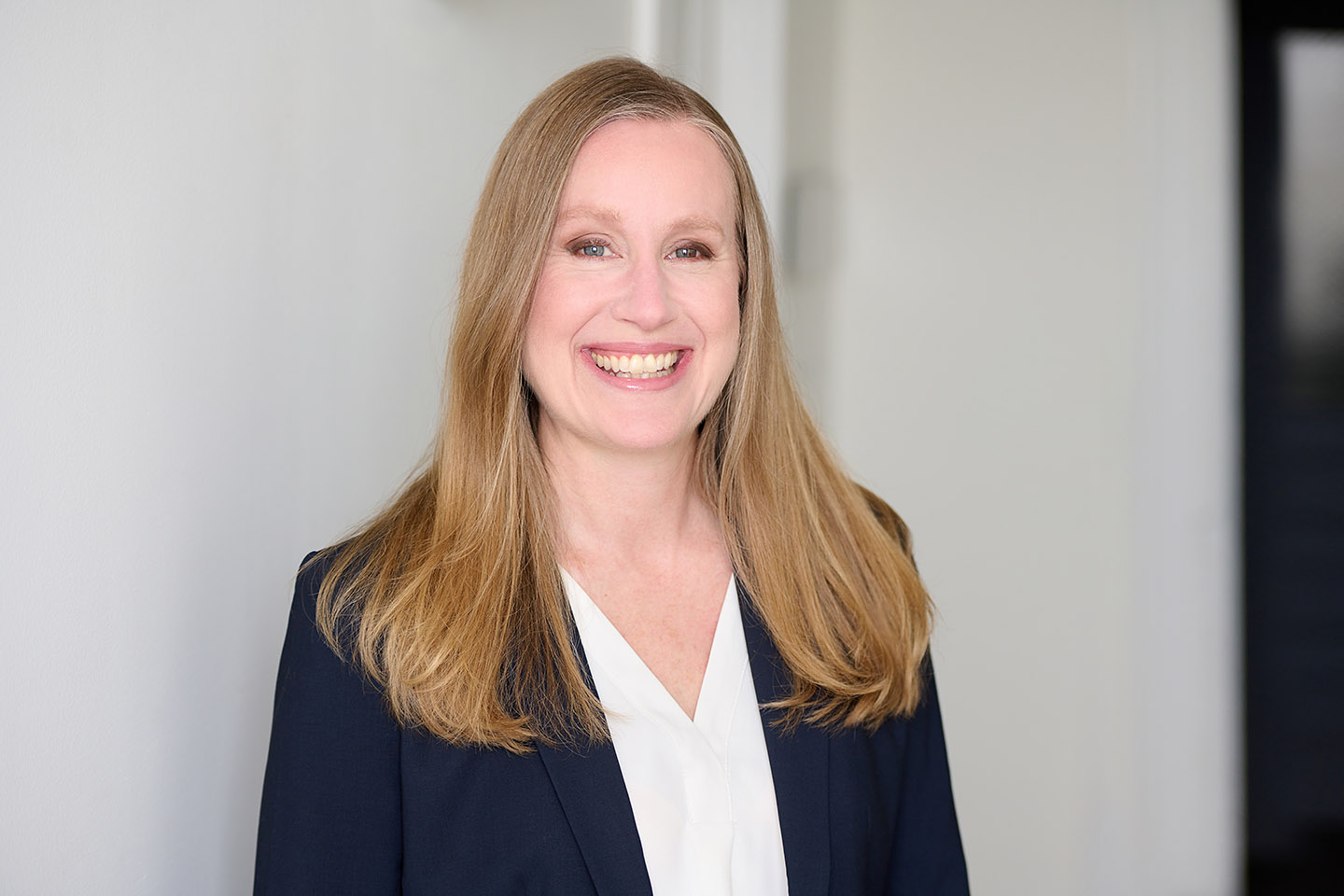
Amy Angell
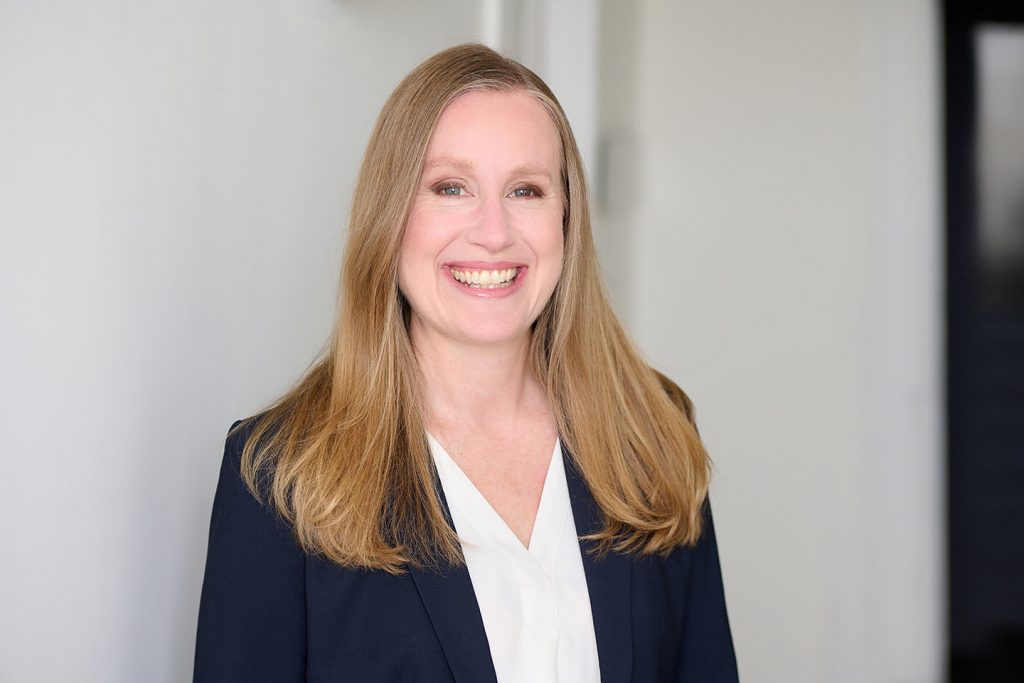
What has been your experience on the academy board and what would you say to volunteers who might like to be prospective future board members?
My experience on the Academy Board of Directors (as casualty vice president) has been both educational and rewarding. I have learned so much about what each of the other practice areas is working on, as well as how the Academy governs itself. I have also had the opportunity to be part of important dialogues on diversity, equity, & inclusion and about the value that the Academy brings to its members and their employers.
What led you to become an actuary? and what attracted you to the profession?
The actuarial profession represents a wonderful mix of using a skill I love-math-to solve interesting problems. I fell into the profession nearly by accident, having been introduced to an actuary by someone who had left the actuarial path early on to become an accountant instead. I was initially attracted, believe it or not, by the exam process. I saw it as a continual learning opportunity. Over time, what I have enjoyed the most are the projects I have worked on and the people I work with.
Describe a time when your professionalism training has helped you in your career.
The Code of Professional Conduct has been incredibly helpful in my career. Precept 7 (Conflict of Interest) provides a clear roadmap not only of how to handle conflicts of interest, but how to communicate and clear potential conflicts of interest. Precept 10 (Courtesy and Cooperation) provides pragmatic and sage guidance for how to engage with another actuary in a professional manner when discussing differences of opinion with respect to actuarial assumptions.
Tell us about a time when your actuarial expertise influenced an important decision in your workplace.
We have worked to build a supportive office culture where actuarial analysts are exposed to different types of projects, and encouraged to grow in facets of their career in addition to the exams, including project management, client engagement, and professional development.
What’s one of the biggest lessons you’ve learned in your career?
We are estimating numbers…but we are communicating them to people. Understanding how an estimate is being used, by whom, and why, is critical to performing actuarial services. These will dictate how to best communicate your findings and inform your view of what is material to the outcome
What advice do you wish were given at the beginning of your career?
It is not the advice you are given but the advice you are ready to take on board that matters. The advice I wish I had been ready to take on board is to be curious-be curious, ask questions, listen, and strive to learn as much as possible.
What do you value most about your academy membership or academy volunteer work?
I am grateful for the opportunity to work together with an amazing group of volunteers and Academy staff on the impact of actuarial practice and insurance regulations on financial security systems.
Would you like to share anything else with aspiring or new actuaries, or those interested in volunteering for the academy?
Say yes! Life is a continual learning process. Learn something. Apply it. Teach it. Go back and learn some more.
Beyond work-what are some of your hobbies or other personal interests?
I love being outside, and regularly hike in the woods, walk on the beach, and swim in the ocean. I also love creating and am currently enjoying experimenting with sculpture.
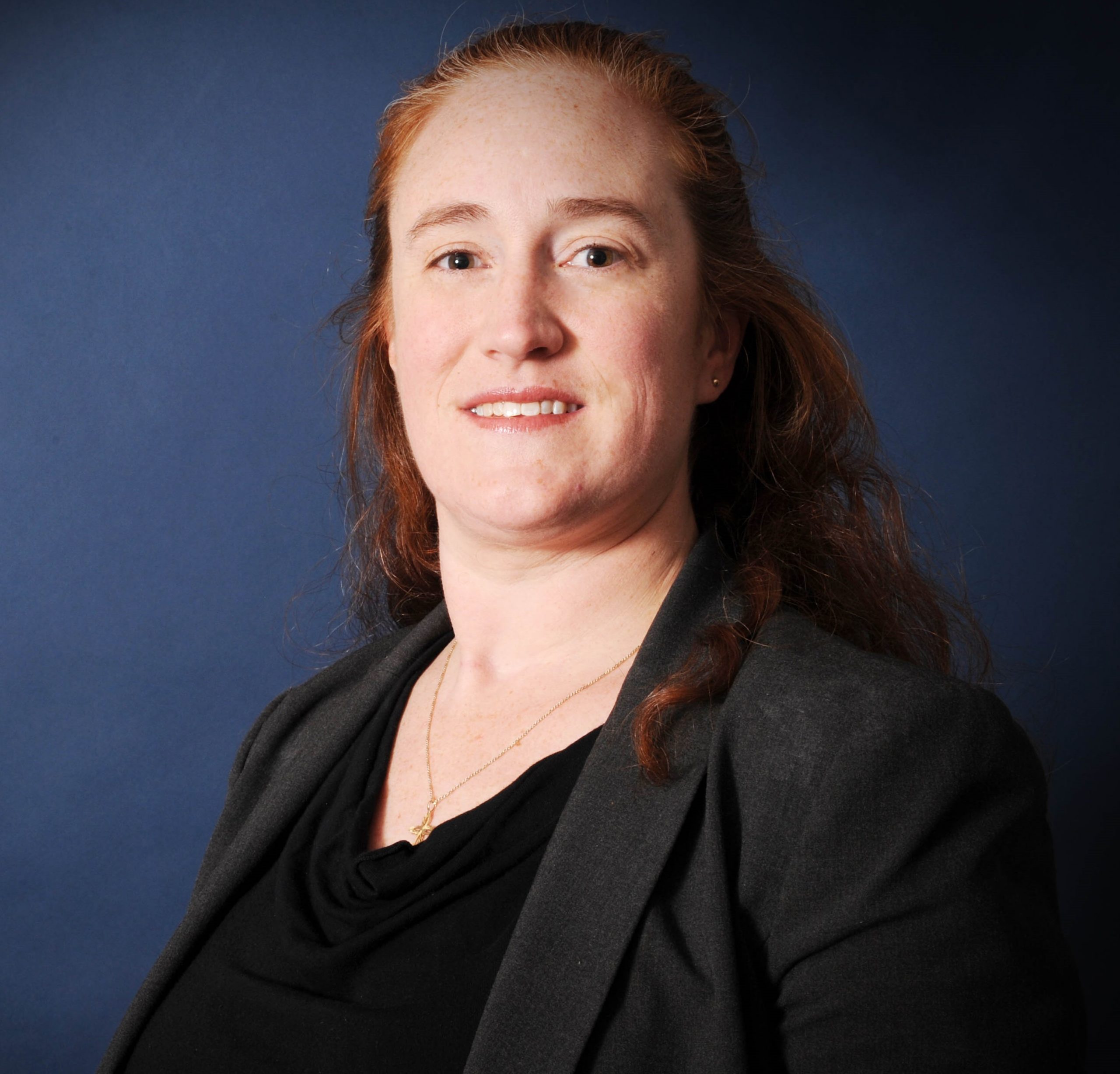
Krystal Ross

What is your practice area and/or area of expertise?
P&C, Workers’ Compensation
What led you to become an actuary? and what attracted you to the profession?
During my sophomore year of college, I was taking a statistics class with multiple seniors who were talking about taking an exam. (My university didn’t have an actuarial science program, but apparently had an actuarial club that fizzled out after the exam my classmates took.) Being curious, I asked them what it was about-and I was hooked immediately. Going to college as a math major, I knew there were many options for me when I graduated, but I hadn’t figured out which option would be best. Once I heard about the practical use of math within the profession, I knew it was the right path for me.
Describe a time when your professionalism training has helped you in your career.
It’s hard to find a single time where professionalism training has helped me in my career being that so much of that training plays a role in your daily life-from the ASOPs [actuarial standards of practice] to business etiquette, and the four principles of ratemaking. I feel like professionalism bits and pieces are embedded in all that we do.
Tell us about a time when your actuarial expertise influenced an important decision in your workplace.
In a prior role, I had the responsibility of reviewing new programs. We had to decide whether or not to take them on. My experience enabled me to adequately analyze the data which led us to turn down a prospective program. We reviewed it again a couple of years later and it appeared we made the right choice, as it had not been profitable.
What’s one of the biggest lessons you’ve learned in your career?
The biggest lesson I’ve learned is that some of the projects that you may believe are the most boring or monotonous are the ones that you learn the most from. I had one project early in my career that I wasn’t the biggest fan of, but, if it wasn’t for that project, I probably wouldn’t be where I am today.
What advice do you wish were given at the beginning of your career?
Exams are tough, and it’s OK to fail! Just keep working hard and success will come.
What do you value most about your academy membership or academy volunteer work?
The part I value most about my volunteer work is the ability to contribute to publications and presentations. I’m a mathematician, not a writer, so I never dreamed of being a part of a published document. It was a great experience to present one of those papers at Envision Tomorrow, the Academy’s Annual Meeting.
Would you like to share anything else with aspiring or new actuaries, or those interested in volunteering for the academy?
For new actuaries, don’t try to rush into the “cool” things (as I mentioned earlier with the “biggest lesson”).
For those interested in volunteering, don’t be afraid to join a committee because you don’t feel like you’ll have much to contribute or believe you’re too much of an introvert. We’re actuaries-we’re almost all introverts! It might take time before you feel comfortable contributing, but it’s much better to sit and observe for a while than to be completely off the field.
Beyond work-what are some of your hobbies or other personal interests?
I was a double major in college with dance as my second major. I was a dance teacher until the financial crisis of 2008. Though I took some time away from the dance world after that, I recently started taking a tap-dance class again. I also enjoy spending time with my husband and two boys. Most of that time is spent either coaching or attending some sort of sporting event for one of the boys. When we get a free day, you’d typically find us in the arcade, on the beach, or in the arcade at the beach-one of the great things about the “Jersey Shore”!
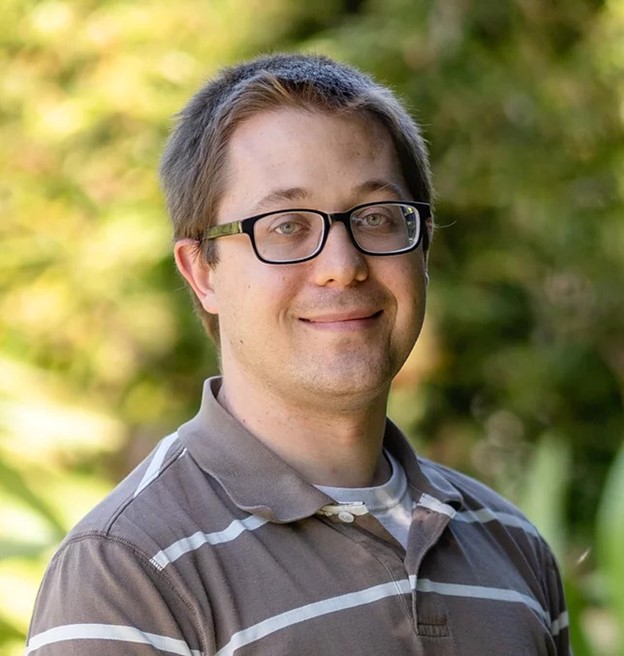
Tony Pistilli

What is your area of focus or practice area?
We specialize in helping with all participants in the prescription drug space-manufacturers, pharmacy benefit managers (PBMs), insurers, self-funded employers, etc. I also have a background in medical coding and data analytics and specialize in predictive analytics work using medical claims data.
What led you to become an actuary? And what attracted you to the profession?
I went to college to be a jazz musician but stopped playing just before my freshman year of college. I needed to change my major before I registered for classes, and for some reason didn’t want to be undeclared. “Actuarial Science” started with an “A”, and I knew they did math, so I selected that not intending to stick with it, but the deeper I got the more fun it was. It was also pleasant to learn that actuaries make a lot more money than jazz musicians!
Describe a time when your professionalism training has helped you in your career.
I have benefited from working around other great actuaries who have helped me navigate around any professionalism issues such that they never became big challenges.
What advice do you wish you were given when you were at the beginning of your career?
That relationships are the most powerful way to be influential and successful. There is a great book called Managing With Power by Jeffery Pfeffer. The title sounds really draconian (the version I have even has a red and yellow cover that looks especially menacing!), but it’s a very insightful and subtle book. His main thesis is that there are three types of power: relationship, expertise, and role. Actuaries often have a lot of expertise power (what he says is the least effective type of power), and can be promoted into having role power (also an ineffective type of power), but relationship power is the most dynamic form of power.
Tell us about a time when your actuarial expertise influenced an important decision in your workplace.
I had a really fun job starting an actuarial group to work with Optum’s Payment Integrity Product. This product does editing and fraud reviews for health insurance claims, and so had a lot of expertise in medical coding, provider management, and network agreements. My team introduced another layer of sophistication by laying in some more advanced statistical and data science tools to optimize our work, built more robust financial reporting to highlight successes and failures, and worked with the actuaries at our clients to explain the technical aspects of the product and how we evaluate its financial impact.
What’s one of the biggest lessons you’ve learned in your career?
Saying “yes” to every opportunity you are presented with is one of the best ways to expand your skill set and grow as an actuary.
What do you value most about your academy membership?
There are a number of Academy practice notes that I have footnoted for quick reference, and I also go to the Academy website when I review the ASOPs (actuarial standards of practice). I also appreciate the “Academy Alert” emails and other policy research work that the Academy does, especially with the constant legislative changes in healthcare.
Would you like to share anything else with aspiring or new actuaries, or those interested in volunteering for the academy?
Volunteering is a great way to network with other actuaries and learn more about how the profession works.
Share a little about yourself. what are some of your hobbies or other personal interests?
My wife Rose and I have 5 kids (ages 10, 8, 5, 3, and 6 months), so they are my main hobby! I also enjoy playing and studying chess, reading-and we enjoy working in our large garden in the summer.
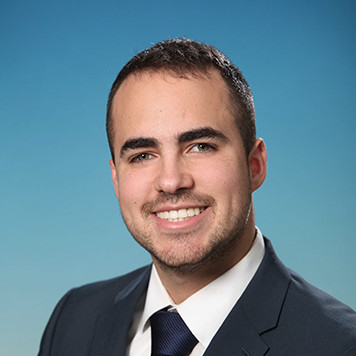
Roberto Perez Santiago

What is your practice area and/or area of expertise?
Rate Modeling / Insurance Regulation
What led you to become an actuary? And what attracted you to the profession?
Although I had a quick first introduction to actuarial science through some exam problems my dad showed me when I was in high school, it wasn’t until my sophomore year in college when I realized that being an actuary was a viable career option. I remember a friend telling me about exam P while waiting for our linear algebra class, and I found the topic intriguing. Afterward, I started doing research into the profession and the combination of math and business aspects appealed to me. I ended up passing the first two exams that year and then decided to do two semesters abroad during my senior year at a university that had an actuarial program. Although my alma mater was very supportive of me taking the exams, it was very helpful to be among other actuarial students and industry professionals, which further solidified my decision to pursue an actuarial career.
What advice do you wish you were given when you were at the beginning of your career?
While not actuarial-specific, advice on succeeding at work versus school is crucial. Progressing in my career made me realize that executing responsibilities well remains very important, but what truly matters is always keeping an eye on the big picture.
What’s one of the biggest lessons you’ve learned in your career?
Always be diligent with your work. Every small project/task affects the broader picture either directly or indirectly.
What do you value most about your academy membership?
Although the educational and networking opportunities are excellent, what I value the most is being part of an organization that is instrumental in maintaining the reputation of the actuarial profession.
Would you like to share anything else with aspiring or new actuaries, or those interested in volunteering for the academy?
Make sure to sleep well the days leading to an exam!
Share a little about yourself. what are some of your hobbies or other personal interests?
Like many others, I started running during the pandemic. I now make sure to go on a run whenever I visit a new town or country. Running through the streets of Prague a few months ago was an amazing experience! On another note, I’m very into genealogy, which is something I have been doing since high school; I continue to uncover new information to this day. However, above all, I love spending time with my wife Allie and my two cats, Arthur and Theopholis.
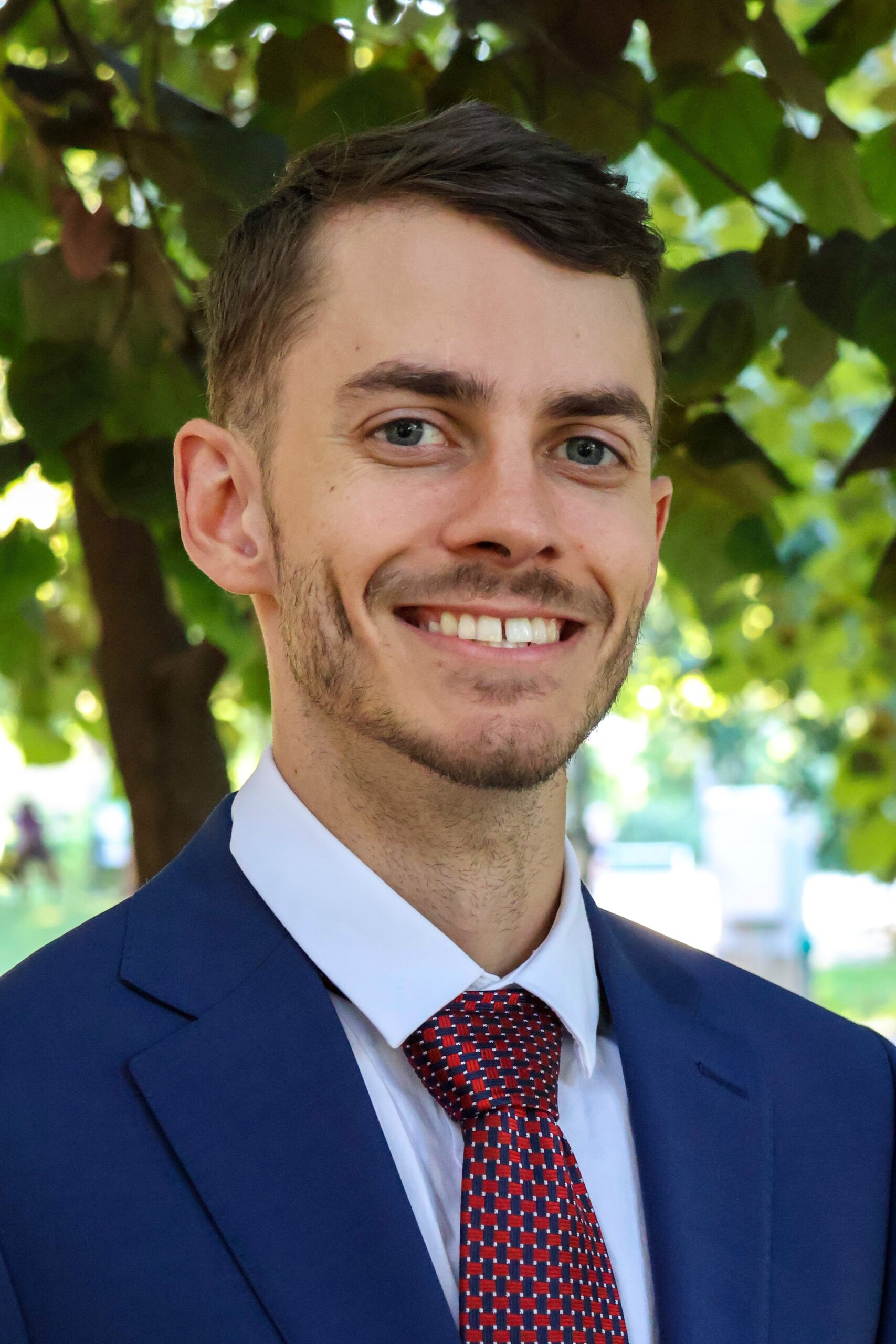
John Miller

What is your practice area and/or area of expertise?
Health-Medicare Advantage
What led you to become an actuary? And what attracted you to the profession?
I was attracted to the interesting intersection of math skills and business acumen needed for professional success. Businesses need to make a lot of decisions that weigh risk, and the actuarial math skills for which actuaries are relied upon are crucial. I thought that being an actuary would provide stepping-stone opportunities for being valued in important business decisions, which was my true passion. Over time, I have felt like my expertise and value has shifted from a mathematical and technical skills focus earlier in my career to more of a business strategy and big-picture focus.
Describe a professionalism-related challenge that you have faced in your career. how did you handle it?
I recall that in my third year at my first job I had just switched roles to an entirely different position within the same company. There were some areas I felt that I could contribute in my new role due to the experience that I had developed, though it was outside of my defined role. In my previous role, it was also outside of the scope of my role, but I enjoyed it-and my input was greatly appreciated. In this new role, there was often red tape in areas where my curiosity and interests led me, and the new role didn’t seem interested in giving me a chance or valuing my opinion quite like my prior one had. Navigating hierarchies was challenging, so I simply responded to this by switching to consulting, and I feel like my opinion, input, and curiosity is very valued now.
What advice do you wish you were given when you were at the beginning of your career?
Focus on the big picture. If you’re already an actuary, you’ll be fine in life even if you make some mistakes-don’t stress.
Tell us about a time where your actuarial expertise influenced an important decision in your workplace.
In my first year as an actuary, I was curious about why we charged a certain proportion of the population differently than other members. There was certainly some logic behind this rating factor, but the factor itself was a very round number, and I questioned whether there was actually any rigor behind it. After finding a general lack of documentation and “blank stares” after asking about the origins of the factor to several more experienced colleagues, I asked my manager if I could spend some time looking into it. I was discouraged from investigating further, as I was told this factor only applied to a small proportion of the population, it was permissible to rate as such within the law, and it logically made sense. I eventually received some approval to poke around, but not to take this curiosity as a top priority.
Upon further investigation, it turns out that this population that we were charging higher premiums to was actually several times more profitable than the general population. The initial logic for why this factor should be higher was very base-level, and did not consider other interacting factors that changed the story. In addition, our factor was an outlier compared to our competitors.
Eventually, this study became my top priority as it reached the executive-level, and the factor was removed entirely, such that this population was no longer being charged 25% more than the general population. It pays to be curious!
What is one of the biggest lessons you’ve learned in your career?
Be curious. Ask why. A genuine interest in the subject matter, and an appreciation for the big picture, will take you far.
What do you value most about your academy membership?
I enjoyed networking with other Academy members at this month’s Envision Tomorrow Annual Meeting. I also value the Code of Professional Conduct, which allows actuaries to maintain a high level of reputation within the profession. The fact that actuaries are self-regulating speaks to the high standards that actuaries are able to maintain through organizations like the Academy, which helps contribute to the development of actuarial standards of practice (ASOPs).
Would you like to share anything else with aspiring or new actuaries, or those interested in volunteering for the academy?
Passing exams is important, but don’t lose sight of balancing work/study with pursuing interests outside of your actuarial career. While this advice might not help you maximize your career earnings, fulfillment outside of your professional career is important to help you stay grounded and positive when your career hits some bumps or when you have a hard day at work. Actuaries tend to be very hard-working and diligent, so it feels important to keep in mind.
Share a little about yourself. what are some of your hobbies or other personal interests?
I love traveling and learning about other cultures and languages. I met my wife in Costa Rica through the app “couch-surfing” where I connected by sending a message in our four mutual languages of interest, and through her, learned Spanish well enough to call it my strongest second language!
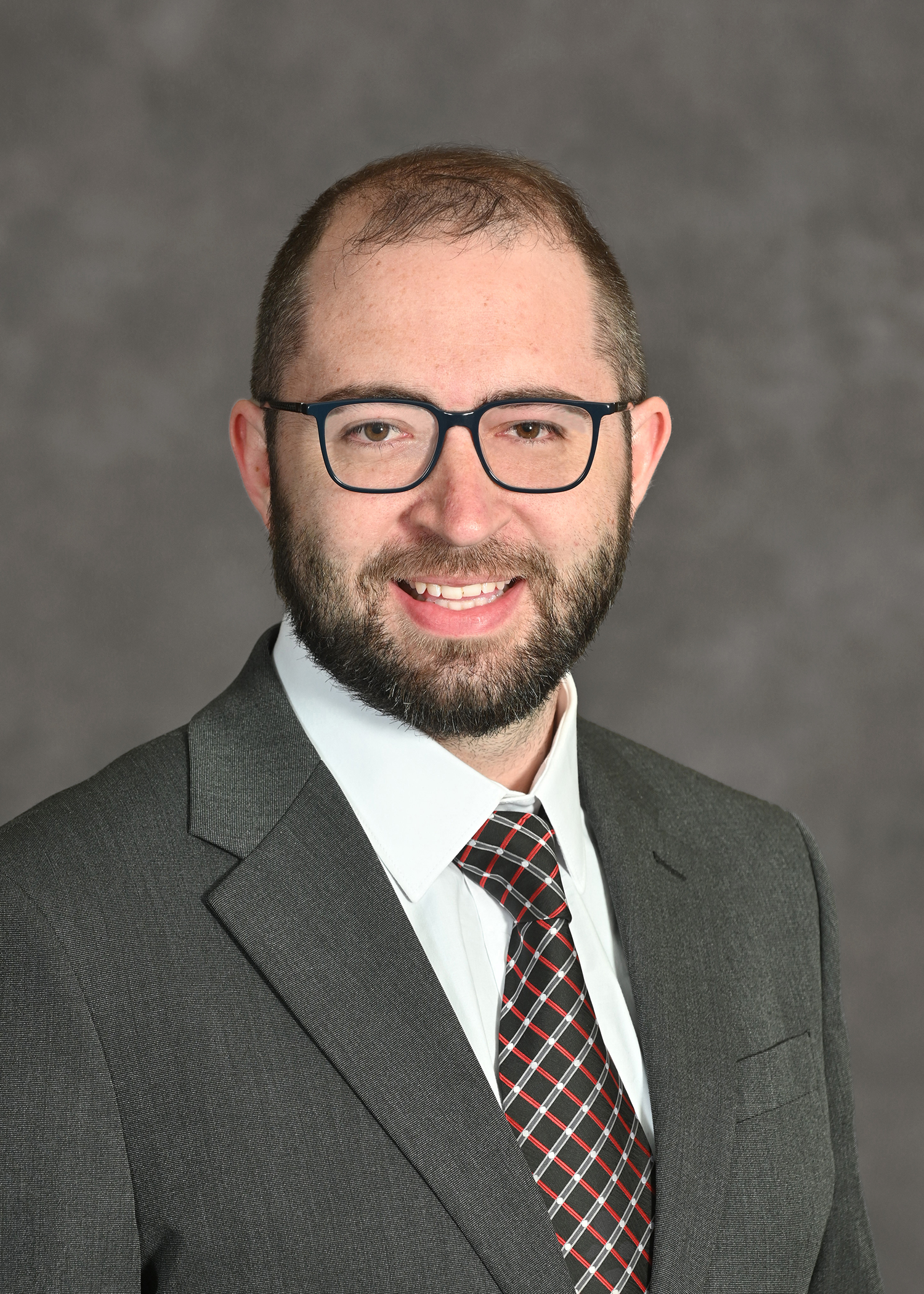
Christopher Ludwiczak
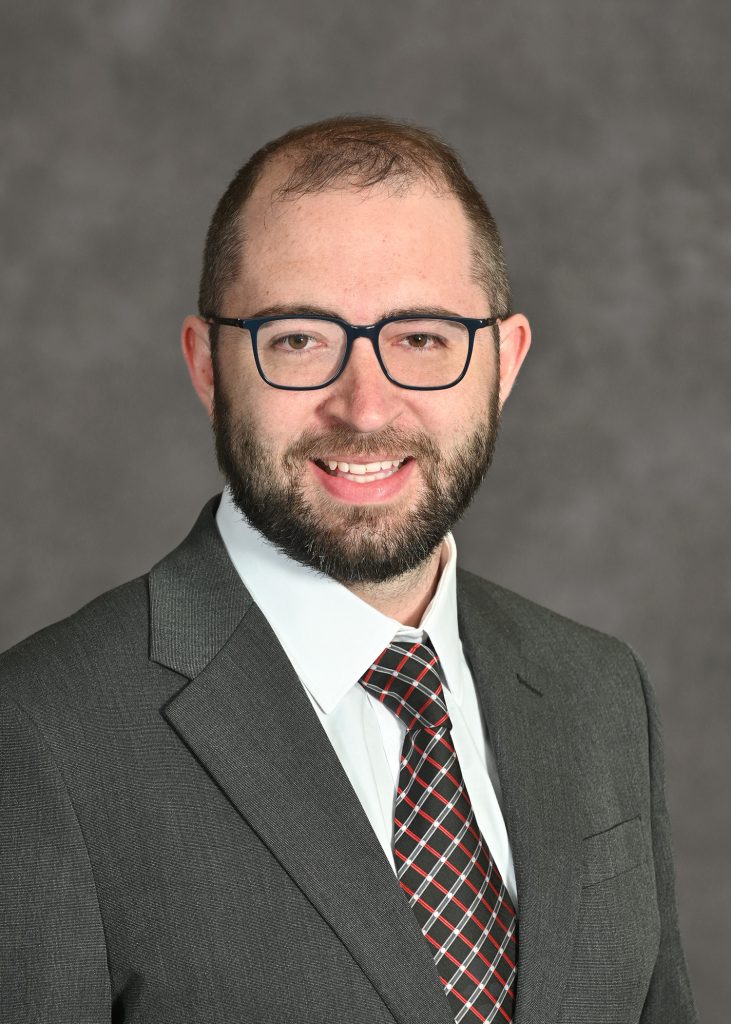
What is your practice area and/or area of expertise?
Health & Welfare Consulting
What led you to become an actuary? And what attracted you to the profession?
I was one of the lucky people to even hear about an actuarial career while still in high school. After researching lots of options, I decided to put my time toward this profession because it involves the combination of utilizing practical math and data skills to solve business problems. I enjoy the opportunity to build new things on a weekly basis while pushing actuarial software to new levels. I chose the health practice because I see a need for improvement in the health care system and would like to be a part of solutions.
What advice do you wish you were given when you were at the beginning of your career?
Focus on passing your exams as your No. 1 priority in your first several years. This will get you much further ahead and you will still be learning at work-just while prioritizing exam seasons. Passing exams benefits both the young actuary and their company.
Tell us about a time where your actuarial expertise influenced an important decision in your workplace.
I have been a vital part of several different RFP [request for proposal] analyses ranging from large medical network ASO [administrative services only] contracts to small behavioral health utilization management contracts. Every time there is an RFP, we have a deep obligation as actuaries to deliver the best, most objective evidence we can provide. This involves questioning the bidding vendors and using our actuarial expertise to calculate the expected financial impact of each option. Oftentimes our financial analysis is the leading evidence for the decisions determining where many millions of dollars will flow.
What is one of the biggest lessons you’ve learned in your career?
Stakeholders rely on our decisions more than we might expect as young graduates. Trustees and other stakeholders lean on us as their trusted advisers, and we owe it to them to be-as the Academy has used over the years-Objective. Independent. Effective. It is humbling to recognize that our analysis and decisions may impact the health care benefits of thousands of lives at a time; it certainly adds a level of seriousness that should inspire our best!
What do you value most about your academy membership?
The Academy provides a foundation for our profession, establishing both professionalism standards in the Code of Professional Conduct as well as the standards of practice in the ASOPs [actuarial standards of practice]. It is important that a profession can be self-regulating with noble goals. The Academy provides the shield for our profession to ensure that we, as actuaries, maintain the utmost credibility in our work.
Would you like to share anything else with aspiring or new actuaries?
Ask enough questions to those with more experience-until you begin to question if you are annoying them! This profession is a never-ending learning curve; asking questions directly is the best way to advance your knowledge. There is a time for exploring ideas on your own, but that should come after developing a core base of knowledge rather than your first few years.
Share a little about yourself. what are some of your hobbies or other personal interests?
My interest in assessing risk carries over outside of work, where I like to take calculated risks in a few areas. From longboarding to obtaining my motorcycle license, I always enjoy traveling fast on this beautiful Earth. Additionally, I enjoy studying the sports gambling markets, building both historical and prospective models while occasionally betting meaningful sums on my actuarial analysis of those markets. I am grateful that my general interests in calculating risks run parallel to this rewarding profession.
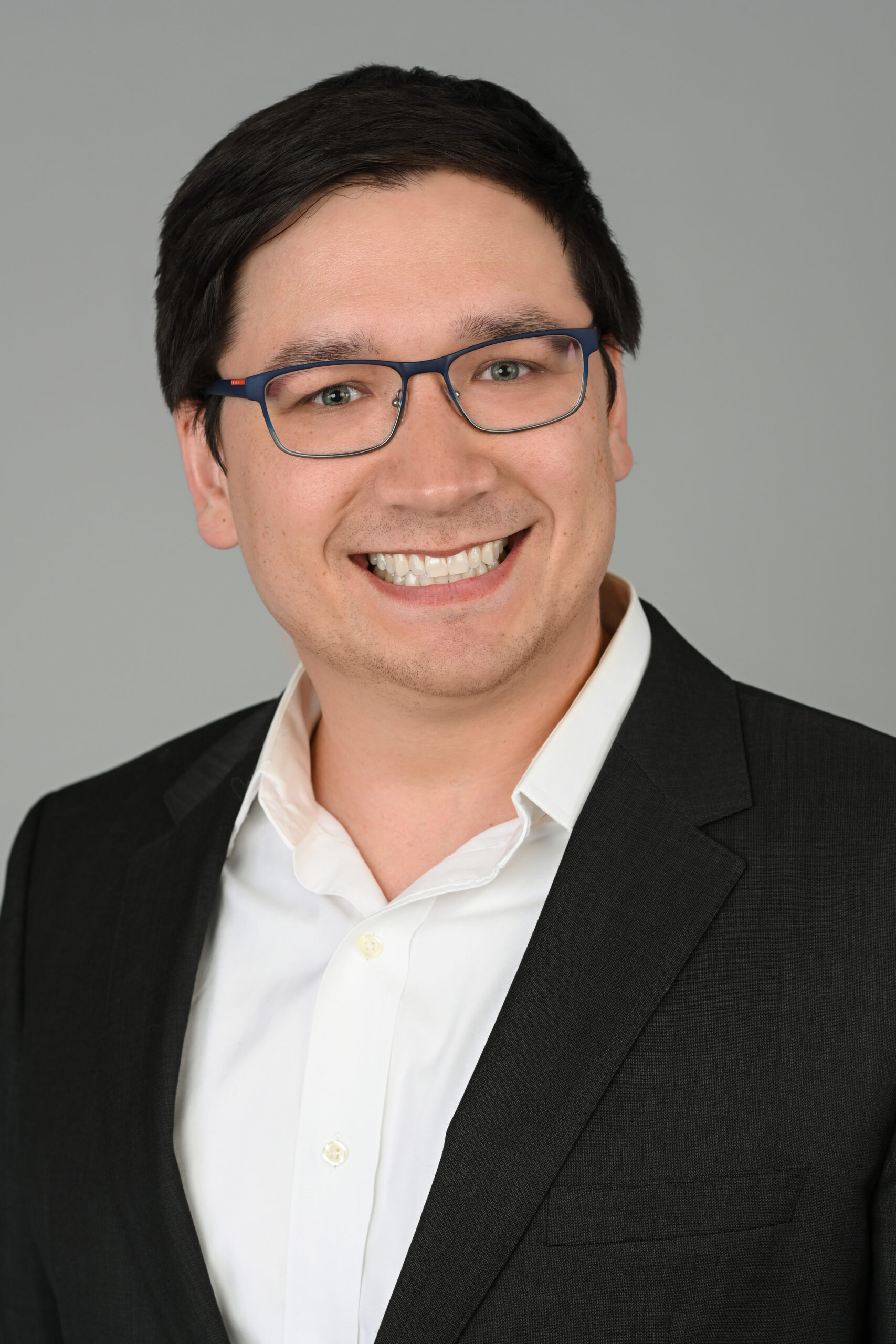
Peter Ott
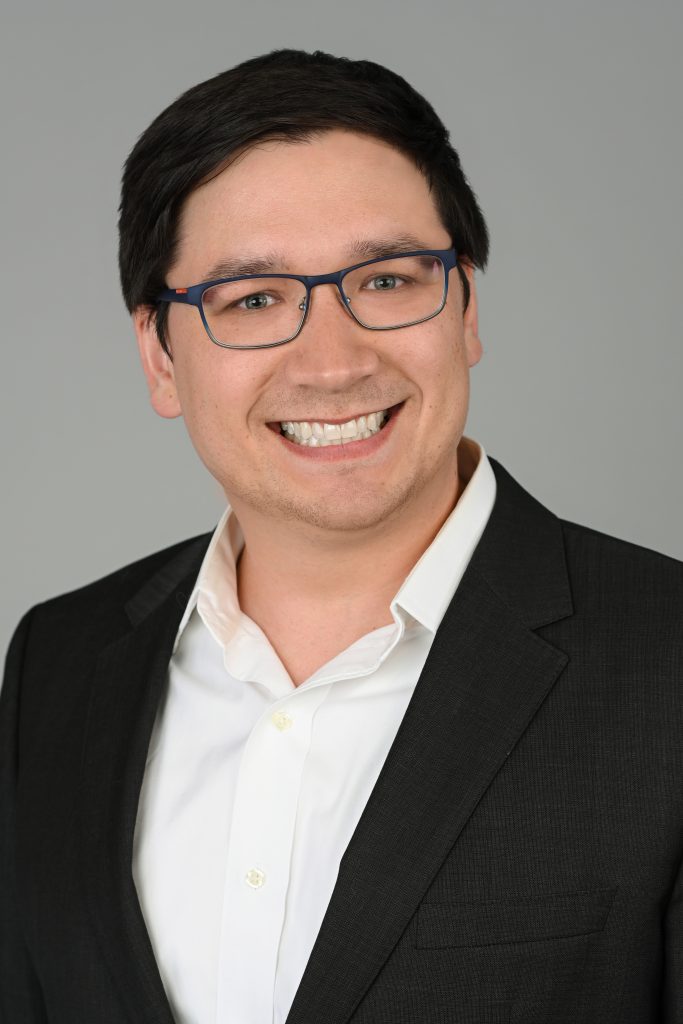
What is your practice area and/or area of expertise?
For whatever reason, my actuarial career has always been focused on property-related business. I started in admitted lines pricing small business and farm owners policies. I’ve also gotten to dabble in catastrophe modeling and treaty reinsurance underwriting. At the moment, I’m focusing on property treaty reinsurance across the globe.
What led you to become an actuary? And what attracted you to the profession?
Like many in the profession, I did not originally plan to be an actuary. I was originally a high school math teacher. I missed working on interesting math problems and I had some college friends who had become actuaries. What has kept me in the profession are the interesting problems I get to work on. I enjoy tackling problems where the data is scarce, and you need to be a bit clever or rely on judgment.
Describe a time when your professionalism training has helped you in your career.
Fortunately, I have not had to face any particularly tricky professionalism-related challenges. However, I’ve probably spent more time than most reading ASOP [Actuarial Standard of Practice] No. 30 [Treatment of Profit and Contingency Provisions and the Cost of Capital in Property/Casualty Insurance Ratemaking]. Profit margins are a tricky concept when you peel back the onion and really question what the margin is supposed to be encompassing.
What advice do you wish you were given when you were at the beginning of your career?
I had some really great actuaries help guide my education and career, but one thing I would have liked to have been advised on is how to take a step back from the algorithms of the actuarial techniques and understand the big picture of what they are trying to accomplish. It’s easy to get stuck in the rhythm of an algorithm you’ve memorized for the exam, but truly understanding the subtle assumptions and pitfalls is extremely important.
What’s one of the biggest lessons you’ve learned in your career?
This goes back to one of my previous responses, but it’s crucial you can be self-critical and question your assumptions. If the actuarial methods tell you one thing but the raw data is saying something else, you must be critical of yourself and understand where your assumptions went wrong. You also need to know when to seek out others for their expertise; the actuarial literature will only take you so far.
What do you value most about your academy membership
For me, it’s been about the impact I’ve been able to have on providing quality information to policymakers. There is a tremendous amount of knowledge and expertise in the actuarial community, and it’s been rewarding to work with others outside of my own practice to help others make informed decisions.
Would you like to share anything else with aspiring or new actuaries, or those interested in volunteering for the academy?
It’s important to stay curious and to keep learning from other disciplines. From my volunteer work, I’ve learned so much more about climate change and climate-related risks-and that’s made me a better actuary. Humans have been trying to manage risk and grapple with uncertainty since the dawn of time; look in other areas to see how risk can be viewed from a different angle.
Share a little about yourself. what are some of your hobbies or other personal interests?
I’ve dabbled in a lot of things over the years. I’ve taken lessons on book binding, clothing pattern making, and I’m always looking for a new recipe to try. I used to stress bake while studying for my exams so you can ask my old coworkers about my baked goods! My longest-running hobby, though, is playing the traditional Korean instrument, the gayageum. My grandmother is from Korea and learning to play this instrument over the past nine years has been a way for me to connect with my heritage.
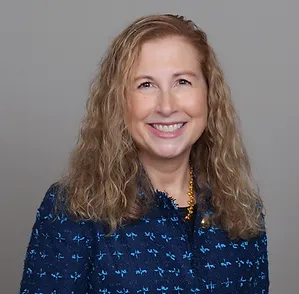
Kirsten Pedersen

What is your practice area and/or area of expertise?
One of the things I have always enjoyed about being an actuary was that I can work in a variety of different areas. My favorite focus, and where I have most of my experience, is product development, including underwriting and compliance for life insurance. A few years ago, after seeing all the updates in modeling and data, I took some classes and added data science to the mix.
What led you to become an actuary? And what attracted you to the profession?
During my first few years at college, I thought I wanted to be a biochemical engineer. However, as my studies progressed, I realized that was not the path for me. My father, who worked in marketing for an insurance company, suggested talking to a marketing actuary. I loved the picture that his coworker painted around being an actuary. It combined business acumen with my favorite subject, math. I was hooked!
Describe a professionalism-related challenge that you have faced in your career. how did you handle it?
As technology and products changed, discussions would often emerge about how to proceed with illustration compliance testing, setting pricing assumptions, and modeling. There was also a time where we needed to define who should be responsible for signing off on something since it was for a new type of product. I have found that referring to the ASOPs [actuarial standards of practice] and life practice notes are great resources for helping make these decisions.
What advice do you wish you were given when you were at the beginning of your career?
I was fortunate that I had a few wonderful mentors at the beginning of my career. They gave me advice on being an actuary but also helped me to understand the business and marketplace. One of my first mentors said I should always look at the whole picture, including what the market and competitors are doing when making decisions. That advice has stayed with me throughout my career. While I was given excellent advice, I wish I had understood all the resources available to actuaries (like those at the Academy) when I had just started working.
What is one of the biggest lessons you’ve learned in your career?
Communication is key! Communication should be clear and consistent. Using the right language helps others understand and hear what we say. If people understand what we say, we can all do a better job and better decisions are made. Early on I learned that my team could not operate in a bubble. I discovered that it was important to let others know what we were doing and see if there were any implications for other areas. This also means looking at the big picture (another great lesson).
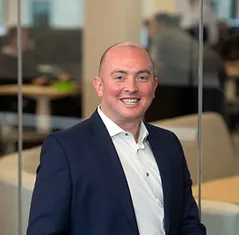
Kyle Stolarz

What is your practice area and/or area of expertise?
Financial reporting is at the core of what I do as an actuary. Most recently, I have been focused on accounting changes with the International Accounting Standards Board’s issuance of IFRS 17 and the Financial Accounting Standards Board’s issuance of Targeted Improvements to the Accounting for Long-Duration Contracts. I’ve been working with companies on the implementation of the IFRS 17 standard, including interpretation of the standard, developing accounting policies and methodology, business and data requirements, systems implementation, testing, dry runs, parallel runs, and go-live activities. Financial reporting still forms the foundation of what I do, but it’s expanded into more of the transformation and modernization world these last few years.
What led you to become an actuary? And what attracted you to the profession?
I like to say that I lucked into finding an actuarial career. I attended Drake University but did not initially enroll because I wanted to become an actuary. I came in as a generic finance major and wasn’t sure exactly what I would do with that. During my second semester, I was introduced to and learned more about the actuarial profession, and it seemed like a good fit for me. I started focusing on the actuarial curriculum my sophomore year and passed my first actuarial exam that same year.
A better question is: Why did I stick with the profession and finish my exams? I was initially attracted to the job security of and the outlook for the profession as actuary always ranked at or near the top of those professional lists. I also wasn’t turned off by the exam process. The exams were a challenge, and that’s something I’ve learned that I appreciate. I want to work for something and be pushed beyond what I thought my limits were. As I started working and learning about the insurance and annuity marketplace I was drawn in by how large and established so many insurers were. There appeared to be opportunities going forward to reshape the industry because of internal forces, as well as external forces coming down the pipeline. I seemed to be joining at a good time to experience a lot of change, which excited me (and still does).
What advice do you wish you were given when you were at the beginning of your career?
It’s OK to be wrong. Everything we do in school is centered around getting the right answer. Especially in math. I don’t think there’s enough emphasis placed on the fact that we don’t know everything and what is important is learning and expanding our knowledge. I found this especially true early on in my career. I wanted so bad to be right, to know everything. That held me back from contributing during meetings and gaining experience early on. I didn’t feel comfortable speaking up if I wasn’t sure that what I would say was the correct thing. This was ingrained in me from such a young age, and I didn’t want to look vulnerable by being wrong.
I’ve had many great managers throughout my career. One in particular worked with me on accepting and moving past this idea that you always have to be right. I’m still working on this, but I am a lot more comfortable contributing ideas and participating in conversations when I am outside my comfort zone. Rather than focus on being right, I keep an open mind and focus on using these opportunities to learn something new.
Tell us about a time where your actuarial experience influenced an important decision in your workplace.
As actuaries we’re often positioned as technical advisers or number crunchers only. We know so much about insurance-including the products, data, processes, etc.-that we can contribute and influence outside the actuarial area. In a previous role I had the chance to work closely with company representatives who interacted directly with the customers regarding policyholder illustrations and Internal Revenue Code Section 7702 tax compliance. I was able to better educate colleagues and improve processes by leveraging the detailed product knowledge I had gained working in the actuarial group. That experience has influenced how I approach other opportunities, as I now know that actuaries do not need to be limited to traditional actuarial roles or departments within companies.
What is one of the biggest lessons you’ve learned in your career?
Technical skills are not everything, and are greatly diminished if you cannot communicate or present your message in a way that other people can understand. It’s important to focus an equal amount of time on developing your soft skills around communication, leadership, people management, etc.
What do you value most about your academy membership?
Access to other professionals who have a shared interest in influencing public policy related to the insurance industry and the actuarial profession.
Would you like to share anything else with aspiring or new actuaries, or those interested in volunteering for the academy?
Volunteering with the Academy early in your career is a great way to gain exposure to new topics and to see the bigger picture beyond your regular area of practice. You’ll be able to expand your network and gain new perspectives as you work with actuaries from other companies and practices.
Share a little about yourself. what are some of your hobbies or other personal interests?
I enjoy traveling with my wife, learning about and experiencing new cultures, and trying new foods. I’ve yet to come across a food I won’t try at least once. When I’m not traveling, I enjoy cooking at home, gardening, reading historical nonfiction and science fiction books, and exploring on my bicycle.
The views reflected in this article are the views of the author and do not necessarily reflect the views of Ernst & Young LLP or other members of the global EY organization.
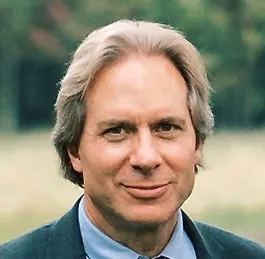
Jerry Mingione
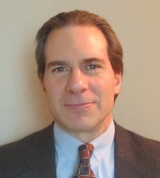
What is your practice area and/or area of expertise?
My work has evolved so as to just about totally focus on capital markets and financial activities related to that. At one point I was primarily focused on pensions-because, as we all know, that’s where they keep the money-but these days my practice has become a bit more broadly focused.
Over the years, I have looked for more roles where I could play to my specific strengths and interests while maximizing the impact of my contributions. I’ve essentially tried to craft a job that would to a great extent circumvent those kinds of activities that “make it hard to get up in the morning.” For better or worse, for me that was the regulatory aspect of the pension arena. I just found that area really tough to deal with-and I suspect that a lot of pension sponsors agree on that. (So, thank goodness there are some other folks who feel differently and really like that stuff!)
I now have roles with a smaller consulting firm, supporting that group in capital market-related projects, an advisory role with the city of Detroit-which has had years of financial struggles due to problematic pension plan financing-and, last but not least, a role on the Academy’s Social Security Committee focusing on addressing that system’s financial imbalance. To the extent that I was going to focus on public policy, as I looked around at the array of issues out there, it occurred to me that Social Security was an area where there would need to be lots of focus for a good part of the coming decade, and I thought it would be worth the effort to play a part in that. I also support the Academy’s Pension Committee in some of the areas I focus on, and I sit on a couple of boards, including that of The Actuarial Foundation. I also present a lot at conferences, generally about capital market issues, return expectations, and Social Security finance.
What led you to become an actuary? And what attracted you to the profession?
Even as a young student I was pretty analytical about deciding what the best path would be. The world can be a pretty tough place if you end up in a profession that doesn’t align with your interests and skills. When you have both an interest and an aptitude for what you are doing, work is a much easier lift-and can be a pretty satisfying part of your life. After all, for most of us, for better or worse we live what we do. (We kind of live above the store, if you will.) I found that optimized combination in the actuarial profession; nothing else seemed to fit nearly as well.
Describe a challenge that you have faced in your career. how did you handle it?
Like most of us, I’ve had setbacks where the life plan didn’t quite work out the way I expected it to. That could be losing a major client, or a job, or a change in a business role. But, as many others have noted before me, each setback is of course an opportunity in disguise-a chance to set a new path that best reflects the person that we have evolved to become.
So each time we are forced to make a new life decision, I really believe we have a chance to improve on the ones we made before. In the end, the dynamic can very often turn into that “lemons/lemonade” thing-which I believe is not just a saying to brighten your spirits, but the reality related to change handled well. You just need to know yourself and put the work in to find new roles that maximize your opportunities to contribute.
What advice do you wish you were given when you were at the beginning of your career?
I was given really great opportunities at the beginning of my career. My first consulting firm job was everything you could wish for in a starting position. And I felt like I was dealing with a meritocracy, or as close to that as it gets in the business world-in other words, do good work (and lots of it) that gets recognized. The only downside to it was that, back then, success in that consulting firm environment was defined only one way: do great work, get promoted, then manage people who will hopefully also do great work while you focus on managing them. But that formula doesn’t always work out in a satisfying way for everyone. For some of us, in order to be happy, we really need to evolve into doing even better work, rather than focusing so much on leveraging our work through others.
The bottom line is that upper-level management roles didn’t seem to play well to my skills or interests, and I came to feel that I was never going to thrive doing that. But, as I noted earlier, I found that it’s a big enough world that if you look hard enough, you’ll always find promising opportunities that do indeed fit what you want to do, and how you can best contribute.
What do you value most about your academy membership?
The opportunity to interface with others having expertise on policy issues and the chance to actually have an influence on policymaking in key areas of interest. My Academy roles have enabled me to stay on the cutting edge of things in areas I’m interested in, and working with the various committees on policy issues does indeed enable us to have some impact on the national debate. It’s as simple as this-when Congress or a regulatory agency decides to act, they need access to resources that they can trust, and the Academy strives to be viewed as exactly that.
Would you like to share anything else with aspiring or new actuaries, or those interested in volunteering for the academy?
There will be a point in your career where you’ve pretty much exploited all the resources that your own firm has to offer and would truly benefit from a broader exposure to resources and expertise. You now have the experience and perspective to participate in intensive dialogues on public policy issues. When you get to that point, I suggest taking a look at the array of opportunities the Academy offers and finding one that fits. And once you do that, get actively involved enough to really make an impact!
Share a little about yourself. what are some of your hobbies or other personal interests?
Given the exam process we go through, and our extreme work focus, I think we actuaries may know a little too much about deferred gratification. Still, we sometimes try to pretend that we’re not boring, but I think that’s mostly a sham-we are definitely pretty boring as the regular world would define things. That’s why there’s so many actuary jokes, and why so many of them ring true.
That said, I do at least some non-work stuff. I swim a lot, travel, bike and hike some, and just bought a house on a lake that I’ve been working on making into a livable space. I also have some bad habits like chocolate, and sometimes blackjack. But in the latter case I really only gamble an amount equal to my chocolate budget-which makes it extra important to win, right?
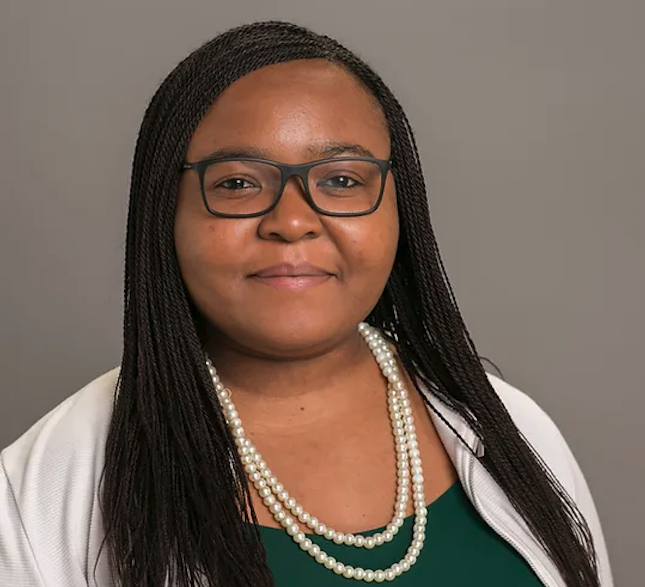
Maambo Mujala
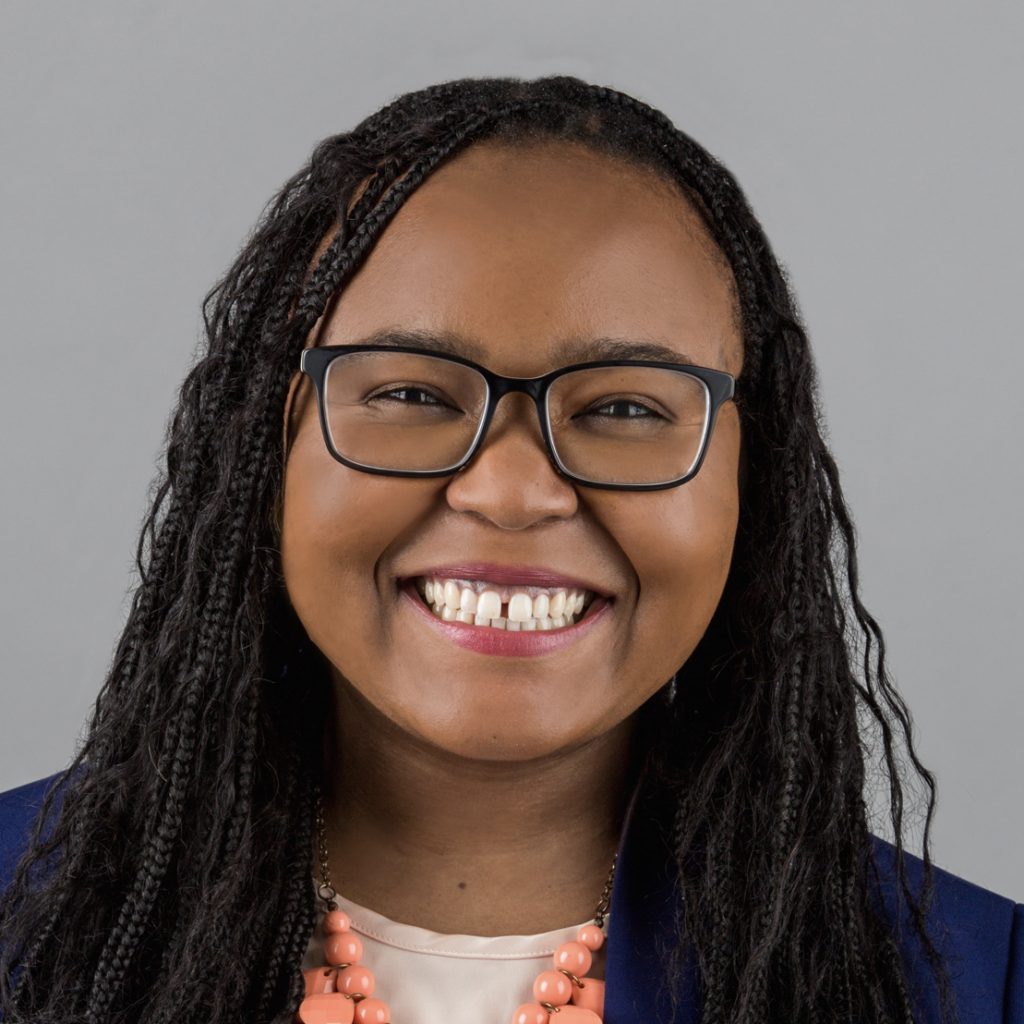
What led you to become an actuary? And what attracted you to the profession?
The first time I heard about an actuary was when I was obtaining my IT degree. The teacher’s assistant mentioned that the lessons we were being taught in that particular class were also leveraged by actuaries. Since I liked the content of that class, I was intrigued and looked up the profession. I was attracted to the profession because I could apply my love of math in a business setting and solve real-world problems.
What advice do you wish you were given when you were at the beginning of your career?
Challenge yourself, be curious, and ask a lot of questions. This can help you build your “actuarial intuition” that will allow you to tackle bigger problems as you advance in your career. Do not lose sight of the bigger picture when working on assignments.
What is one of the biggest lessons you’ve learned in your career?
Don’t be afraid to take on an opportunity that scares you. Most of the time, those are the challenges that allow you to grow professionally. I’ve also learned that relationships matter a lot. Not only have I benefited from actuaries that I worked with, I have also learned about the business from several non-actuaries that I have worked with. Those interactions subsequently made me a better actuary.
What do you value most about your academy membership?
The chance to work with actuaries with varying backgrounds and experiences. It is always a great learning experience for me when I interact with other actuaries as we solve problems. Giving back to the profession and public is also rewarding.
Would you like to share anything else with aspiring or new actuaries, or those interested in volunteering for the academy?
Get out of your comfort zone and volunteer for the Academy! There are many opportunities to meet other actuaries, expand your knowledge and challenge yourself to build new skills. The people you meet at the Academy can be great sounding boards when you stumble upon a problem as well.
Share a little about yourself. what are some of your hobbies or other personal interests?
I am originally from Zambia and have lived in a few countries. I love to travel and learn about new places and cultures. Volunteering is a passion of mine and always think it is a privilege to give back my time and expertise where I can. I currently serve on the board of the International Association of Black Actuaries (IABA), which is another way I give back to the profession.
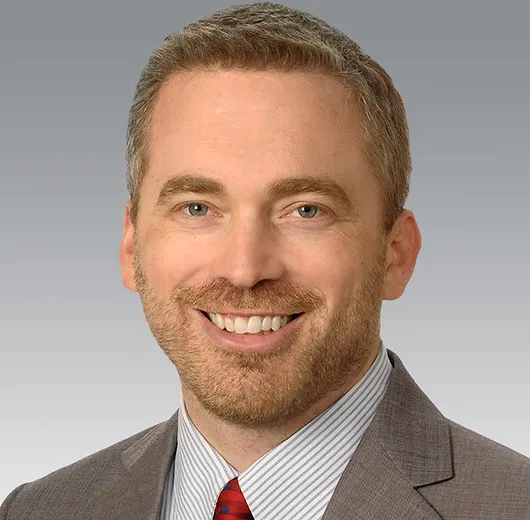
Todd Tauzer

What led you to become an actuary? and what attracted you to the profession?
I have always loved doing math, especially logic problems. This led me to double-major in math and economics in college-but even then, I wasn’t sure what to do next. Toward the end of college, I had the opportunity to speak with an old family friend who had been an actuary for many years. He essentially advised me not to become an actuary-because the exams are so difficult and create a barrier to entry that most people cannot handle! That challenge sparked my interest, and the rest is history.
What advice do you wish you were given when you were at the beginning of your career?
Do everything with excellence, but don’t get too wrapped up only in what you’re currently doing (if your work doesn’t afford you the time and opportunity to be ambitious, it may not be worth staying). Always consider where you’d like to be heading and look for opportunities in that direction. If they aren’t obvious, you may need to be creative in building them yourself. Also, I believe the relationships you develop along the way are at least as important as the actual work you do.
What is one of the biggest lessons you’ve learned in your career?
I may sound like a broken record here, but it’s worth emphasizing: Life is short, aging is quick, and time never stops. So, beware of passivity and defaults (inertia) in life’s choices and actions, and consider your current direction and path carefully.
What do you value most about your academy membership?
I certainly value the stability and credibility that Academy membership provides, including adherence to the code of professional conduct and the ASOPs. But what I value most is the lifelong relationships built through volunteering, whether through Academy committees or other opportunities.
Would you like to share anything else with aspiring or new actuaries, or those interested in volunteering for the academy?
Volunteering opens up an entirely new dimension for your career-a dimension in which you get to discuss best practices, help mold current and emerging actuarial content and resources, and even work toward improvements in national policymaking. But most of all, you get to work side-by-side with some of the brightest and most engaged actuaries in the world, developing camaraderie and friendships that will stay with you for the rest of your career.
Share a little about yourself. what are some of your hobbies or other personal interests?
Beyond the bounds of work, I am a family man and a churchman. I have an 11-, 8-, and 6-year-old (all crazy and wonderful) and an amazing wife. Free time is centered around them. We’ve been reading through the Harry Potter books together (now on the Half-Blood Prince) and enjoy outdoor activities and strategy board games. I also have the privilege of regularly playing piano for my church, among other things there.
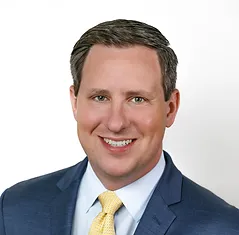
Evan Palumbo
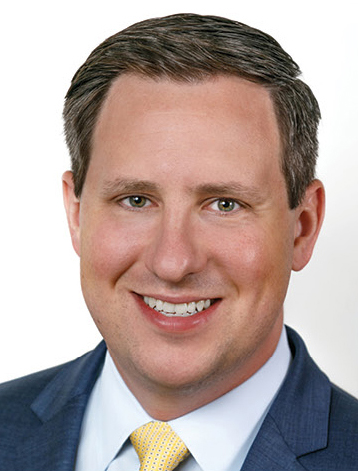
What led you to become an actuary? and what attracted you to the profession?
As a high school and college student, I found myself interested in learning about how math could be used in the real world. Thanks to the guidance of teachers and professors, I learned about the actuarial profession. A career as an actuary was very attractive to me because it seemed like a great fit for what I enjoyed doing with my analytical skill set. Additionally, it has always been a highly ranked profession amongst professional surveys, with a good work-life balance.
What advice do you wish you were given when you were at the beginning of your career?
There is no such thing as a stupid question. Insurance and Reinsurance can sometimes feel like they have their own language to them. At the beginning of your career, it is easy to feel like if you aren’t yet fluent in the language, you will say something wrong and therefore should not ask a question. You should never be afraid to ask questions.
What is one of the biggest lessons you’ve learned in your career?
Learning how to create a schedule and manage my time. The hardest part about starting a career as an actuary is figuring out how to balance studying for exams, and learning a new job, all while still trying to have a life outside of work and be with your family. The ability to manage your time and schedule is just as important after all the exams. Your family and friends are your support system, and it is essential to find balance and compartmentalize your time at work from your time with your family. Make sure you are present, both physically and mentally, for your family so you are able to support them as much as they support you.
What do you value most about your academy membership?
The Code of Conduct is the gold standard when it comes to professionalism and ethics. Being a member of the Academy means upholding those standards each and every day. My membership in the Academy has instilled in me this mentality and has had a tremendous impact on how I operate in work and in life.
Share a little about yourself. what are some of your hobbies or other personal interests?
Outside of work, I like to run, bike, and swim for fun and to stay in shape. I have also enjoyed playing the drums since I was young. I have a somewhat musical family, in fact, with my brothers-in-law and my father-in-law, we started a small cover band-called “The Grateful Dads”! So far, though, we’ve so far only performed in a living room in front of other family members.
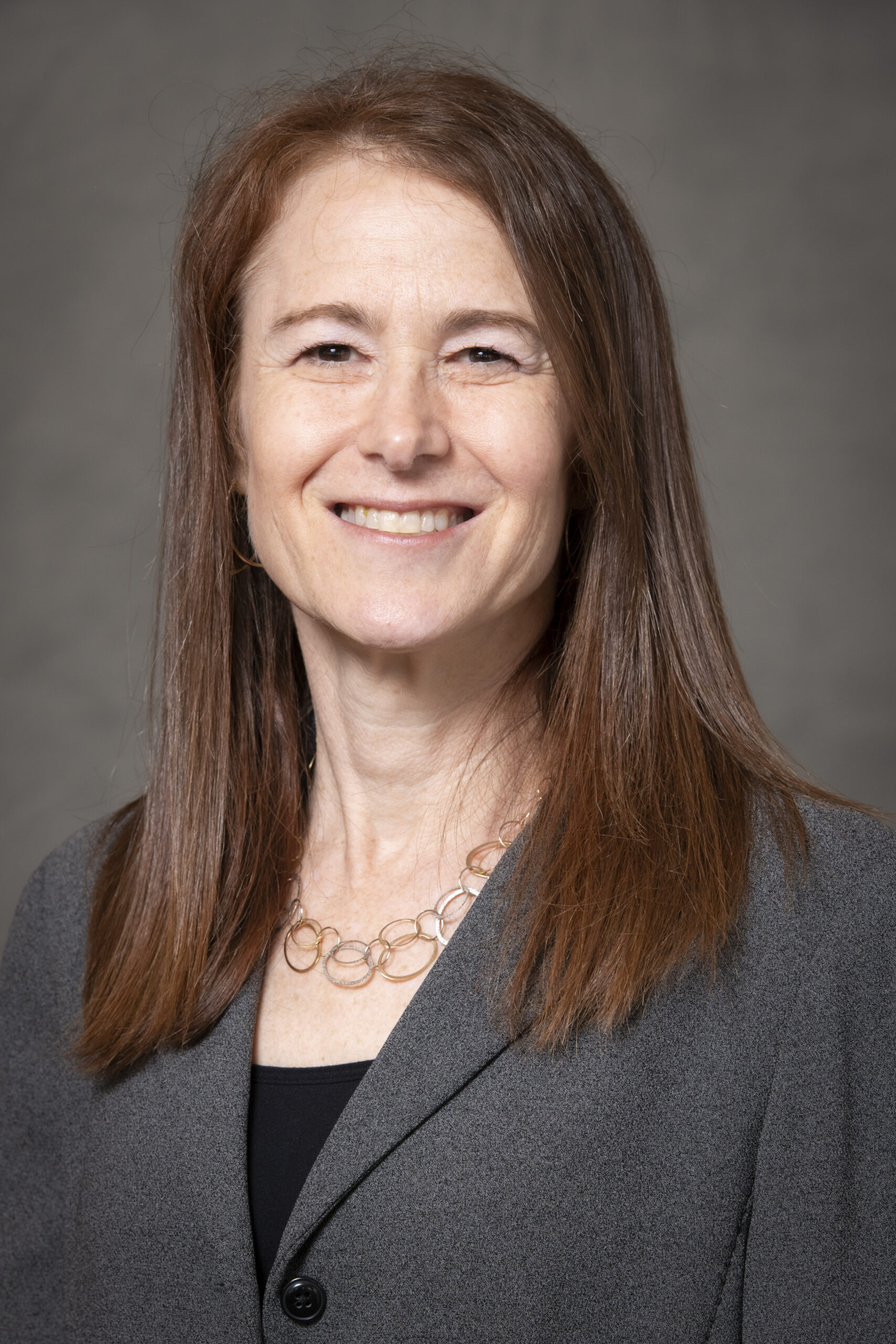
Margaret Berger

What led you to become an actuary? and what attracted you to the profession?
Many people told me that I should be an actuary, starting in high school going through college-including my future husband, who had a summer internship at an insurance company. I was attracted to the profession because it had been so highly ranked in job-satisfaction surveys for many years, because it seemed like a good fit for my skill set, and because the exams provided a structured way to advance.
What led you to become an actuary? And what attracted you to the profession?
Many people told me that I should be an actuary, starting in high school going through college-including my future husband, who had a summer internship at an insurance company. I was attracted to the profession because it had been so highly ranked in job-satisfaction surveys for many years, because it seemed like a good fit for my skill set, and because the exams provided a structured way to advance.
What advice do you wish you were given when you were at the beginning of your career?
Look earlier and harder for opportunities to use all of your skills, not just your mathematical ability.
What is one of the biggest lessons you’ve learned in your career?
I’ve learned so many. One of the most important was that the ability to pass actuarial exams-and the speed with which one does so-does not correlate well with an individual’s ability to be a fantastic actuary. Also, trust your instincts, but always double-check your results. And PEER REVIEW, PEER REVIEW, PEER REVIEW.
What do you value most about your academy membership?
The ability to volunteer on Academy committees and now serve on the Academy Board has opened up so many doors for me. I have spent my whole career at my current employer, but I’ve met so many wonderful people and talented actuaries at other firms. I would never have expanded my horizons and accomplished what I have if my entire professional experience was restricted to working at my employer.
Would you like to share anything else with aspiring or new actuaries, or those interested in volunteering for the academy?
Volunteering for the Academy is an amazing way to give back to the profession while also enhancing your personal and professional life in innumerable, immeasurable ways. I wish more people took advantage of the opportunity.
Share a little about yourself. what are some of your hobbies or other personal interests?
I’m an avid runner who loves to bake! I’m also a huge fan of puzzles: jigsaw puzzles, crossword puzzles, number puzzles-but not spatial puzzles because I’m kind of spatially challenged. I am a little obsessed with grammar and I loathe business jargon with a passion.
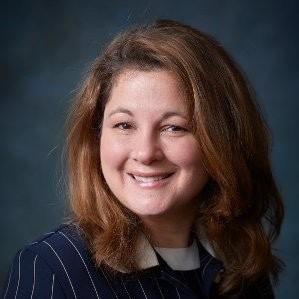
Diana Lynn Goodman

What led you to become an actuary? and what attracted you to the profession?
I considered being an engineer, but I chose to be an actuary for three reasons:
I love math, and being an actuary was a chance to use problem-solving techniques every day.
The actuarial field offered so much flexibility in schedule and discipline. My actuarial function has changed over the years. For nearly 25 years, I worked in the life insurance industry, working full-time and part-time while I raised a family. For the past seven years, I have worked in regulatory consulting.
It gave me greater control over my initial career path through passing exams and work experience. It required a large commitment to both work and study, which at times was very challenging.
Describe a professionalism-related challenge that you have faced in your career. how did you handle it?
I remember how difficult it was starting in the field, trying to obtain the foundational industry knowledge and skills that experienced actuaries have. At times, I did not know how I should approach assigned projects. In hindsight, I should have asked for more guidance. But I thought I was taking up too much of the credentialed actuaries’ time. Over time, I forced myself out of my comfort zone and asked for input. Through these experiences, I learned how important it is to take the time to share one’s experience and knowledge with new and aspiring actuaries.
What advice do you wish you were given when you were at the beginning of your career?
Do everything sooner! Pass exams sooner. Get an internship sooner or more internships, if possible. Volunteer sooner. Take on new challenges or new projects, which have not been tried before, sooner.
Tell us about a time where your actuarial expertise influenced an important decision in your workplace.
Over the years, I have been faced with day-to-day challenges to implement regulation in real-world situations. There are times when an actuary needs to make an informed decision without knowing exactly what to do. Sometimes the answers are not readily there. Developing a peer group in your workplace or via volunteering can help you become aware of potential risks and considerations you might not have thought of on your own. You can present a better formed and more holistic solution.
For example, when working in the life insurance industry, I was asked to implement variable annuity regulation changes (Actuarial Guideline XLIII, at the time). I worked with a team of actuaries. We had numerous discussions about how the regulation changes should be implemented. I used my prior experience working with annuities to suggest changes and justify my suggestions to others. Many of my suggestions were implemented. Now I use that experience as I review the work of others implementing Valuation Manual-21.
To bring it back to the Academy, I am an active volunteer with the Life Practice Council’s Variable Annuity Reserve and Capital Work Group. The work group created a practice note to assist actuaries working in the trenches.
What is one of the biggest lessons you’ve learned in your career?
Being an actuary offers a lifelong opportunity to make a difference. We perform complex financial analysis. We engage in the dialogue needed to protect the public, policyholders, investors, and employees. Also, our work protects the insurance industry, so it consistently delivers on its promise to pay policyholders. The work actuaries perform help to ensure the public maintains steadfast confidence in the insurance industry across all economic environments. Put simply, actuarial work is important to society.
What do you value most about your academy membership?
I value most the opportunity to be involved in economic and societal issues. We need to maintain a seat at the table in these types of discussions because actuaries offer distinct knowledge and perspectives.
Would you like to share anything else with aspiring or new actuaries, or those interested in volunteering for the academy?
When I started my career, I only knew actuaries at my company. I decided the best way to meet actuaries across all disciplines (health, pension, life/annuities, etc.) was to volunteer. I was nervous to reach out to established credentialed actuaries and ask if I could join in. I thought I needed to be an expert but learned quickly this is not the case. There are many ways to get involved in volunteering-and starting in your local community is a great option. Also, mentoring students at work or through the Actuarial Foundation meets a critical industry need, while expanding your professional network.
Academy work groups share expertise and interact with actuaries across the United States. I find it exciting to witness aspiring and new actuaries volunteering and sharing new ideas. With so many choices, you can explore your passions and find an actuarial volunteer opportunity that aligns with your values and skills.
Share a little about yourself. what are some of your hobbies or other personal interests?
When I am not working or volunteering, I enjoy spending time with friends and family, being active (cycling, walking, yoga), traveling to new places, meeting new people, and educating myself about financial topics, such as the economic markets and financial planning. I love the beach and can also be found watching the NFL (Go Philadelphia Eagles!) and participating in fantasy football!
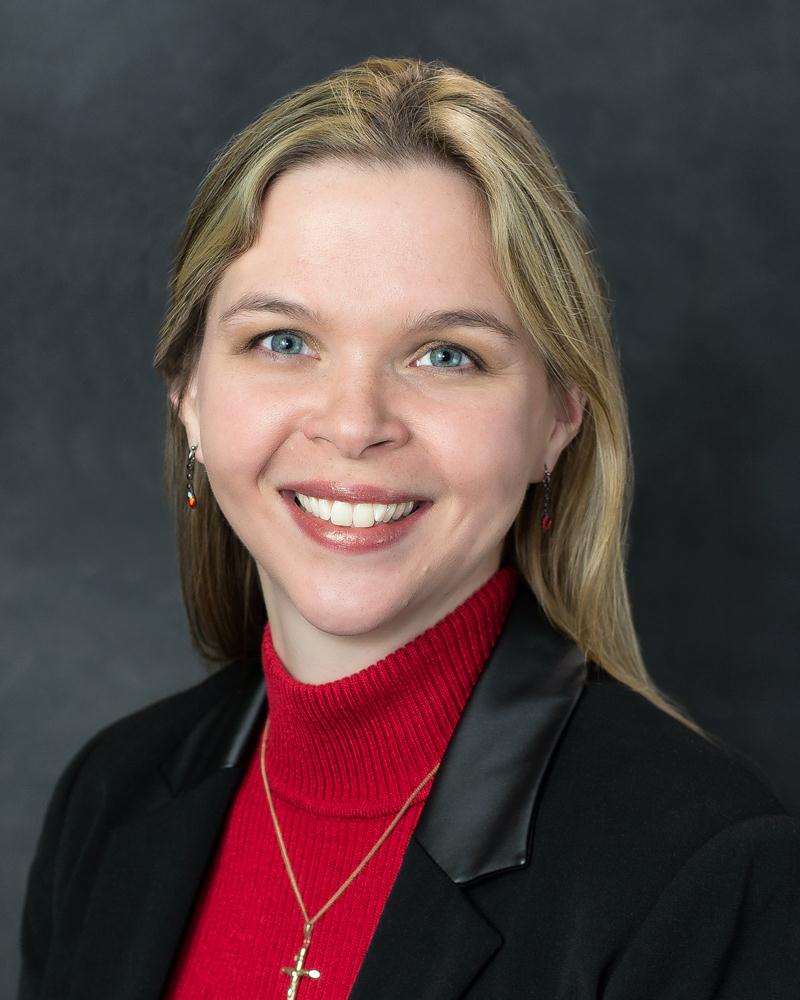
Donna Megregian

What led you to become an actuary? and what attracted you to the profession?
I liked math but did see myself as a teacher or engineer. My father, who was an auditor, said “Don’t go into accounting. You’d be better off as an actuary.” I looked into it my senior year of high school, and the appeal of using my math skills and potentially a good career path for a woman set me on the path.
Describe a professionalism-related challenge that you have faced in your career. how did you handle it?
I was called by a lawyer about some work that I did many years before. I certainly got nervous. I was afraid my work was being called into question. The lawyer sent me the information related to the work that I did. It had really been too long for me to remember the details of the project and I expressed that. I answered the questions honestly and as best I could. Nothing was being challenged, thankfully, and the matter was closed pretty quickly, but keeping honesty and integrity foremost in mind, I managed the situation.
What advice do you wish you were given when you were at the beginning of your career?
Start sooner. I find that I wish I had more time to do things, so try not to put things off.
Tell us about a time where your actuarial expertise influenced an important decision in your workplace.
Much of my background is in product development. I was able to convince a client that they had to change an assumption-although it negatively impacted financial projections, it was a more realistic assumption for the future.
What is one of the biggest lessons you’ve learned in your career?
Ask questions. Whether you don’t agree or don’t understand, asking questions will help everyone. Many people are afraid to ask questions especially early in their career but also later out of fear of not looking like they know something they think others think they should. Progress is stalled when pride or fear get in the way.
What do you value most about your academy membership?
The opportunity to discuss some very important issues to better the profession. I am a member of many groups within the Academy and all of the groups have great people focused on trying to advance the profession. I am grateful that membership allows me to do that.
Would you like to share anything else with aspiring or new actuaries, or those interested in volunteering for the academy?
My volunteering has greatly enhanced my career. Having a voice and sharing that voice is important. I definitely encourage people to volunteer-not only to better the profession, but to better themselves and meet other people.
Share a little about yourself. what are some of your hobbies or other personal interests?
I have been married for over 17 years. I have two incredible children that keep me very busy. I love playing and coaching volleyball. I recently became a soccer referee, putting all those years of playing, coaching, and watching to use. I enjoy traveling, especially cruises. My artistic side sometimes comes out through singing, painting, and helping kids with projects.

Seong-Min Eom

What led you to become an actuary? and what attracted you to the profession?
I never knew the word “actuary” until after I graduated from college. After graduating and getting married, I was looking for a job and deciding what to do. One day my husband told me that one of his friends, who had graduated from the same college with same major as me, was thinking about becoming an actuary, which led me to begin looking into the actuarial profession. I went to a local actuarial club and they were very helpful. After some further research, I found that the actuarial profession could be a good fit for me. I wanted to do something that would reflect my interest in business and mathematics, and was pretty good at passing exams. However, when I was an entry-level actuarial student, I was not sure this was the path I wanted to pursue, because I was also training to become a performance pianist! Finally, I had to make a choice and decided to become a full-time actuary. I am pleased with the choice I made and continue my passion of playing piano in my free time.
Describe a professionalism-related challenge that you have faced in your career. how did you handle it?
One of my staff members once sent me a recommendation report on an actuarial decision. The recommendation simply followed the practice that had been followed for years. But as I thought about signing onto the recommended approach, I found I didn’t feel comfortable with it, even though it followed the established practice. So, based on my actuarial experience and judgment, I said, “Let’s not do it that way; let’s look at it again and redo it.” I still don’t regret that decision.
What advice do you wish you were given when you were at the beginning of your career?
I held a technical job early in my career in a valuation department developing tables with policy data for reserve calculation or supporting financial reporting preparation assisting my supervisor. If someone had explained the bigger picture and offered a broader understanding of my job-how the tables I created or values I calculated were used, what was the final production from them, who else was using the data I prepared and how it was used-that would have helped me understand and appreciate the overall processes and operations as well as any inter-department relations.
Tell us about a time where your actuarial expertise influenced an important decision in your workplace.
This relates to health rate development. The federal government proposed that each state could develop their own rate development factors if the state thinks their experience differed from the national average. My director was interested in this newly proposed approach and asked me to look into it. I found that in the short term, the approach may have a direct impact on rates and certain related values, but in the longer term the comprehensive gross impact would not be as material. So, I advised my director that based on my analysis it was not worth investing our time and effort in developing our own rate development factors. He was impressed with my broad point of view and agreed.
What is one of the biggest lessons you’ve learned in your career?
Don’t be afraid of challenges. If something new comes up, you might tend to stick to where you are and where you are comfortable. Don’t stay where you are. You have the capacity to learn and try. You can gain more by exposing yourself to broader areas or on emerging issues-today, for example, with such issues as climate risk and big data or, earlier in my career, ERM [enterprise risk management]. I am pretty happy to jump into new areas.
Would you like to share anything else with aspiring or new actuaries, or those interested in volunteering for the academy?
I highly recommend volunteering with the Academy! It’s another example of not being afraid of a new challenge. Get involved in areas you are interested in-even if it is outside of your comfort zone-it allows you opportunities to learn, expand your network, and enlarge your knowledge, while also enlightening yourself.
Share a little about yourself. what are some of your hobbies or other personal interests?
I still love to play the piano, and once I retire hope to return to playing drums, too! I have been working on my skating skills, and during the pandemic period I developed a new knitting hobby. In fact, I’m wearing a sweater I knitted!
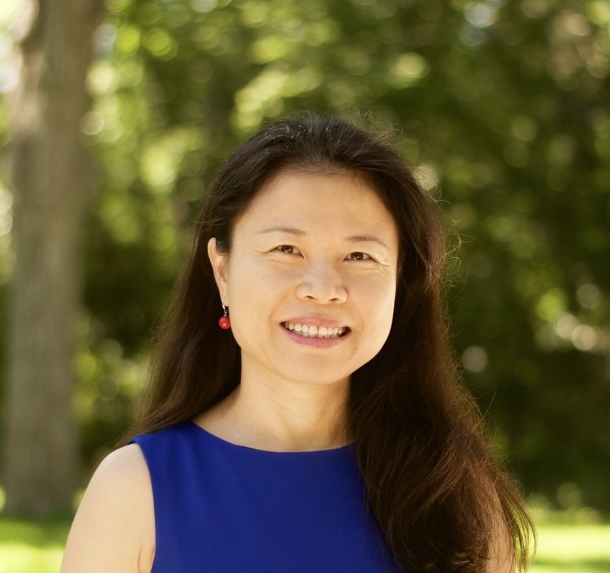
Zerong Yu

What led you to become an actuary? and what attracted you to the profession?
I took a nontraditional path to the actuarial field. I went to a graduate program in hospitality management, but I had a solid mathematic foundation from my undergraduate study. After a few years in a hotel management job, I realized that I did not want to be in that profession for the long term. Also, I didn’t want to go back to school. I’ve always liked math and its real-world applications. After a friend suggested actuarial work, I did quite a bit of research and decided it fits my personality and strengths.
I started to study on my own while working as a hotel manager. After passing two exams on my first try, I applied for a few insurance companies. The health track was attractive to me because I felt health care was a very dynamic area and the potential of making a positive impact in health care resonated with me. The chief actuary of the health insurance company who hired me said that my hospitality management background actually made me a stronger candidate because she needed someone who was not only a number-cruncher but also good with people. Being someone who can relate well to people turns out to be great for my career.
What advice do you wish you were given when you were at the beginning of your career?
I was lucky to start my first actuarial job in a small department where I needed to handle different aspects of the actuarial practice over a few short years-pricing, reserves, forecasting, Medicare bid, provider contracting support, medical program evaluation, etc. Although stressful at times (considering I was also trying to pass exams as fast as I could), the exposure to various areas gave me the opportunity to connect the dots on how business was run and understand the implication of business decisions on various parts of the health plan operation. Some actuarial students want to stay comfortably at one position while taking challenging exams, but that approach can really limit the breadth of their actuarial experience in their early career. Once actuaries get credentialed, it is much harder to rotate to a new area and learn from scratch while potentially leading junior staff. I’ve always encouraged actuarial students to get as much exposure as possible as early as possible when they are taking exams so they are well rounded by the time they are credentialed. Exposure to more areas tends to help actuaries figure out which area(s) they enjoy the most.
Tell us about a time where your actuarial expertise influenced an important decision in your workplace.
For the health care industry, market conditions and health care needs change constantly. Effort doesn’t always result in an impact of a similar magnitude. Quite a few times, my team’s analytical results and financial projection steered business resources to the areas that resulted in the most significant impact. In the data-rich but insight-poor environment many companies are in, an analytical approach coupled with deep understanding of actuarial principles brings rigor and discipline to business decision-making.
What is one of the biggest lessons you’ve learned in your career?
When it comes to career moves, I learned that the safe option in the short term isn’t always the safe option for the long term. Not taking a risk could be the biggest risk of all. The riskiest move I took in my career is changing from a health plan to a hospital system. I moved from Humana, where I was one of hundreds of actuaries in the company, to a hospital system where I was the only in-house actuary for the company. On top of being in a completely new business environment, I also needed to define my own role because the senior leaders had never worked with an actuary before. Looking back, it was probably the best decision I made in my whole career. That experience taught me how to influence business decisions through my audience’s perspective. It also helped me understand the business model on the provider side. It was scary when I made the decision because it was way off the beaten path for a typical health actuary. However, it turned out that experience made me an attractive candidate for a senior position on the health plan side later on.
What do you value most about your academy membership?
We all know the actuarial profession is a small one, which makes it very important to have a unified voice to advocate for the profession. The public policy field is abundant with the influence of special interests, but it’s there that I believe the Academy represents the voice of reason. We strive to represent an unbiased and nonpartisan view that the public can rely on. The Academy is the institution that aggregates individual efforts to advance the profession and represent the public.
Would you like to share anything else with aspiring or new actuaries, or those interested in volunteering for the academy?
I always try to take a long-term perspective at my job. There is a famous Chinese parable with various names for the same story. One of the titles is: “Good or bad, hard to say.” The wisdom of the story is that there is always a silver lining in a bad situation and vice versa. Career ups and downs are inevitable. Taking the long view is likely to make some short-term challenges less stressful-and it can also enable us to judge the situation with a clear mind. As a first-generation immigrant, coming here with almost no friends and family more that 20 years ago, I feel my efforts have been greatly rewarded by the actuarial profession. Numerous times I’ve been on the receiving end of generosity from people who took a leap of faith in me and gave me an opportunity. To me, volunteering isn’t only to pay back to the community, but in and of itself volunteering is also a great learning experience through interaction with fellow actuaries from other backgrounds. Mentoring the next generation of actuaries is especially rewarding when I can pass on the lessons I learned throughout my career and help young actuaries with their own career path.
Share a little about yourself. what are some of your hobbies or other personal interests?
I enjoy a variety of outdoor sports. I took up skiing a few years ago and it’s been a family tradition every winter since. The adrenaline rush when facing a challenging slope, the exhilaration of a crisp, clear winter day, the view of the majestic mountains, and the joy of conquering my own fear are what keep me coming back to the mountains.

Norman Niami

What led you to become an actuary? and what attracted you to the profession?
I always enjoyed math and working with numbers. My insurance career started at the California Department of Insurance, where I came across a couple of actuaries at companies that we were examining. Given my degree in statistics, it seemed like a fun and natural path. I took a couple of exams and thought, “This is not too hard”-and then the reality of upper-level exams hit.
Describe a professionalism-related challenge that you have faced in your career. how did you handle it?
When consulting for a regulator, I came across an actuary who was not abiding by basic actuarial and business professional standards in carrying out actuarial projects. A situation such as this is not easy, and it can be intense, as actuaries are trusted professionals. Once we had a clear picture of the inappropriate conduct, we had quite a discussion about the best way to proceed. We concluded that the actuarial work and reports from the individual should not be accepted in that specific market.
What advice do you wish you were given when you were at the beginning of your career?
Try to learn as much as you can from experienced and skilled actuaries that you are lucky to encounter and work with. Early on in my actuarial career, I was fortunate to come across two very seasoned and knowledgeable actuaries. They were also very nice individuals. Those relationships and what I learned from them were fundamental in providing many basics of how to approach issues, projects, and challenges. As this happened to me somewhat naturally and by luck, if I were even more conscious of it back then, perhaps I could have absorbed and learned even more from them, and also appreciated them even more than I did at the time.
Tell us about a time where your actuarial expertise influenced an important decision in your workplace.
It has happened on many occasions. While there may be gray areas in both the general business sense and in the actuarial area where different paths and decisions may be available and present, there are also basic principles that one needs to consider which lead to better and more effective decisions, outcomes, and solutions.
What is one of the biggest lessons you’ve learned in your career?
Be confident in areas that you are an expert, knowledgeable, and experienced, and be honest, upfront, and humble in areas that you are not.
Would you like to share anything else with aspiring or new actuaries, or those interested in volunteering for the academy?
Volunteering is a great way to learn more and work with amazing, skilled, and knowledgeable professionals who will make you a better actuary.
Share a little about yourself. what are some of your hobbies or other personal interests?
Well, with the impact of the pandemic, many interests-travel, theater, and musical events, for example-went on ice. I started walking and reading more, which is a good thing. I am looking forward to more travel and indoor events once we have the pandemic fully behind us.
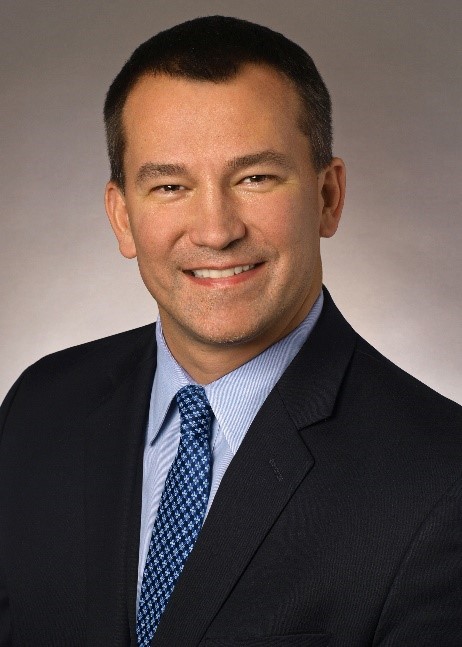
Andy Ferris

What led you to become an actuary? and what attracted you to the profession?
As an undergraduate at Kalamazoo College, I was a math major looking for a career. After some research, I finally found the actuarial profession, but that was in my senior year, too late to make meaningful progress on actuarial exams before graduation. I enrolled in the Master’s degree program in Statistics and Actuarial science at the University of Iowa, which turned out to be just what I needed. It worked out great, leading to exam progress, an internship, graduate teaching experience, and ultimately a full-time position at a life insurance company.
Describe a professionalism-related challenge that you have faced in your career. how did you handle it?
I have the opportunity to serve on multiple discipline panels over the years, representing two different actuarial organizations. I have found those experiences to be both challenging and rewarding, from the perspective of the level of responsibility I feel, not only to the individuals and organizations directly involved, but to my respective actuarial colleagues and peers and to the profession overall.
What advice do you wish you were given when you were at the beginning of your career?
In the early years of an actuarial career, one is typically focused on the exam syllabus and the day-to-day work responsibilities of a junior actuarial role, all of which are important for early career success as an actuary. In retrospect, however, I was probably further into my career than I should have been by the time I really understood the broader business operations of a life insurance company, including understanding the differences in distribution channels, and interacting more with producers, underwriters, reinsurers, etc. It’s only after we understand the broader perspective that we can bring transformational impacts to help the sector, and that has been the most rewarding. As the other consultants know, our daily job is to influence important decisions to help our clients. I often work at the intersection of strategy, product, and new business operations, including underwriting, for our large life insurance clients. At times I am the only person on a given team who is a credentialed actuary, yet I feel my actuarial experience comes through in almost everything that my cross-functional teams deliver, because the actuarial aspects are so fundamentally critical to the strategy and design of products and new business operations for life insurance companies. I touched on this earlier, but it is to understand the big picture; to think holistically, beyond the actuarial details. As they say, long ago someone was asked to find a faster horse to pull the buggy, but instead invented the automobile.
Tell us about a time where your actuarial expertise influenced an important decision in your workplace.
A broad understanding of core business operations of the life insurance ecosystem of producers, underwriters, direct writers, and reinsurers takes time, and is a never-ending maze of opportunity for improvement in many aspects, especially with today’s modern technologies, data sets, and related tools. I enjoy that pursuit.
What is one of the biggest lessons you’ve learned in your career?
Find your professional passion. Whether that is working in larger teams or working mostly by yourself, working on consulting vs. industry, or any of the countless other dimensions of our professional experiences.
Would you like to share anything else with aspiring or new actuaries, or those interested in volunteering for the academy?
Figure out which roles and experiences bring you energy, passion, and an appetite for more, versus what takes your energy away, leaving you feeling drained or not looking forward to more. I believe these are mostly just personal preferences, but you have to figure out what those are for you, which happens over time, with experiences in in a variety of roles and environments, often with a variety of employers. The more you can understand those for yourself, and identify roles and experiences that bring you energy and passion, the more your “work days” will begin to feel less like “work.” I think about this when I meet people that don’t like their job or even their career, and I feel very lucky to have found a career and I job that I love.
Share a little about yourself. what are some of your hobbies or other personal interests?
Outside of work, I have always enjoyed sports and exercise. I played football through college and have been an avid downhill skier for my whole life. I also enjoy running outside during the summer. I watch all sports, but my favorites are college football and basketball. Finally, I enjoy spending time with family and friends, and at our lake house in Michigan.
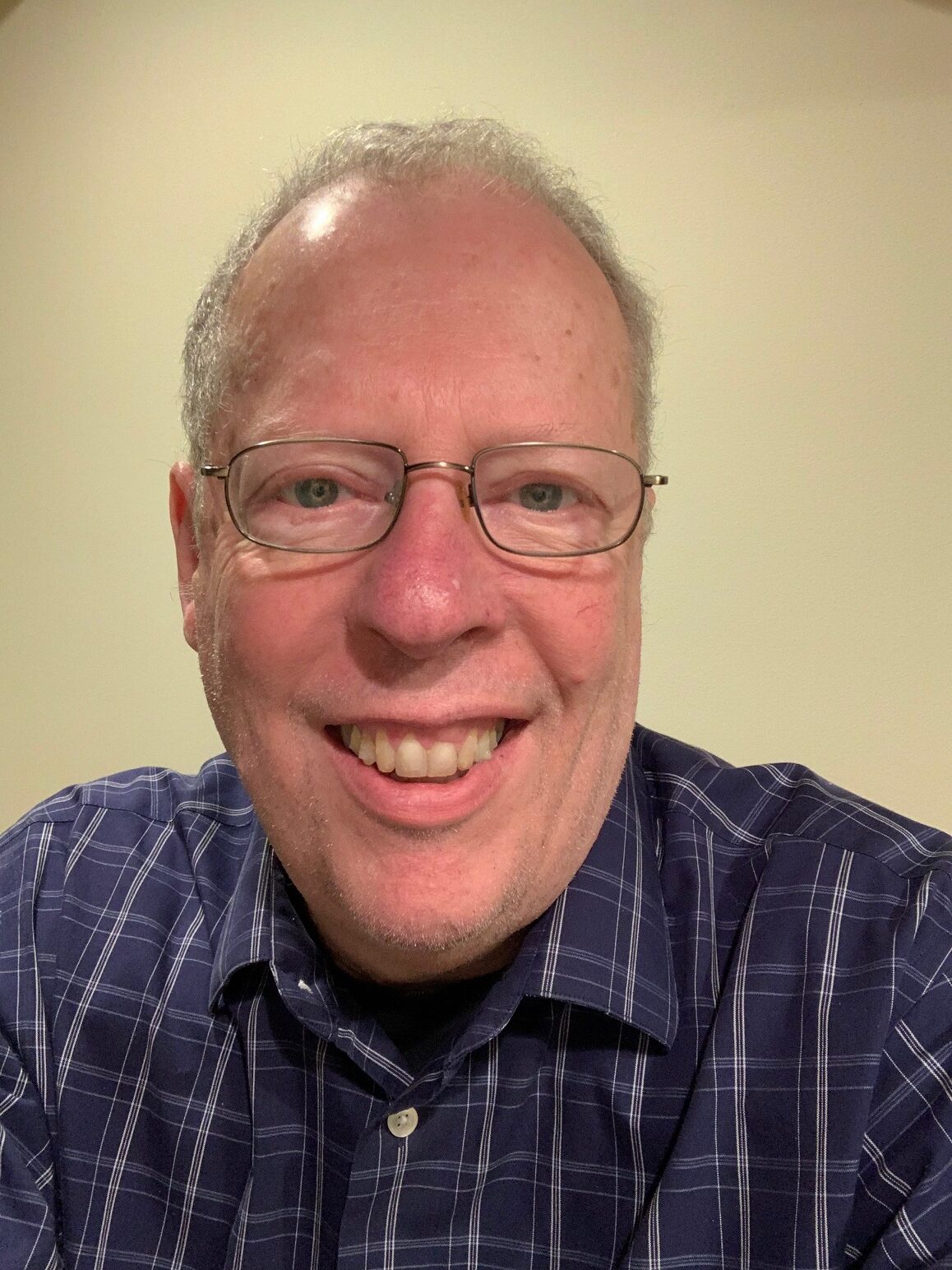
Stephen Strommen

What led you to become an actuary? and what attracted you to the profession?
My high school math teacher suggested it. Professional respect and good compensation were attractive, along with the chance to apply my math skills.
Describe a professionalism-related challenge that you have faced in your career. how did you handle it?
Regulatory financial reporting requirements can be burdensome, and resources are tight. Resources sometimes verge on inadequate. I had to assure myself that regulatory intent was being satisfied, while continually working to do more with less.
What advice do you wish you were given when you were at the beginning of your career?
Decide affirmatively what kind of career you want. If you are a competent actuary and have interpersonal skills, you will likely have opportunities to move into management positions beyond the actuarial sphere. If such opportunities are attractive to you, then actively pursue them-they won’t fall in your lap as easily as early actuarial advancement by exams. But not everyone finds such opportunities attractive and it’s OK not to. Know yourself and decide early.
Tell us about a time where your actuarial expertise influenced an important decision in your workplace.
During the 1980s, many life insurers segmented their general account portfolios to better match asset and liability risks by product line. With my actuarial expertise, I was able to play a key role in the segmentation process, from initial recommendation to drafting the segmentation plan to implementing the needed financial reporting process.
What is one of the biggest lessons you’ve learned in your career?
As in poker, know when to fold. Know when you’ve lost an argument and a decision has been made over your objections. Don’t continue to argue; make plans for dealing with it.
Would you like to share anything else with aspiring or new actuaries, or those interested in volunteering for the academy?
Volunteering for the Academy is a great way to meet other actuaries who care deeply about using their knowledge and skills to make the world a better place. I’ve met and shared a mission with some remarkable people that way.
Share a little about yourself. what are some of your hobbies or other personal interests?
I started college as a music major but switched majors after seriously considering career prospects. Now being mostly retired from a successful actuarial career, I’m going back to my love of music. I’ve played the cello as a side hustle all my life, but now I’m polishing my piano skills.

Christopher Chernick

What led you to become an actuary? and what attracted you to the profession?
I graduated C.W. Post College in 1974 with a degree in mathematics. I was going to go for a teacher certificate when I saw an ad in The New York Times for an actuarial assistant at George B. Buck Consulting Actuaries. I called the agent, secured an interview, and at the interview was given a simple mathematics test. That led me to a career as an actuary and administrator that has spanned 47 years and counting.
Describe a professionalism-related challenge that you have faced in your career. how did you handle it?
I was not a fast-track actuarial exam taker like many of my colleagues, and with the first two exams under my belt, I stalled. Then in the mid-’80s I started to take the Enrolled Actuary exams and after a few tries passed both of them and became an Enrolled Actuary. At Buck Consultants they would only promote ASAs and FSAs for many years. After many years of hard and successful work we convinced our management to explore alternate career paths. They did that and we became what was known as senior actuarial manager which was equivalent to the assistant consulting actuary level-which was a huge accomplishment.
What advice do you wish you were given when you were at the beginning of your career?
To be a successful actuary today (as it was in my day), you have to have the right combination of book knowledge and business sense. Today you also need technical knowledge to use the electronic tools of today and to really succeed you have to find the cutting edge of the next-generation automation process, either being on the ground building or recognizing the best investment.
Tell us about a time where your actuarial expertise influenced an important decision in your workplace.
In the mid-’80s, we were doing termination re-establishments. We had to assemble data, submit to insurance companies, and review bids and recommend to the client. I developed a common form for assembling the data that was widely used by the organization.
What is one of the biggest lessons you’ve learned in your career?
To be flexible, committed, and honorable. These qualities will carry you far.
Would you like to share anything else with aspiring or new actuaries, or those interested in volunteering for the academy?
Do the best job you can do always, and be friendly and helpful to others-it might take a long time, but the good work is recognized and you will go far.
Share a little about yourself. what are some of your hobbies or other personal interests?
In my early 60s, I started running; last year I ran my first half marathon on a virtual basis and this fall I ran a live half marathon, I run a local support group for depression and bipolar disorder. I love to bake, and I bake cookies every week for the group, I also love to garden and travel. During the pandemic I did grocery shopping for elderly people in the community that could not get to the food market because the town bus had been discontinued and I started to deliver cookies to them and people in the neighborhood, a good way to get to know them.
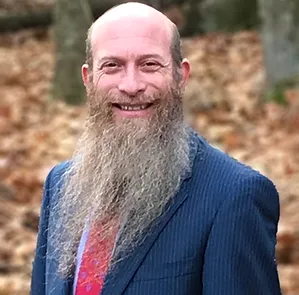
Bruce Friedland

What led you to become an actuary? and what attracted you to the profession?
When I was in high school, my mother worked at an insurance company. She knew I liked math, so she suggested becoming an actuary. I had never heard of an actuary before, so I looked into what an actuary was and what they do. I thought it sounded interesting. I went to college planning to be an actuary and was able to have an internship after my junior year, which helped solidify my desire to go into the profession. I was intrigued by the idea of using math for practical purposes like pricing insurance products.
What advice do you wish you were given when you were at the beginning of your career?
Do not ignore the soft skills. Technical training and exams can get you a long way up the corporate ladder, but only so far. After that, skills like strong communication, emotional intelligence, and understanding human behavior and building strong relationships become more important.
Tell us about a time where your actuarial expertise influenced an important decision in your workplace.
A former company entered a new distribution channel. We tracked experience by distribution channel and saw results from the new channel that varied materially from our pricing and other channels. The company decided to exit the new channel.
What is one of the biggest lessons you’ve learned in your career?
As I stated above, the soft skills are very important. As actuaries we need to be able to communicate in a way that our audience understands us. We need to spend our energy on building strong relationships with people.
Would you like to share anything else with aspiring or new actuaries, or those interested in volunteering for the academy?
I have been an Academy volunteer for many years. Volunteering allows me to give back to the actuarial profession. It also enables me to be involved with influencing the direction of new regulations and to understand the context behind the decisions that are ultimately made. Understanding context makes it much easier to work with new regulation than simply reading the words.
Share a little about yourself. what are some of your hobbies or other personal interests?
I am married and have five children and stepchildren in a blended family. My wife is the love of my life and my anchor. My kids are all very different and are taking their own paths to success and are really great people. For fun I play ice hockey and enjoy sailboat racing. I really like to play chess, although I have not played in tournaments for a few years. I also study Jewish religious texts.

Janice Duff

What led you to become an actuary? and what attracted you to the profession?
In college, I knew I loved my math classes even though I didn’t declare my major until my sophomore year. During a Mathematical Sciences Career Night, I learned about the actuarial profession and was intrigued. I enjoyed school and learning, and so I thought a career in which I could advance by taking exams would be rewarding. Although I had a few exam failures along the way, it turned out to be an excellent career choice for me. I stayed with The Baltimore Life Insurance Company my entire career, becoming its first female vice president. I worked with wonderful people who cared as deeply as I did about the company.
Describe a professionalism-related challenge that you have faced in your career. how did you handle it?
In my valuation role, I was told by my superiors that they slept better at night knowing I was in charge. I considered that not only a compliment to me and the staff but a testament to the integrity of us all. Although we didn’t always see eye-to-eye, I didn’t hesitate to express my opinion in a professional way when it differed from that of others.
What advice do you wish you were given when you were at the beginning of your career?
Recognize the importance of a work-life balance. I focused so much on exam progression and career advancement that at times I missed out on other valuable things.
Tell us about a time where your actuarial expertise influenced an important decision in your workplace.
In the beginning of my career, I worked on product development, pricing, and implementation. I loved the ability to create something that could benefit both the customers and the company. We soon realized the collaboration between the company’s sales and marketing areas and the outside marketing organizations needed to expand, so I became the company’s first marketing actuary and was the lead contact for several marketing organizations.
What is one of the biggest lessons you’ve learned in your career?
I recently retired, and looking back on my nearly 35 years with the company has made me realize how blessed I was to work with truly talented and caring people. Yes, they were my coworkers-but they were and still are my friends. The expression “we are all in this together” has grown in use in the last few years, but truthfully it was the way we worked all along. So my biggest lesson would have to be this: Never underestimate the power and satisfaction of collaboration.
Would you like to share anything else with aspiring or new actuaries, or those interested in volunteering for the academy?
I have served on the Life Committee of the Actuarial Standards Board since 2017 and recently became the chair of a newly formed task force. The experience has been wonderful-once again because of the care and talent of the people with whom I volunteer. Chances are good if you volunteer, you will have the same experience.
Share a little about yourself. what are some of your hobbies or other personal interests?
I love creating things. I am thinking about opening a craft business, making shadow boxes and other items to preserve memories of loved ones and significant events. I also enjoying baking and spending time with my family, friends, and my sweet 9-year-old rescue dog, Misty.

Jonathan DeLutio

What led you to become an actuary? and what attracted you to the profession?
I was interested in a profession in statistics or other mathematics-related occupation.
Describe a professionalism-related challenge that you have faced in your career. how did you handle it?
Transitioning from pension consulting actuary to a manager of benefit operations over a large church organization that still included some actuarial functions and responsibility was difficult. I had a number of new responsibilities such as reporting to the COO and ultimately a board of directors, managing an operational team, as well as managing a large implementation of a complicated record-keeping system. Juggling that along with starting a family (my wife had twins within the first three months of starting the new job to go along with two older kids). In addition to that, my commute of over two hours to New York City (one way) took quite a bit of time out of my day. I found that this is when I learned the most about my ability to manage my time-both professionally and personally. This is when I noticed the biggest growth in my career.
What advice do you wish you were given when you were at the beginning of your career?
Always look for new opportunity and never turn them down. This will be how you learn the most and succeed-through your willingness to be flexible and not scared to make a mistake and learn from it.
Tell us about a time where your actuarial expertise influenced an important decision in your workplace.
During my time with a church organization, there was an analysis done looking at funding of the members’ benefits compared to the reserve needed to pay the benefits. During this analysis, my boss and I opined on whether the plan had the ability to give benefit increase and still be in a strong funded position. This impacted not only my workplace, but ultimately the lives of the members and benefits they received.
What is one of the biggest lessons you’ve learned in your career?
Jump at every opportunity that you see or are offered.
Would you like to share anything else with aspiring or new actuaries, or those interested in volunteering for the academy?
Volunteering at the Academy is a clear example of being able to jump at opportunities and getting exposure to learn as much as possible. It has been a very educational experience and something I would recommend to everyone.
Share a little about yourself. what are some of your hobbies or other personal interests?
My hobbies now include supporting my children in their interests, which include coaching basketball, volunteering for the Scouts, watching dance competitions and spending weekends at the soccer field. I am also a huge college basketball fan and root for the best program in the world-the Tarheels of the University of North Carolina.

Zenaida Samaniego

What led you to become an actuary? and what attracted you to the profession?
I was a math major in college in the Philippines when I learned about the actuarial profession from one of my professors and mentors. I was attracted by the business applications and real-world implications of my math education. At age 18, I traveled to the U.S. to pursue graduate studies at the University of Michigan, and a year later started as an actuarial trainee at New York Life.
Describe a professionalism-related challenge that you have faced in your career. how did you handle it?
I remember a time when we were being outbid on single premium pension plan closeouts by a very large insurer (long since defunct), apparently due to an improbably high interest rate implicit in its quote. In hindsight, we made a prudent decision to avoid bidding wars unless it made financial sense for both the plan and our company. There were also a few times when I would discover my error in a certain input or algorithm in a programming application that we used, and I would point my error out to my supervisor and request that we put a notice out to users about our corrections.
What advice do you wish you were given when you were at the beginning of your career?
To stay away from “politics” in the workplace-that is, value cooperation and knowledge-sharing, respect for and acknowledgment of differences in views, mentoring so that others may grow under and with your leadership, and last, but not least, life-work balance (family first, next to God, before work).
Tell us about a time where your actuarial expertise influenced an important decision in your workplace.
It was later in my career after my retirement from the private sector, and during my time as a chief actuary in the federal government, where we discussed my agency’s national savings education campaign, particularly for Americans nearing or at retirement, and how it could benefit from an online tool where the public user can consolidate financial income, savings, assets, and investments from all sources and estimate additional savings needed for future retirement spending and needs. As the only in-house actuary at my agency, I ultimately developed this tool with actuarial formulas and working with in-house programmers. I also set up self-checking mechanisms and a clear statement on assumptions used as a basis for the projected results.
What is one of the biggest lessons you’ve learned in your career?
Learning and keeping active are continuous and necessary to advance both in the profession and life in general. Actuaries with their risk-oriented aptitude and skill sets provide important input to other people’s lives and the communities where we live.
Would you like to share anything else with aspiring or new actuaries, or those interested in volunteering for the academy?
Volunteering taught me early on the values of being proactive; e.g., learning about emerging concepts and trends, developing and growing an informal professional and social network, and personal satisfaction in making a difference.
Share a little about yourself. what are some of your hobbies or other personal interests?
I’m still an active volunteer in the actuarial profession, venturing into new practice areas where I believe basic actuarial principles apply, and learning about today’s challenges. Most other times, I join my husband (also retired) in our daily walk and other activities outdoors. While he has his own other interests, I enjoy reading digital book loans from the local library, virtual prayer/Mass or Bible study, Sudoku, and crossword puzzles.
We have 4 grown, independent sons, who work and live with their families away from us. Before the pandemic, we often traveled for family visits as well as for leisure. While we have continued to visit albeit virtually, we hope to do so in person soon as it is safe again to travel.

Sheldon Summers

What led you to become an actuary? and what attracted you to the profession?
I grew up in Puerto Rico. When I was a sophomore in high school, I placed second in an island-wide high school math competition, and my prize included some books that described the actuarial profession. Years later, I took a two-year leave of absence from graduate school (Carnegie Mellon University in Pittsburgh) to come out to Los Angeles. When I first arrived in Los Angeles, I looked for a “temporary” job; as part of that process, I applied for the insurance examiner civil service exam. Nine months later, I was contacted by John Montgomery, who was the chief actuary at the California Department of Insurance. By then I already had another job, but coincidentally the Department of Insurance was in the same building where I was working, so I decided to interview at the department because it was so convenient, and the position had to do with actuarial work. After talking to John, I decided to change jobs. I extended my leave of absence at Carnegie Mellon for two more years, but never went back.
Describe a professionalism-related challenge that you have faced in your career. how did you handle it?
I don’t recall any major professionalism-related challenges, but I have over my career informally consulted at least a few times with members of the Actuarial Board for Counseling and Discipline to get their advice in dealing with specific matters. This has been very helpful.
What advice do you wish you were given when you were at the beginning of your career?
Join a Toastmasters Club.
Tell us about a time where your actuarial expertise influenced an important decision in your workplace.
Around the late 1980s, I attended an NAIC working group meeting that was formed to address the treatment of the sale of certain non-admitted assets. Just prior to the end of the meeting, I suggested that the working group take on a project to revise the life reinsurance risk transfer model regulation. As a result of my suggestion, I was appointed as chair of a subgroup of the working group. Five other volunteers and I developed the version of the Life and Health Reinsurance Agreements Model Regulation that was adopted by the NAIC in the early 1990s. This model regulation was the basis for the regulation adopted in California, and it influenced decisions regarding denial of reinsurance credit with respect to some companies’ reinsurance agreements. In some cases, the impact was significant.
What is one of the biggest lessons you’ve learned in your career?
As a manager, decisions regarding new hires to fill vacant positions are some of the most important ones that will be made.
Would you like to share anything else with aspiring or new actuaries, or those interested in volunteering for the academy?
Yes, getting involved in one or more Academy work groups or committees will be an invaluable experience, and is a great way to make actuarial connections.
Share a little about yourself. what are some of your hobbies or other personal interests?
I’ve been married for over 41 years, and have two sons, one daughter, and two granddaughters. As is the case with many parents, when they were young, I spent most of my free time attending (and in some cases coaching) the many extracurricular activities they were involved in. These included basketball games, volleyball games, baseball games, soccer games, and dance and singing recitals and competitions. After they finished high school, we spent many weekends away from home to attend their college soccer games. Now that they are adults, my wife and I spend a fair amount of time each month at our second home in Mammoth Lakes, Calif., where we ride our bikes and enjoy other outdoor activities. We also enjoy cruising a couple times a year but haven’t been able to do that since the pandemic started.
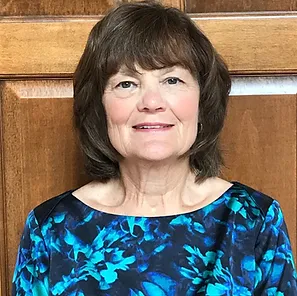
Nancy Behrens

When and why did you decide to become an actuary?
I had heard about the actuarial profession several times throughout high school and college, but did not think seriously about pursuing it until I was working on my master’s degree. A few of my teaching assistant colleagues and I challenged each other to take the first exam. We all passed and thought that it must be pretty easy to become an actuary. Reality set in when I took exams that had not been covered in my college courses! The combination of using math skills and solving business problems was very attractive to me. The ability to design products that helped consumers manage the financial risks of dying too soon or living too long was also intriguing. Finally, I was very interested in the challenge of making long-term decisions based on historical data and expected future results.
Describe one of the professionalism challenges you faced early in your career. how did you handle it?
I was fortunate to work for a company that did not ask me to walk too close to the ethical/professionalism line. I found that in leading other actuaries, I had to be careful about how I asked for a better answer than the one they had provided, in case they would not be able to say the same in the future! I tried to keep an open environment where actuaries could debate the issues at hand and not be afraid to challenge authority. And I was always cognizant of whose signature was going on the document.
What advice do you wish you were given at the beginning of your career?
Cultivate relationships with your non-actuarial colleagues, recognize the perspective they bring to the table and give them the same respect that you give to actuaries. It took me too long to figure that out on my own.
What is one of the biggest lessons you’ve learned in your career? and why?
Figure out what is important to you and to your employer and then keep your eyes on those big things. It is very easy for actuaries to get bogged down in issues that don’t have a large impact on the final results. But, on the issues that do really matter, be tenacious, be prepared, and communicate effectively.
Share a little about yourself. what are some of your hobbies or other personal interests?
I try to stay focused on the big things in my personal life as well and I am committed to helping those people around the world who are in need of things that most of us take for granted-clean water, adequate nutrition, and a safe living environment. I like to travel and am looking forward to pursuing some bucket list items in a post-pandemic world. I like gardening and have had lots of time to be outside on our property during the past year. When weather permits, I enjoy riding my motorcycle, a Harley Softail. I must say I am a bit of a fair-weather rider, but that is probably just the risk aversion coming out in me.
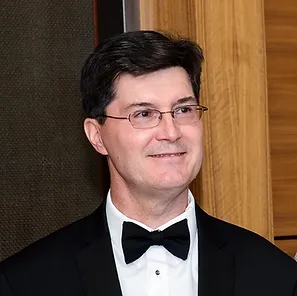
Alan Putney

When and why did you decide to become an actuary?
I decided to explore the career during my senior year in college. It seemed like a great way to make a living with a math degree without needing to get a masters or doctorate degree. I have always enjoyed solving problems, and this career is built on solving complicated business problems.
Describe one of the professionalism challenges you faced early in your career. how did you handle it?
I worked with municipal liability coverage during the middle and late 1980s, when the industry experienced an insurance crisis with skyrocketing municipal lawsuits and availability & affordability issues in the insurance marketplace. I had to both support hefty rate increases in regulatory filings and work with my company’s underwriters to find areas where we could still write the business with some measure of confidence. We were trying to walk the line between stability and responsiveness, but sometimes that line had been totally washed away by the tide of recent events.
What aspect of being an actuary do you enjoy the most?
I enjoy working with a team of professionals to solve complicated business problems. Sometimes it’s a team of actuaries working on a new tool or a complicated analysis. Other times it’s with underwriters, a finance team, or a claims area that asks for help to solve a problem that is keeping them from moving forward.
Tell us a little about yourself. what do you do for fun?
I love solving puzzles (crosswords, sudokus, cryptics, etc.) and playing games (card games, board games, computer games). The first thing I look for in a new issue of Contingencies is the puzzles. I also play some golf with friends and take daily walks with my wife. We have done a fair amount of traveling over the past 30 years, and we are looking forward to resuming that after the pandemic is tamed.
What advice would you give to someone who is just beginning their career as an actuary?
Get your credentials, learn to work with others, jump into new things, and challenge yourself. You will never grow without doing these things.
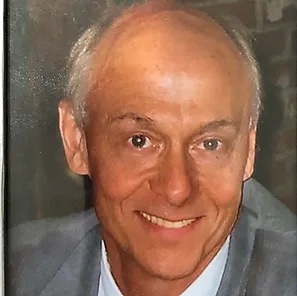
John Purple

What position at the academy do you currently hold?
A member of the Committee on Professional Responsibility, the P/C Extreme Events and Property Lines Committee, and the ASOP No. 41 Task Force.
When and why did you decide to become an actuary?
I first learned about the actuarial profession in the fall of my senior year in college. A fraternity brother who had graduated the prior year had come back for Homecoming and he told me about this great job he had as an actuarial student at The Hartford. He described it as “an insurance position that utilizes math and statistics. All you have to do is study and be able to pass a series of three-hour exams. And each time you pass one, you get a raise!” (He neglected to mention the amount of effort it took to pass them all!) Although my degree was in economics, I had taken a number of math courses and thought that the work sounded interesting. So, I interviewed with several insurance companies that had actuarial student programs, learned a little more about what actuaries did, and ended up accepting a position with Aetna Life & Casualty.
Describe one of the professionalism challenges you faced early in your career. how did you handle it?
While this is not really a “professionalism challenge,” I had one experience in my early career that concerned volunteering and giving back to the profession. Once I obtained my FCAS designation, my boss at the time asked me which CAS committee I was going to volunteer for. Having spent many years and a lot of effort to get through the exams, I said that I just wanted to focus on my work and enjoy more family time. After being asked the same question several more times in the next few months, I got the message and agreed to join the CAS’ committee on continuing education. (I wanted no part of an exam committee!) And it didn’t take long for me to realize some of the benefits of volunteering, including learning and interacting with other actuaries. As a result, I have served as a volunteer in one form or another every year since 1982.
What aspect of being an actuary do you enjoy the most?
I think it’s the idea of being able to explain issues that have actuarial implications to non-actuaries. When I was a consultant, and later as the chief actuary at the Connecticut Insurance Department, we often had issues that the client, the state legislature, or the NAIC were considering that required actuarial input. I always found these discussions to be not only interesting, but also a learning experience.
Tell us a little about yourself. what do you do for fun?
I like outside activities including golf, fishing, downhill skiing, and spending time in the summer at the cottage on our island at a lake in Connecticut.
What advice would you give to someone who is just beginning their career as an actuary?
I would encourage new actuaries to focus on not just mastering the technical skills required for their job, but also enhancing their communication skills. While they will need the technical expertise, they will also need to be able to explain their analyses and findings to whoever their “principal” is.
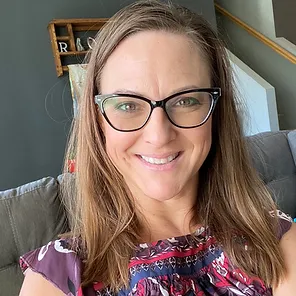
Rhonda Ahrens

Why did you become an actuary?
After I transferred from a state college to a university, the way my credits transferred made it clear to me that I should shift my focus to pure mathematics. I had no idea what to do with such a degree, but because I was attending university in Omaha, Neb., my connections were littered with insurance influence, and I stumbled into an actuarial internship. Soon after, I took my first actuarial exam (while pregnant with my first child)-and I never looked back.
Describe a challenge you have overcome.
I remember a time when I “muscled” (or maybe begged) my way into a meeting with the CEO of my company when I was probably too green to be allowed in the room. My boss let me tag along; he believed in me-I guess I did do a lot of the work to prepare our team’s report to be presented, so he thought I deserved the exposure. We were asked tough questions, and I just told it how it was. Maybe a lot of people would be timid or back down, but I didn’t know the difference. My boss was surprised that I had the guts to look our senior management in the eyes and just be blunt. I think that’s sometimes what you need to do to earn respect-to show people that you aren’t going to let them fail by holding back valuable information from them. Your colleagues will appreciate that you aren’t sugar-coating things in the end.
What do you enjoy the most about being an actuary?
In 25 years, I can honestly say my job has never been boring. It has been complicated, intimidating, even frustrating, but I continue to learn and to find satisfaction in the topics that I continue to learn about. I started as a life actuary focused on annuities, learned about other life and health products along the way, found a place in the long-term care industry, and now as a chief actuary I also have exposure to property/casualty topics. I even enjoy that I still feel intimidated by some of my work-it keeps the job interesting-and that I work with other actuaries who have different experience than me. It keeps me on my toes and shows just how much more I can learn in the next 25 years of my career.
Share something about yourself.
Most people would say that I run a lot, but I actually take pretty long breaks from serious running. I’ll use this activity, though, since my actuary friends are used to me “forcing” them to run at national meetings where we find ourselves together. I have completed eight full marathons and I have talked a lot of other people into becoming runners over time. One of my actuarial colleagues once asked me-during an 18-mile marathon training run in the Las Vegas heat-how many people I’ve convinced to become runners. We spent a few miles considering this and decided it must be over 100. I can’t prove it for sure, but I think that number may have some truth to it. My best friend is an actuary who told me about 23 years ago that she would never be a runner-and she is now forcing me to train for my ninth marathon. I guess that means I’m a runner. Other hobbies that people bring up sometimes when they tell stories about me include multiple crafts my mom taught me when I was a kid, raising chickens, and gardening.
What advice would you share with young actuaries?
I started this career with my first child in tow and had all three of my children with me in Dallas when I was handed my FSA certificate nine years later. You can do this-and it’s worth it. Find ways to get yourself invited to meetings you feel you may belong in, and don’t be afraid to do extra research so you can ask questions that nobody else is thinking of. Don’t let it be about the exams (even though you need to pass those)-make it be about embracing the work and building a passion for it.
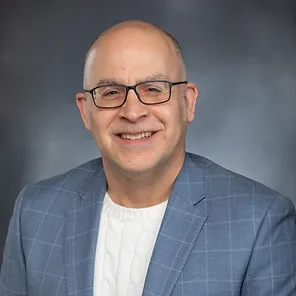
Matthew M. Smith

Why did you become an actuary?
During college, I visited my former high school math teacher. He asked me, “What are you going to do with your math degree?” Honestly, I had no clue at that point. I had an interest in teaching but was concerned with the low wages of the profession. He asked, “Have you thought about becoming an actuary?” I had never heard of the profession prior to this conversation. He connected me with a consulting actuary who was a former colleague of his. After that connection and a little research, I started my journey and began taking actuarial exams. The power of networking!
Describe a challenge you have overcome.
Very early in my tenure as the new state actuary for Washington state, I was asked to determine an increase in contribution rates for a recently enacted piece of legislation that changed the benefit provisions of one of our state pension plans. The determination would lead to a near-term and temporary increase in member and employer contribution rates. One component of this legislation involved a controversial provision that was poorly defined and, based on how you interpreted that component, the impact on the contributions-that were substantial-could vary several-fold. I sought independent and outside advice to confirm the range of potential interpretations. Although some disagreed, I did not believe it was my responsibility as the plan’s actuary to serve as the “final arbiter” in this situation and initiate an increase in contribution rates with so much uncertainty on the interpretation of the underlying plan provision.
I was also mindful of the impacts on members’ take-home pay and employer budgets. However, I felt it was my responsibility to inform the Legislature of this uncertainty and the potential implications so it had the opportunity to clarify the provision before any contribution rate increase was charged. In the end, the Legislature repealed the provision in question. Looking back, I was grateful for this challenge early in my new role and it helped set the tone for our office moving forward.
What aspect of being an actuary do you enjoy the most?
Helping others and making actuarial analysis accessible to non-actuaries. Our office tagline reads “supporting financial security for generations.” I am honored to have the opportunity, alongside my colleagues at the office, to support the financial security of Washingtonians today for generations to come.
Tell us about yourself. what do you do for fun?
I enjoy spending time with family and friends, reading, and playing golf. I love watching movies, especially science-fiction movies. I’m a big Seattle Seahawks fan-go Hawks! I also enjoy traveling with my wife and look forward to traveling again soon.
What advice would you share with young actuaries?
Develop a broad set of skills. In addition to strong math and analytical skills, strong communications skills are a must. If our work is not accessible, I would argue it’s of little value. If you’re introverted, like me, push outside your comfort zone and work on your networking skills. It’s worth it!
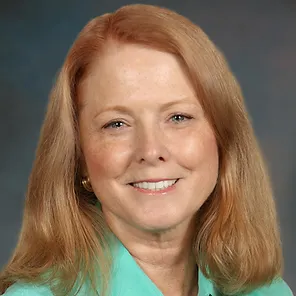
Teresa Winer

Why did you become an actuary?
Around 1979, when I was graduating from Emory University with a bachelor’s degree in mathematics, my mother shared an article with me that she had read in Redbook magazine. The article explained that the actuarial career could provide excellent job opportunities for women. Redbook was mentioned in this actuarial reference from January 1980. I discovered that there was a program at Georgia State University in Atlanta, so I scheduled a meeting with Professor Robert Batten, who sketched out an exam plan for me and gave me the confidence to enter the graduate program. I earned a Master’s in Actuarial Science in 1982.
Describe a challenge you have overcome.
I worked in product development, and at the time there was a big push by A.L. Williams to “buy term and invest the difference.” This marketing concept pushed insurance companies to improve their whole life products and offer higher returns. Interest rates were high at that time. We developed an excess interest in whole life, and foresaw that there was a potential for producing illustrations of very high cash values at the time of sale, assuming current crediting rates would continue over the long term. At the time computers were very large, so our agents had a special handheld computer to print illustrations for prospects with variable interest rates.
We forced the illustration software in the handheld computer to show the guaranteed returns first and made sure that projections could not be separated. For the current/other credited rate illustrations, we added consumer warnings to focus on the guarantees. At the time, we did much of our own programming in Basic to compare the “buy term and invest the difference” projections with our excess interest whole life product and to cross-check the software results extensively before launching the product. It took extra time before releasing the software, and in spite of much pressure from the sales force, we took many extra steps so that the illustrations would not be likely to mislead consumers.
What do you enjoy the most about being an actuary?
I respect other actuaries and have enjoyed working with so many great actuaries who have helped me, giving suggestions to overcome stumbling blocks when I had (and still have) questions.
Share something about yourself.
I love traveling. My last fun trip was with my daughter to meet friends in New York City in the fall of 2019. During the pandemic, some trips were canceled, but I’ve enjoyed taking lots of long walks and painting in my spare time.
What advice would you share with young actuaries?
Consult older actuaries for advice, because they have a sense of fundamental and foundational principles and can make good estimations. Being able to judge the reasonableness of rates and other output that may come from complicated software is hard-earned talent that comes from many years of work.
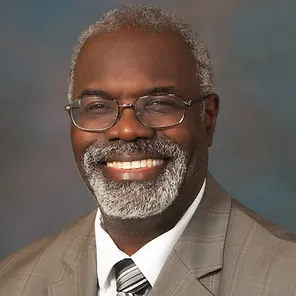
John Robinson

Why did you become an actuary?
While working on my master’s degree in statistics, I was looking for a career that would make me a decent living when I returned home to Jamaica. I had been aware of the actuarial profession for a number of years at that point but had not seriously considered it. I took Part 2 (Statistics) in Jacksonville, Fla., and-not surprisingly-got a 10. At the end of the school year, I returned home and got a job with R. Watson & Sons.
Describe a challenge you have overcome.
My only serious ethical dilemma occurred several years ago, after I had earned my fellowship. My chief actuary shifted earnings from one year to the next by setting up reserves in advance of receiving the premiums, which is inconsistent with proper practice. When I challenged him, our relationship soured, and I left the company. My next job was a “promotion” to Appointed Actuary. The best part of the story is that I was able to ask for advice from a vice president actuary at my former employer-that taught me the value of networking.
What do you enjoy the most about being an actuary?
As a life insurance regulator, I have the opportunity to influence the direction of life insurance reserving for all 50 states. It is a privilege to have such an amount of influence and to learn from other experts’ experiences and knowledge.
Share something about yourself.
I have played the piano since age 7. I now have two synthesizers, and I have made two CDs of original compositions-I’m still working on the third. I grew up playing soccer, table tennis, and track. I love to travel, and I am hoping that my plans to attend the 2020 Paralympics in Japan will be fulfilled next year.
What advice would you share with young actuaries?
If you are looking for a job, you need to learn about the business you want to be part of-you can’t just say, “I can do math.” If you are in your first job, make sure you leave things better than how you found them by improving the process. Finally, it’s never too early to start building your network.
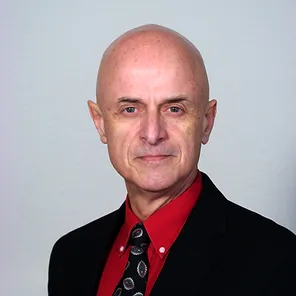
Steve Malerich

Why did you become an actuary?
In June 1975, I met a former math teacher while working on a spring supplement to my high school yearbook. He described the profession and found brochures from some actuarial organizations in the school’s counseling office. That was the first time that I found an intriguing connection between my interest in math and a real occupation.
Describe a challenge you have overcome.
My boss-the CEO, not an actuary-told me, “You just get me the numbers; let me worry about what they mean.”
I continued to worry about the meaning in my numbers. When I saw serious meaning that I knew the CEO would not like, I drafted a lengthy memorandum explaining the concern and the analysis I had done leading to it and sent it to the CEO-and the chairman. (ASOPs were new at the time and ASOP No. 41, Actuarial Communications, did not yet exist.)
What do you enjoy the most about being an actuary?
Understanding the dynamics of the business I work with and the standards by which we evaluate and report their performance, then finding ways to improve the integrity and clarity of the message about results of actual performance.
Share something about yourself.
I love to read, run and explore nature.
What advice would you share with young actuaries?
When you think you understand how something works, check yourself by doing the math and testing to be sure it produces the results that you expect.
When you grow to the point that you’re helping others to learn, teach the way they learn; don’t expect them to learn the way you teach.

Mitchell Momanyi

Why did you become an actuary?
I decided to become an actuary in 2011. After trying several fields in college including mechanical engineering, mathematics, financial mathematics, and economics, I landed on actuarial science as a career. Actuarial science is a field that relies on several areas of knowledge and experience including mathematical/logical thinking, statistical methods, regulatory knowledge, as well as financial expertise. It uses experience in all these areas to solve problems related to risk management. The use of a variety of fields is what keeps the actuarial profession attractive to me.
Describe a challenge you have overcome.
Several years ago, I was working for a small organization as the only credentialed actuary. Although I had my ASA at the time, I did not have sufficient experience to issue actuarial opinions in the area in which I was working. Despite being pressured by the director of my department (who was not an actuary) to sign off on work that I was not qualified to do, I did not do so. I explained to him the reasons why it was unethical for me to give actuarial opinions when I was not qualified. This served as a good opportunity to educate others on what it is that actuaries do and the importance of proper qualification when serving the public.
What do you enjoy the most about being an actuary?
The opportunity to solve a wide range of problems involving risk. The health care field is always evolving and presenting those who participate in it with new challenges.
Share something about yourself.
I love running and reading (but not simultaneously!). Every morning, I run 5 miles prior to beginning my day. It is a chance to meditate and get my thoughts straight prior to getting my work started. Whenever I am not working, it is highly likely that you will see me behind a book. I am currently reading Which Country Has the World’s Best Health Care? by Ezekiel Emanuel as well as When We Do Harm by Dr. Danielle Ofri. Reading widely was a discipline that was instilled in me by my father while growing up and I have always enjoyed it.
What advice would you share with young actuaries?
Try as many things as possible in your career and make relationships with as many people as possible as well. The best way to learn is by working on a variety of projects.

Susan Pantely

Why did you become an actuary?
I graduated college with a mathematics degree without a clear plan. Searching for a career, I saw an advertisement in the local paper for an actuarial analyst (listed under math or I may have never seen it!). I answered it and was offered the job. I accepted the offer and after a few weeks realized that the combination of business and mathematics was not only challenging but fulfilling.
Describe a challenge you have overcome.
At a board meeting for my largest client, the board asked the director to leave the room and called me in. The director hired me and was my primary point of contact. I knew she had told the board her recommendation, which did not agree with mine. The board questioned me on my analysis and what I would recommend.
It was difficult to be placed between the board and the director. However, I explained objectively the analysis I had performed that led to my recommendations. The board ultimately followed my recommendation. It did put tension in the relationship with my client; however, the director left several months after and I still have the client 20+ years later.
What do you enjoy the most about being an actuary?
I like solving problems that will help my clients and hopefully contribute to making health care more affordable in the future.
Share something about yourself.
I love to travel-I’ve been to all 50 states and 68 countries. I’m also a diehard Pittsburgh Steelers fan. I also enjoy wine-tasting and golf.
What advice would you share with young actuaries?
Be curious and ask questions. Learn to understand the analysis and interpret the results, rather than focusing only on formulas and coding.
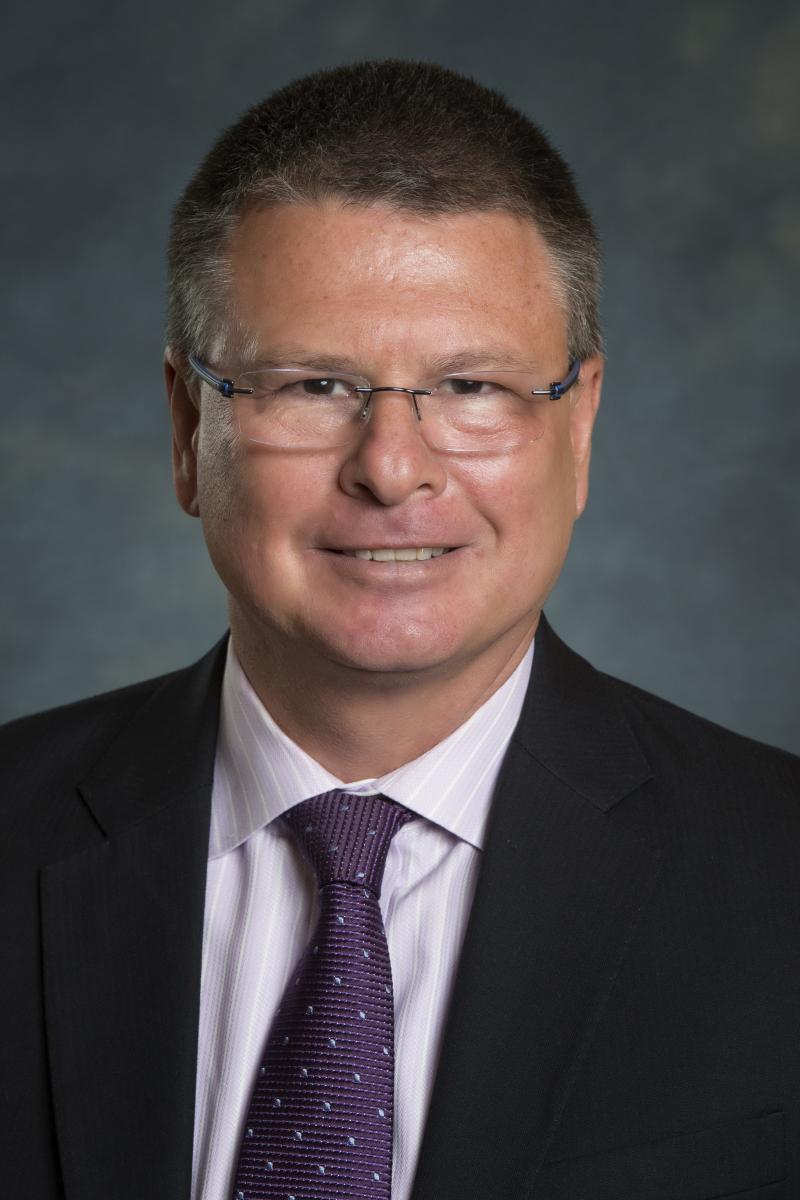
Rade Musulin
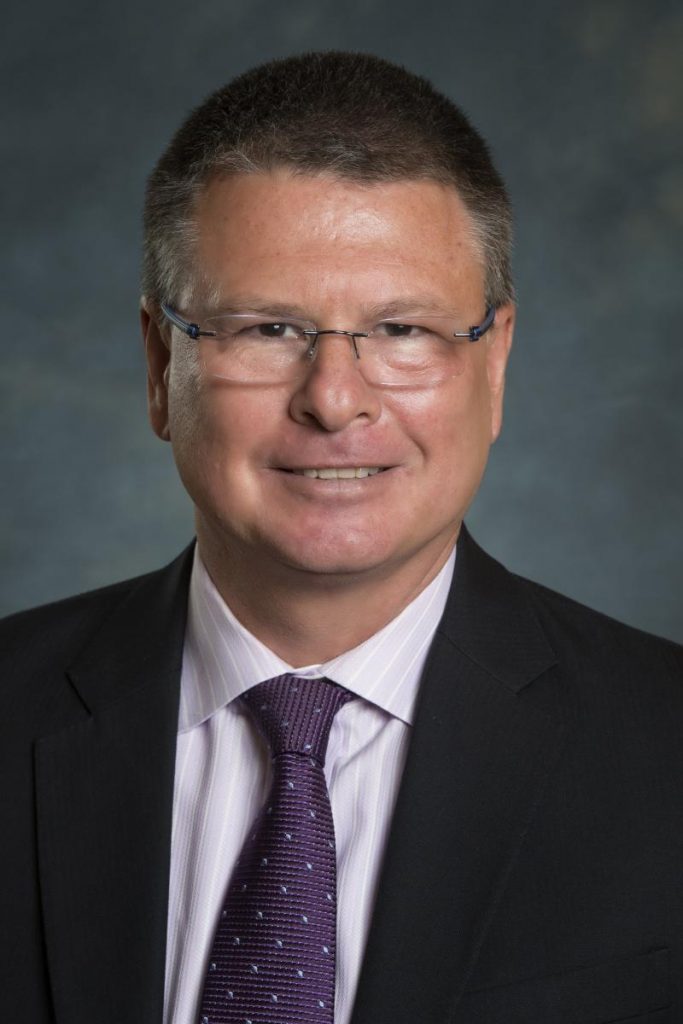
Why did you become an actuary?
I became an actuary by accident. I had planned to attend law school or graduate school in international relations but due to financial considerations I decided to stop attending school after graduating from university. As I had taken many math classes I completed an applied mathematics degree my senior year. I applied for a job after graduation- “mathematicians wanted”-and it turned out to be for an actuarial student position, which I jokingly referred to as a track for a “poor man’s PhD” because exams were inexpensive and employers paid you to study. Despite having no plan to become an actuary, I am very happy I did so, as it has opened up many interesting career opportunities for me and has let me work in many countries.
Describe a challenge you have overcome.
I became a political lobbyist after working on many public policy issues following Hurricane Andrew in 1992. In that role I had to learn to distinguish between “correct” answers and “right” ones, plus provide actuarially sound input even if it did not fit a political position. Being a member of the Academy sometimes limited my ability to create facts as some of my political colleagues could, but in the long run the credibility of having professional standards I followed opened many doors. I wrote a Contingencies article on this titled “Sound Bites and Fuzzy Math” in November/December 2001.
What do you enjoy the most about being an actuary?
Having a foundation in mathematics, risk, and sound reasoning allows you to understand so many other disciplines. I have been able to use those skills in many different settings during various phases of my career. I have spent most of my time doing “nontraditional” work, which has been very rewarding and interesting. I currently lead a climate risk practice, which is something I would never have thought of when I left university in 1979.
Share something about yourself.
I live in Australia and enjoy outdoor activities like hiking.
What advice would you share with young actuaries?
Get prepared for a lifetime of learning and keep updating your skills. The needs of society are evolving at a rapid pace and continuing education is a key to having a successful career.
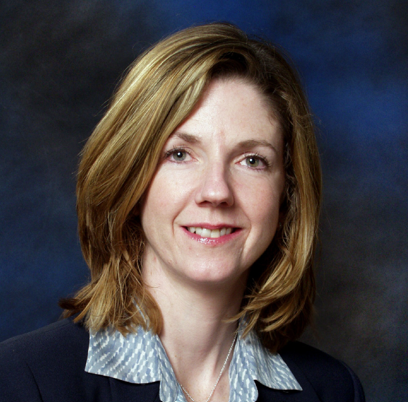
Tricia Matson

Why did you become an actuary?
I decided to become an actuary late in college, based on my interest in math. It seemed like an interesting, challenging career choice; I’m so glad I made that decision.
Describe a challenge you have overcome.
Early in my career, I faced a particularly thorny professionalism challenge. I felt that someone I worked with-someone who was a supervisor-was acting unethically. I first spoke with the supervisor and when that did not go well, I reached out to both an internal ethics group as well as the Actuarial Board for Counseling and Discipline (ABCD) for advice. It’s a good reminder-the ABCD is there to help.
What do you enjoy the most about being an actuary?
I enjoy many aspects of actuarial work, but one I particularly love is helping others solve complex problems in a quantitative way. There’s just something about unpacking convoluted questions as a group-I find it immensely satisfying.
Share something about yourself.
I don’t spend all of my time in the office, of course. I spend a lot of time with my family; I also enjoy CrossFit and running.
What advice would you share with young actuaries?
When younger actuaries ask me for advice, I always tell them the same thing: Study hard early and get those exams out of the way. They open a lot of doors!

Audrey Halvorson

Why did you become an actuary?
People sometimes ask why I became an actuary. I have a funny story about that. In grade school, I asked my dad, also an actuary (William Halvorson) if he made $50,000 a year. This was in the 1970s. He laughed and said, “Yes, dear.” Since I was good at math-and because $50,000 a year seemed like all the money in the world-I stuck with that plan.
Describe a challenge you have overcome.
In the middle of my career, I was chief actuary at a health plan. We did regular financial projections to estimate what might happen with our financials by the end of the year. We knew from the beginning that the budget was very aggressive, and we might have difficulty meeting budget. And every quarter we were short. At the end of the third quarter, we did another projection, and my boss (the CFO) wanted a higher profit number. I argued with him, begging him to give me one more morning to convince him to go with our value, and he said OK … at first. But in the morning, before work, he had left me a voicemail saying we were not changing the profit number. I replied that he would have to let me tell him, “I told you so.”
A month later, when the results were projected to be right where my team said they were going to be-short of estimates-the CEO said in a big meeting, “Audrey, what’s wrong with your numbers?” And the CFO said … nothing. I realized then the value of good documentation. I had all of our estimates documented, along with the changes the CFO had made. The values he changed were the projected administrative expenses, so those were not “actuarial” in nature, but I felt the pressure many actuaries feel. It was extremely uncomfortable. We never changed the claims projections under pressure, but I don’t think the CEO ever learned that the CFO and the chief actuary disagreed. I made a pact with the CFO that if we ever disagreed in the future, we would discuss it together with the CEO.
What do you enjoy the most about being an actuary?
Part of the job that I love the most is the challenge of finding a solution to a financial/actuarial/business/mathematical problem. Even now, coming up with “what makes sense”-or more appropriately, “what is not unreasonable”-is fun. And discussing it with other actuaries also makes it fun, because you continue to learn with every challenge provided.
Share something about yourself.
When I’m not busy in the office, I downhill ski, read, play piano, garden, raise bees, make cheese, can preserves, and drive my tractor!
What advice would you share with young actuaries?
To new actuaries: Ask questions every chance you get. Don’t “assume.” Find out why your boss thinks an answer is right or wrong. Learn the basic underpinnings of solutions. Discuss with your partners/workmates. Laugh every chance you get. And remember that it’s easier to find a new job than a new profession. Be aware of your responsibilities as an actuary to the public, to your company, to yourself. And read the Code of Professional Conduct.
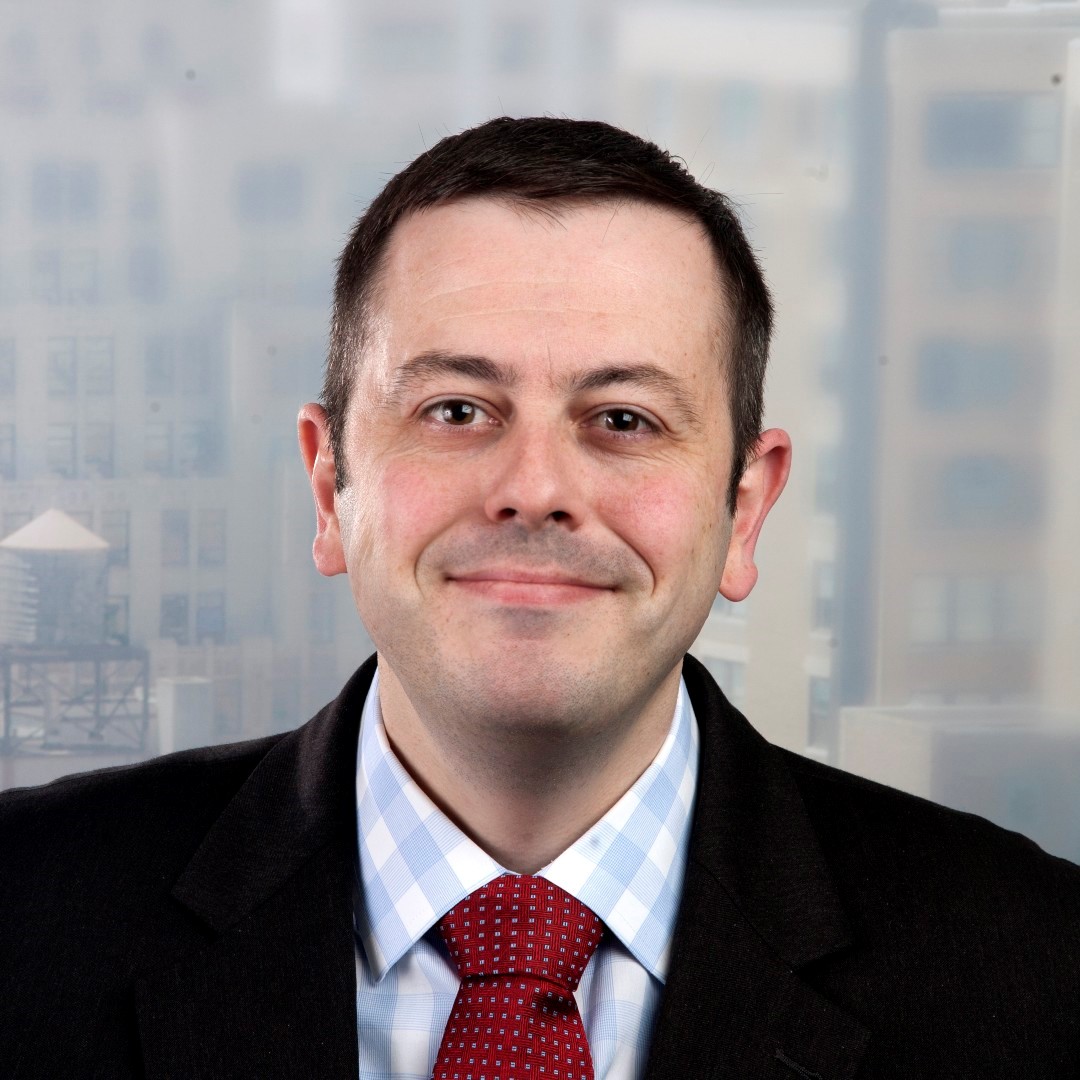
Gareth Kennedy

Why did you become an actuary?
I decided to become an actuary during my last year of university. I was a theoretical physics major and was looking for a way to apply my math skills in the business world when I came across a career pamphlet at my university in the UK. The mix of practicality and theory appealed to me a great deal.
Describe a challenge you have overcome.
I’ve always worked at a Big Four accounting firm, and it was drilled into me early on the importance of technical checks of our work. I used to have reams of paper to check and different types of check marks with a key so someone could follow how I checked a piece of work. It fostered in me an understanding of the various P&C methods through formulaic checks as well as just reconciling inputs and outputs.
What do you enjoy the most about being an actuary?
I really enjoy the problem-solving aspects of this job. Starting with a business question and piles of data, then developing a model, refining and tweaking and soliciting the feedback of others, and finally arriving at the solution-that’s immensely satisfying.
Share something about yourself.
Of course, I’m not always in the office. With three young children, a lot of my spare time is spent with them. Swimming, camping, bike-riding, board games, video games, museum outings, and trips to the zoo. Family time is a good balance for the rigors of the workplace.
What advice would you share with young actuaries?
To anyone just starting out, I strongly suggest you pass your exams and then give back to the profession. The Academy provides you with great volunteer opportunities and chances to get to know folks beyond your employer. I’ve found that I get as much out of volunteering as I hope the various committees I’ve worked on have received from me.
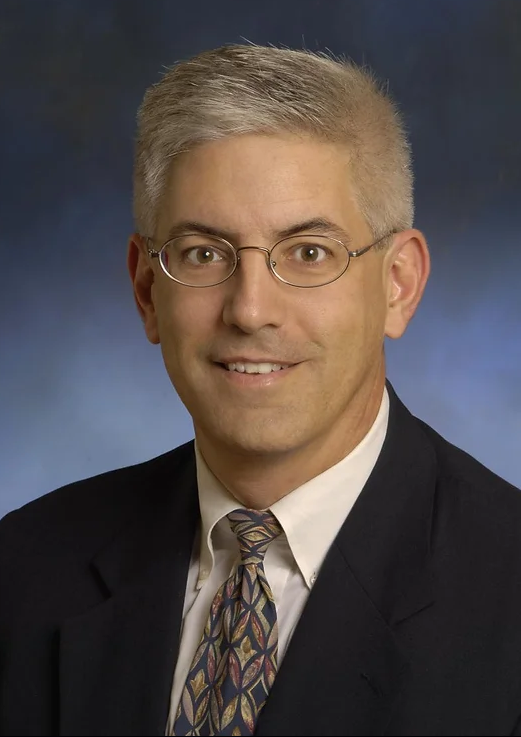
Tom Campbell

Why did you become an actuary?
I decided to become an actuary during my junior year in college, when an alumna I knew came back to the school to discuss her experience as an actuarial student. The rigors of studying for exams intrigued me, so I decided to give it a shot.
Describe a challenge you have overcome.
Early in my career I always had a hard time delegating. I always thought that delegating would be seen as a sign that I couldn’t do the work myself. The truth is, it’s just the opposite: Delegating is a powerful skill that shows you can prioritize work effectively. I finally broke my habit when I realized I had too much work to do and I had to get others involved.
What do you enjoy the most about being an actuary?
While I enjoy many aspects of my job, what I enjoy most is the interaction with other actuaries-discussing issues, hearing different sides of an issue, and debating solutions. Working with other actuaries is a joy; I often hear perspectives that help me well beyond the task at hand.
Share something about yourself.
I believe it’s important to stay active, so when I’m not in the office, I like to go on bike rides. I have a road bike and when the weather isn’t too bad-I live in the Northeast-I’ll go out on the bike paths near my house. I also like to travel to other areas and explore bike routes.
What advice would you share with young actuaries?
To any actuaries just starting out in their careers, I suggest you sit down with more-senior actuaries and talk to them. Find out how they approached things like their careers, exams, and family/work balance. It’s a great way to get to know other actuaries, and you may come up with different ways to address your challenges.